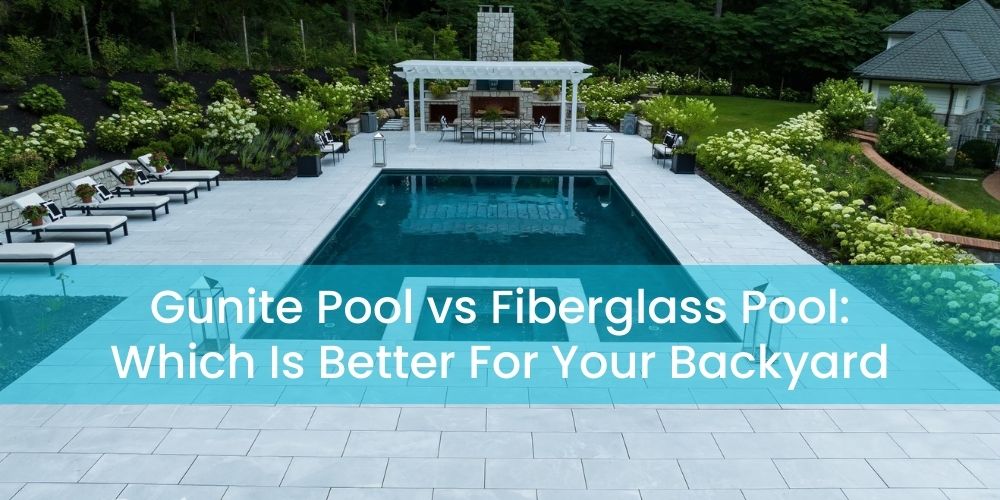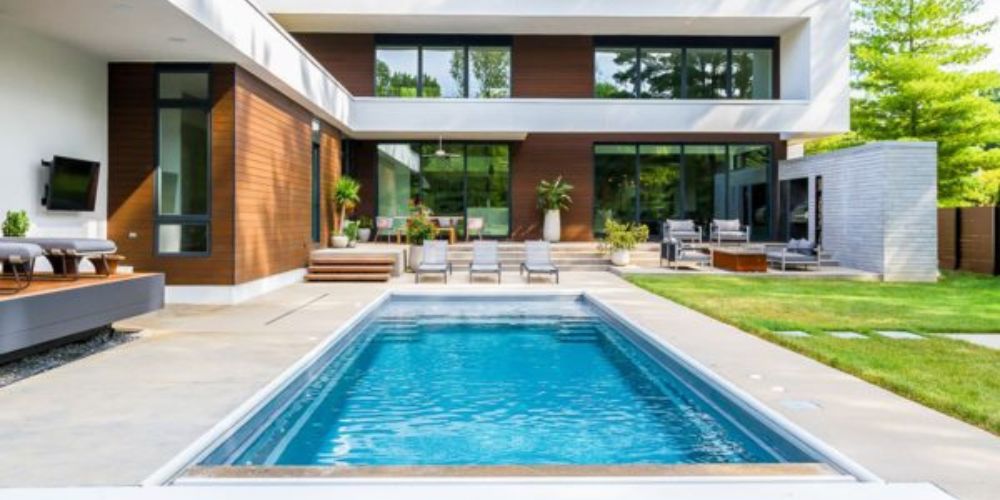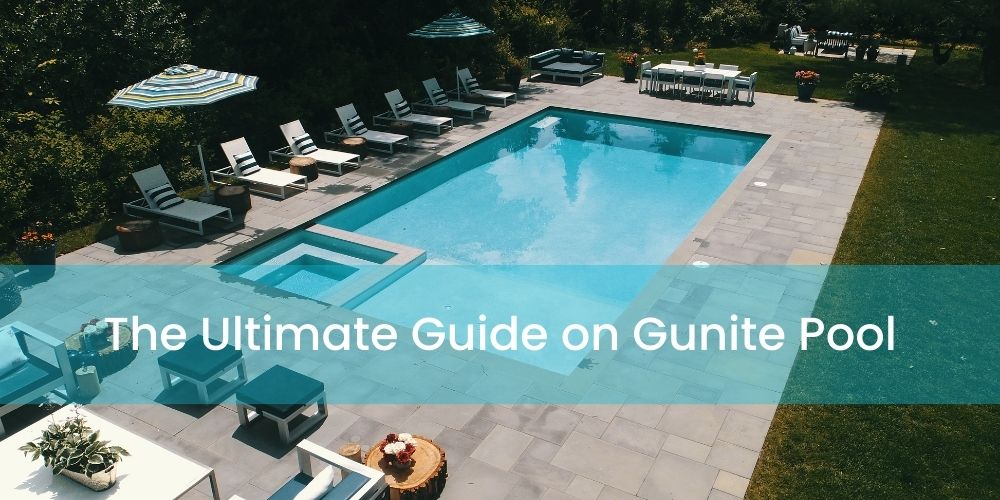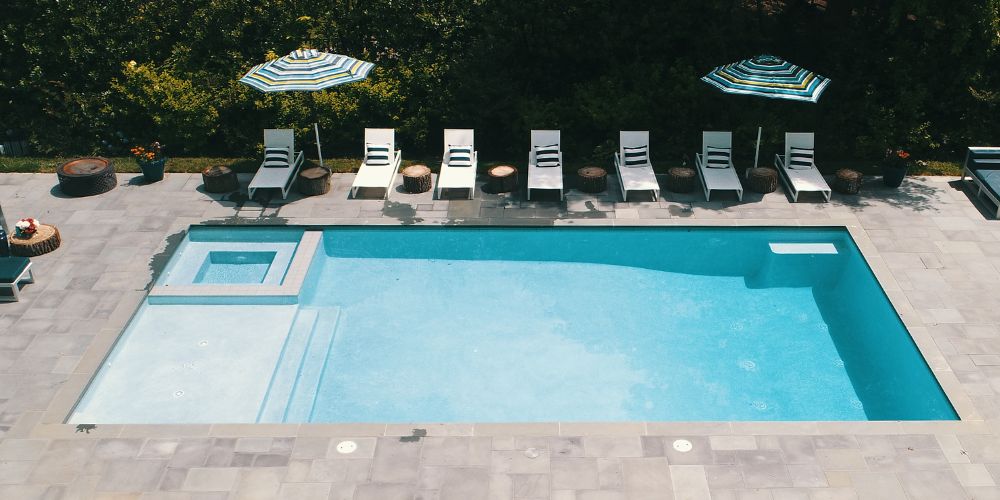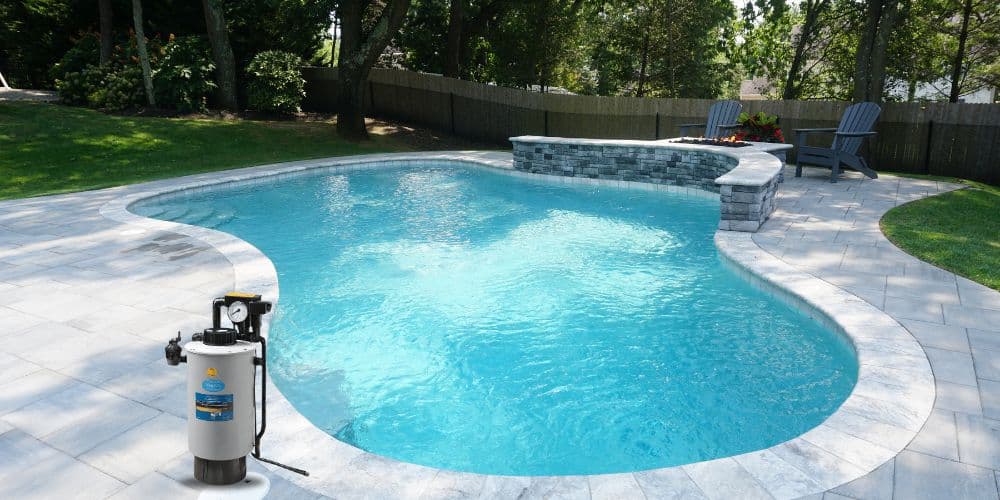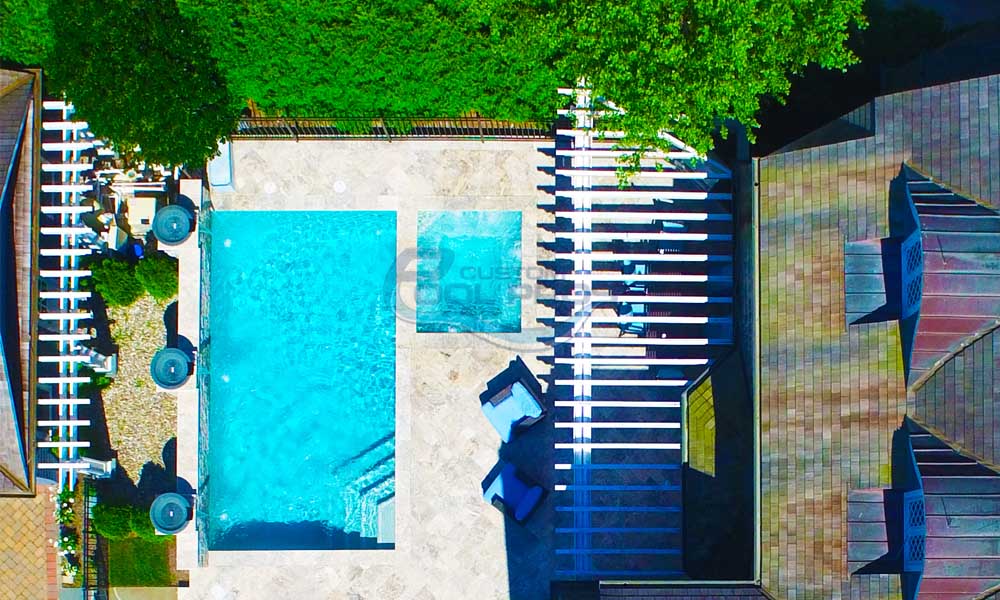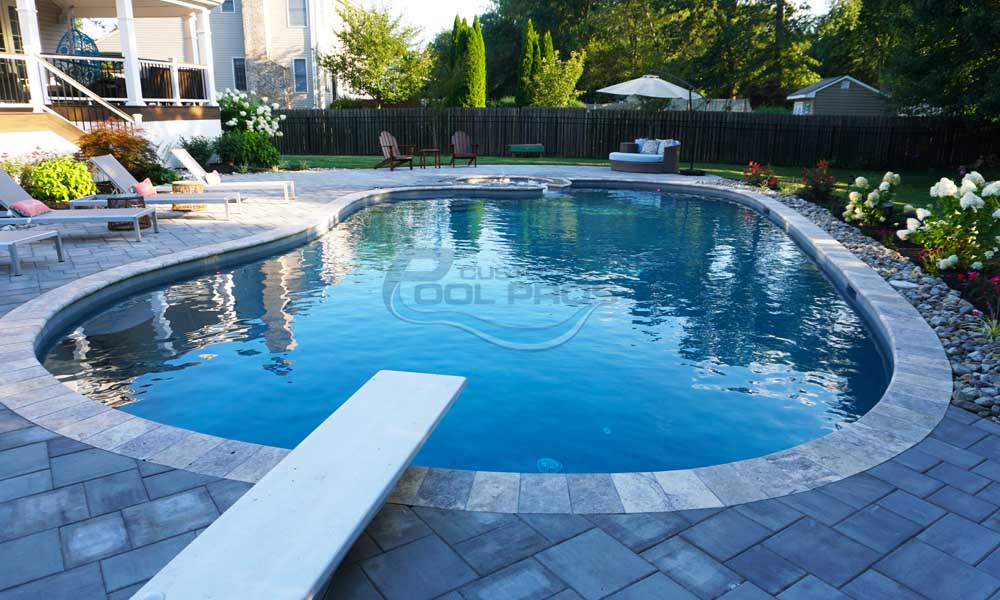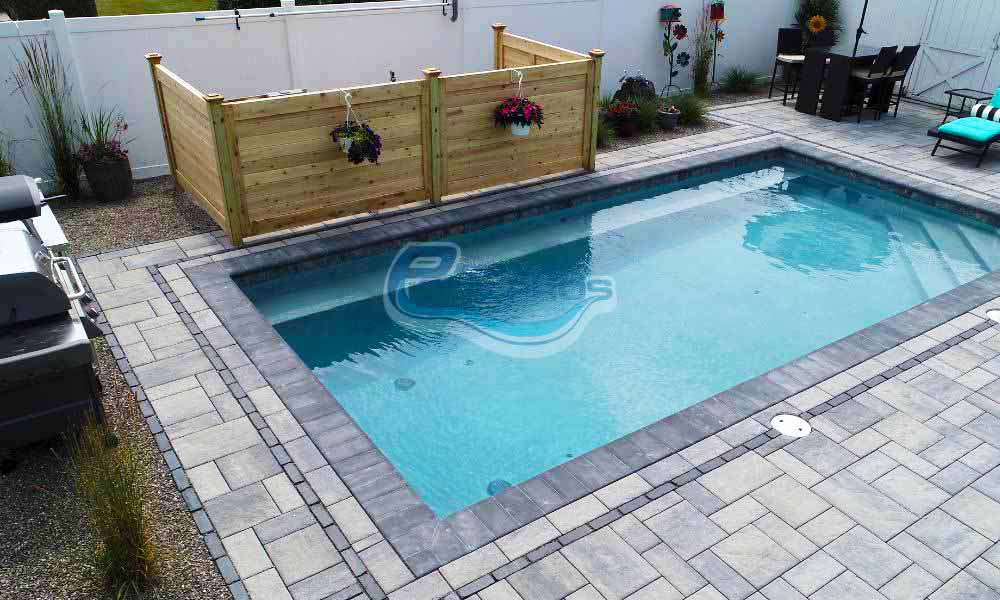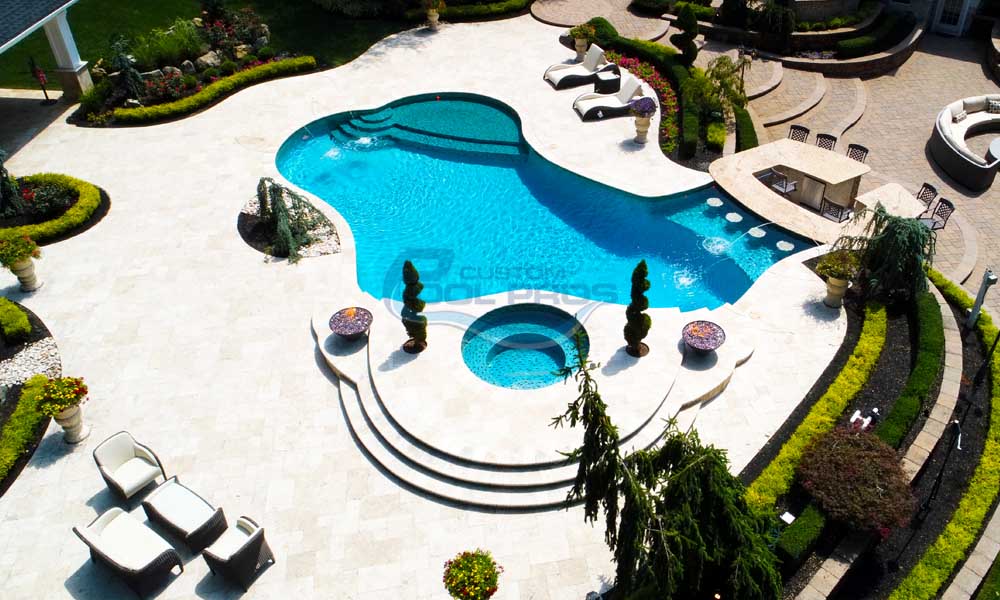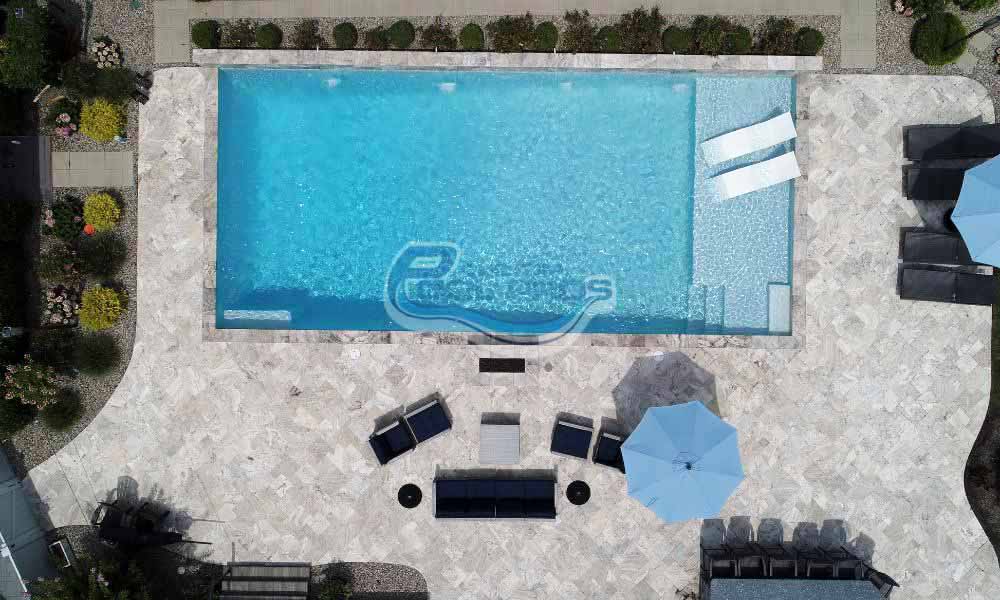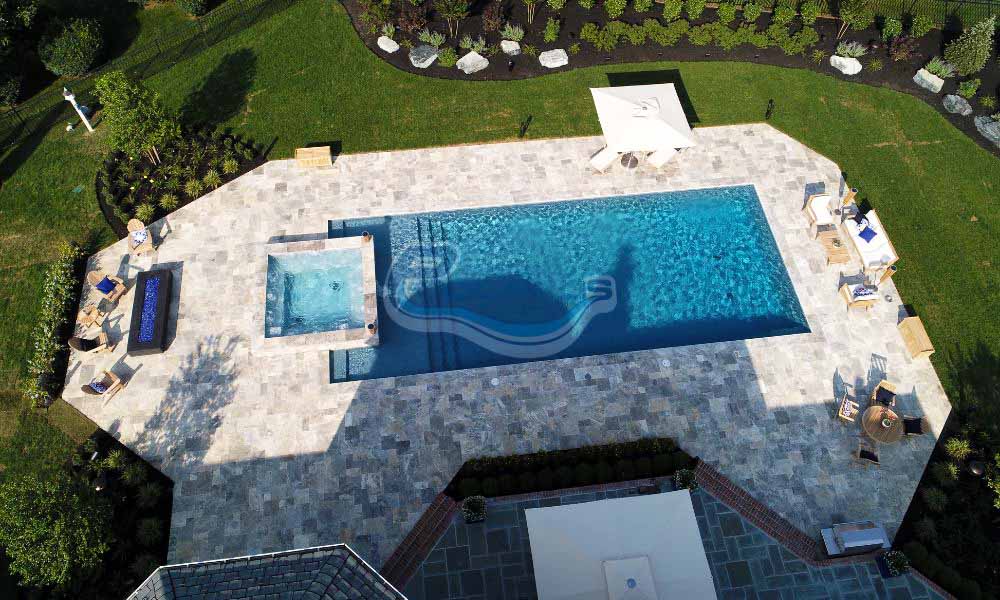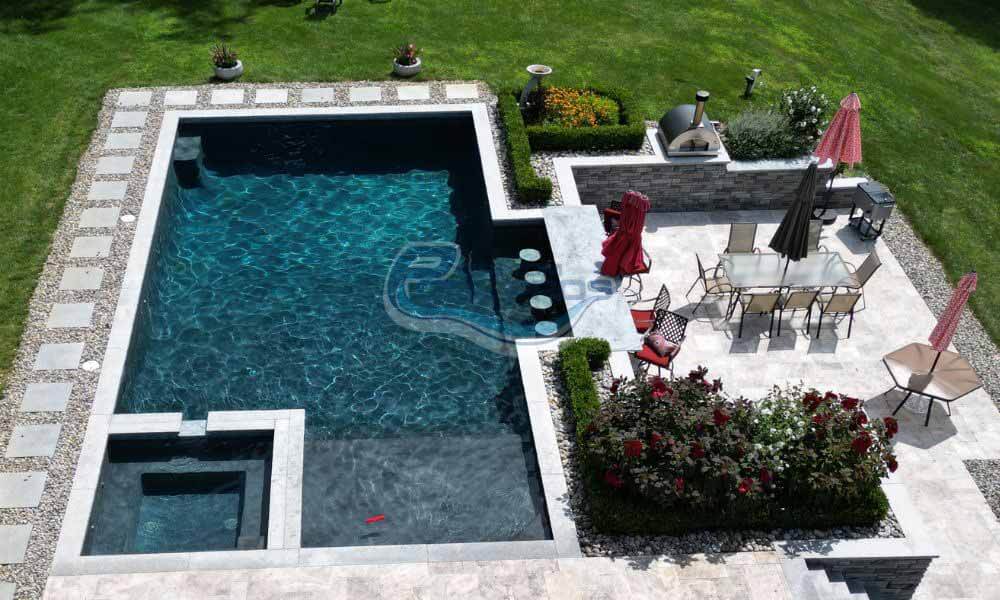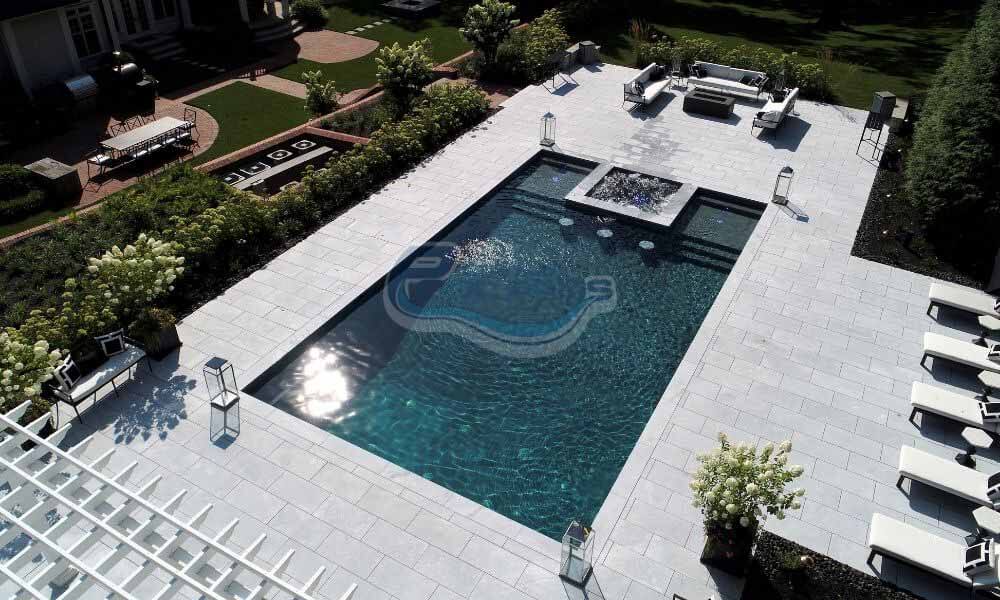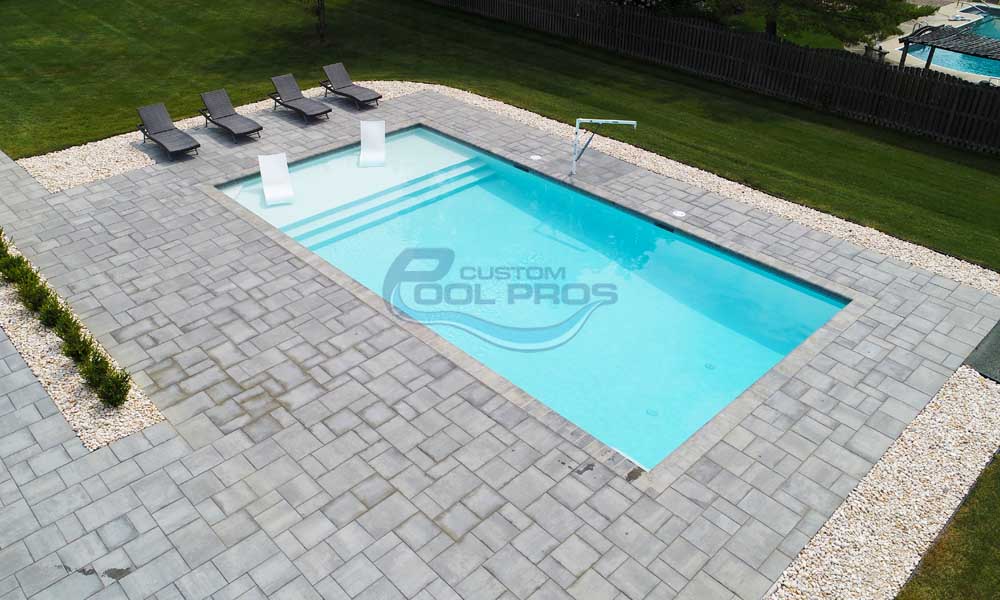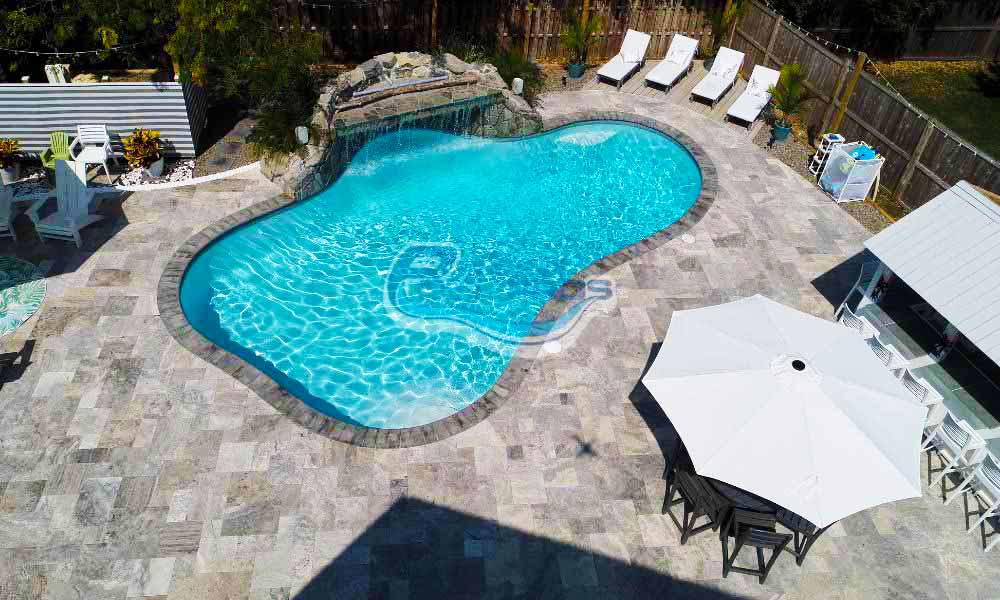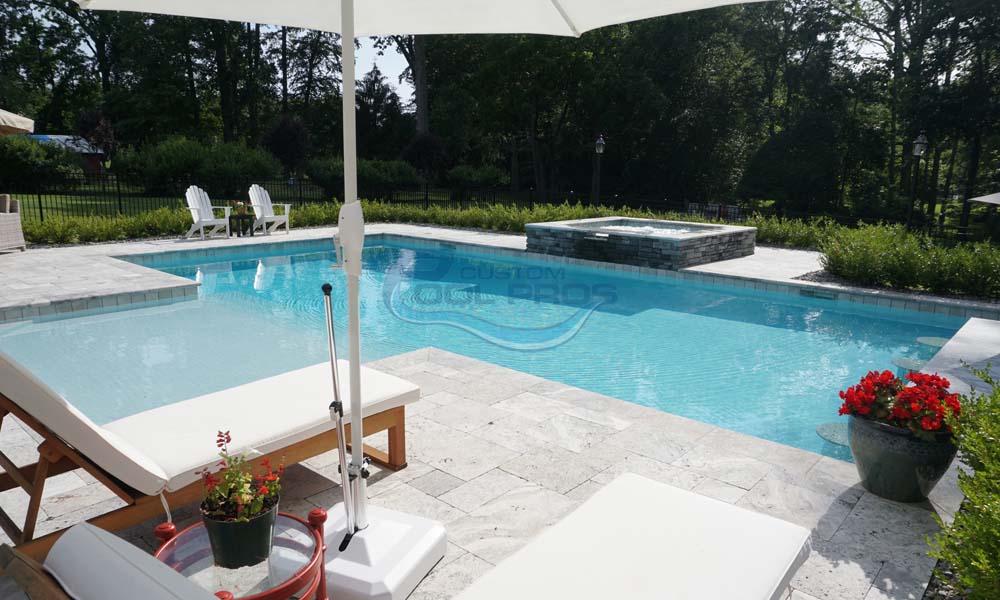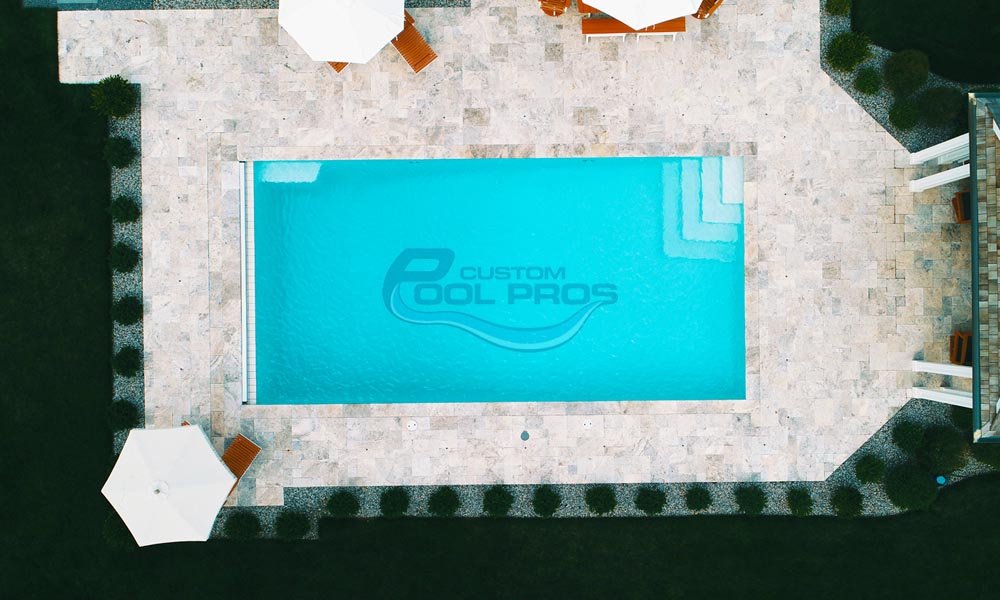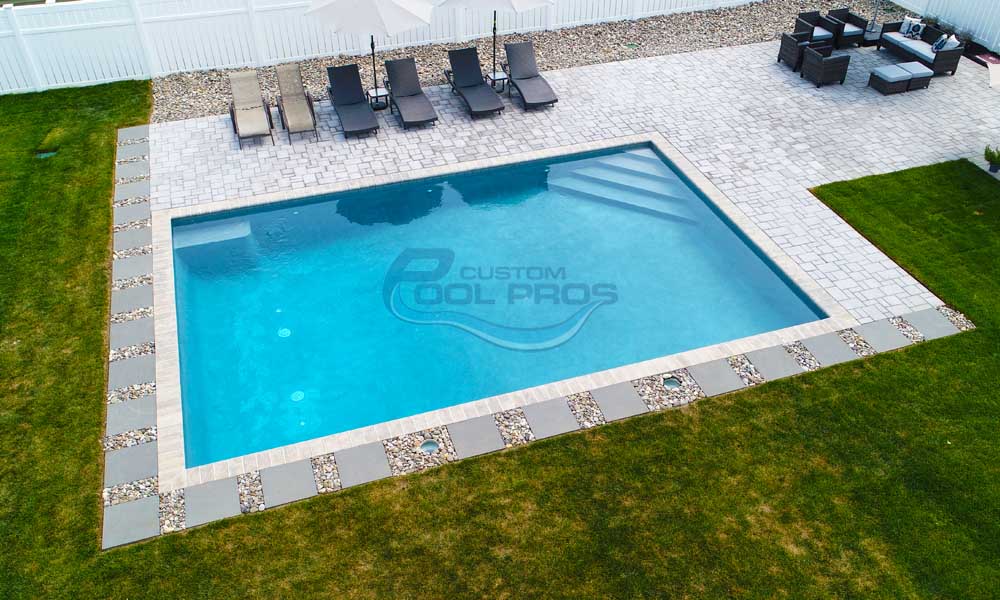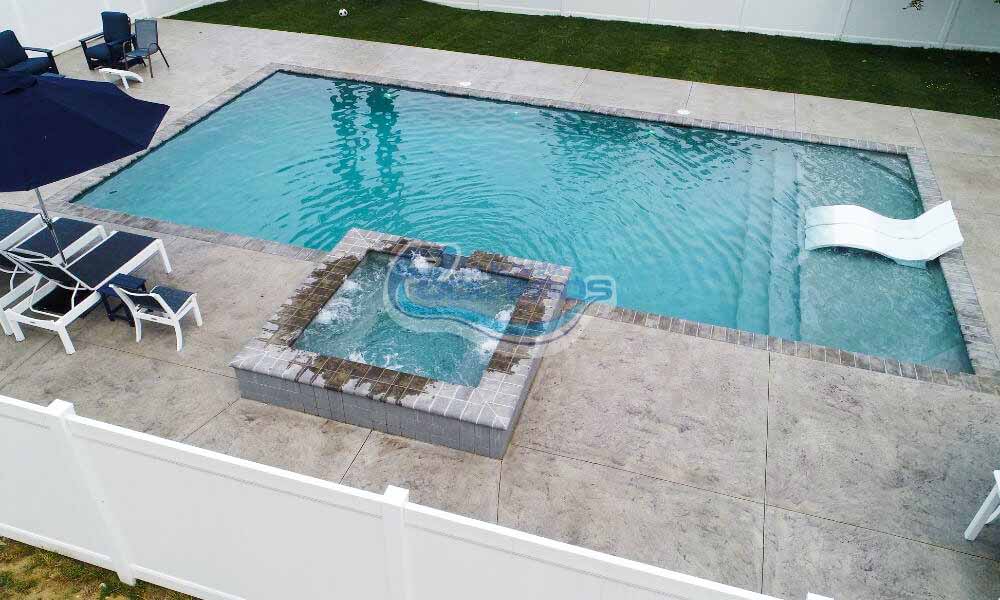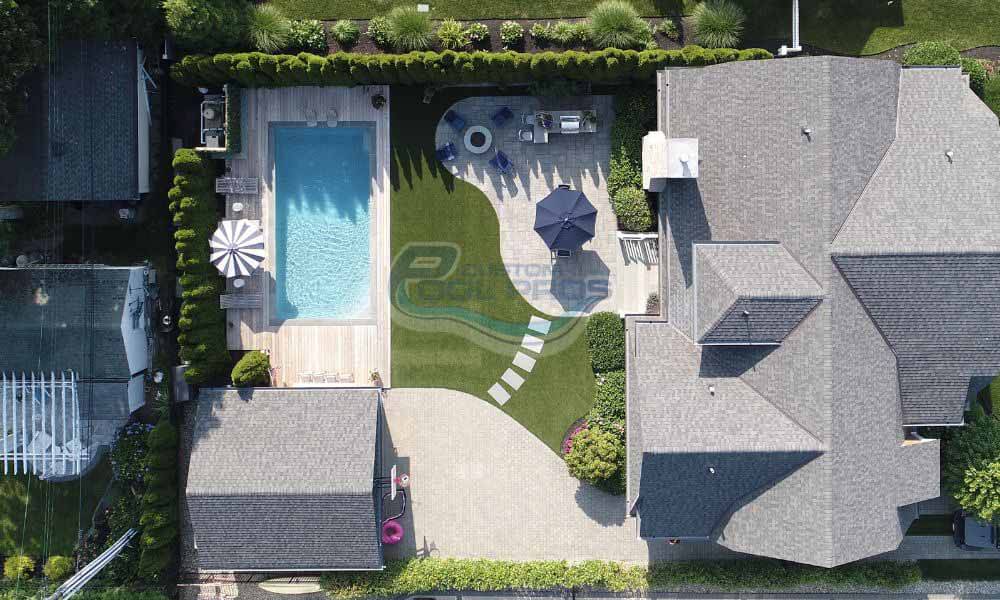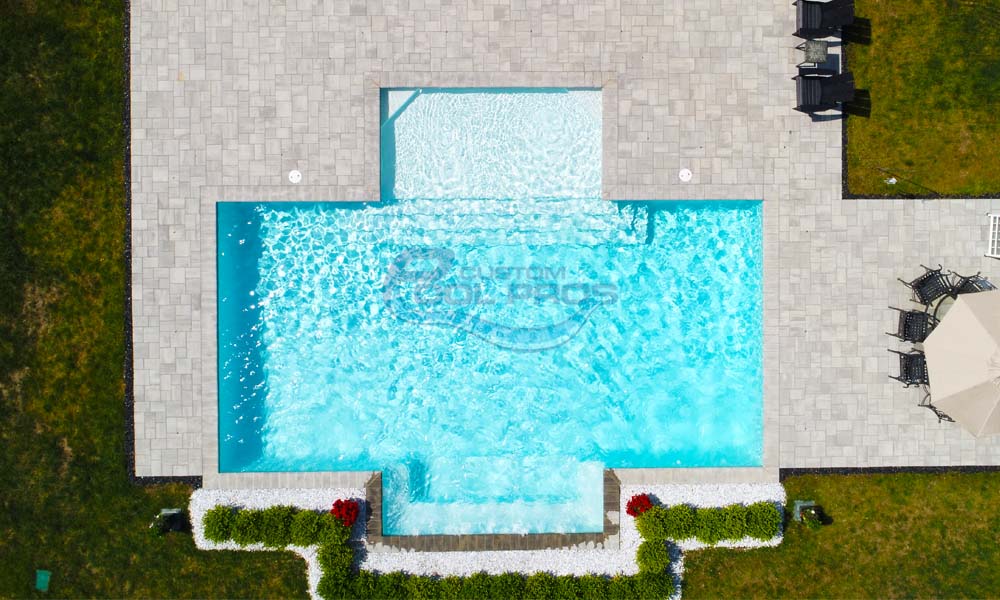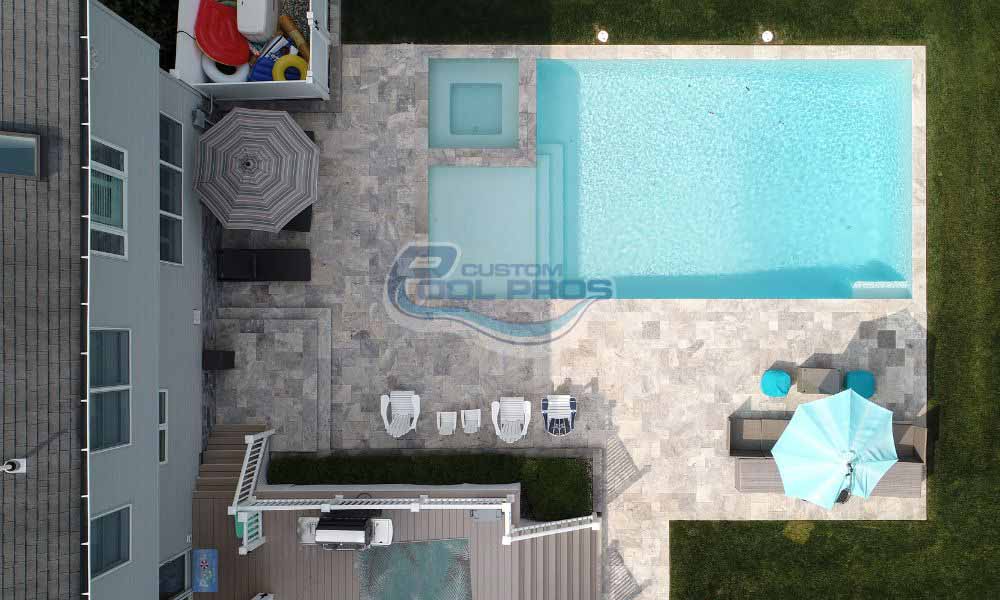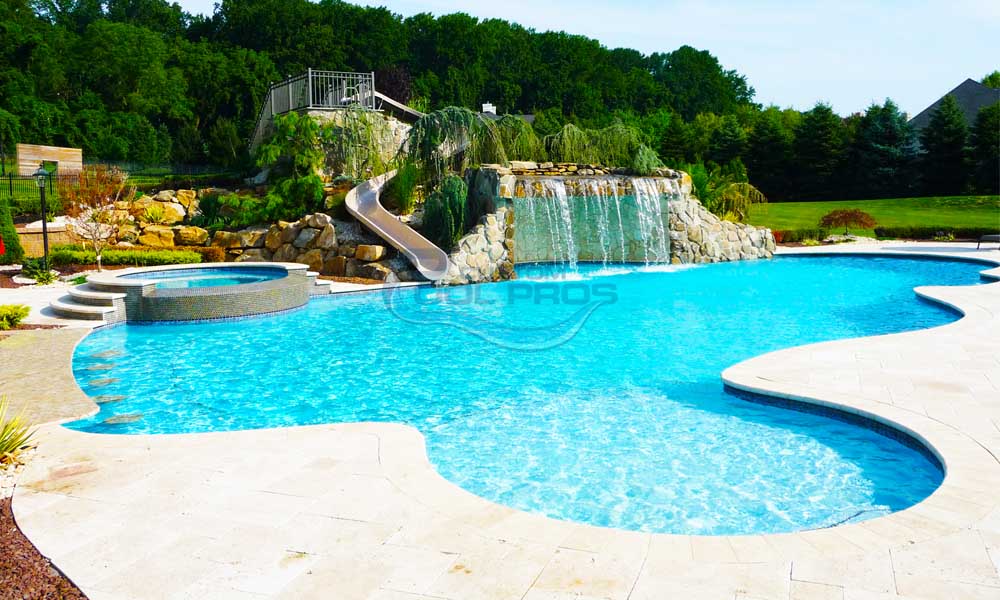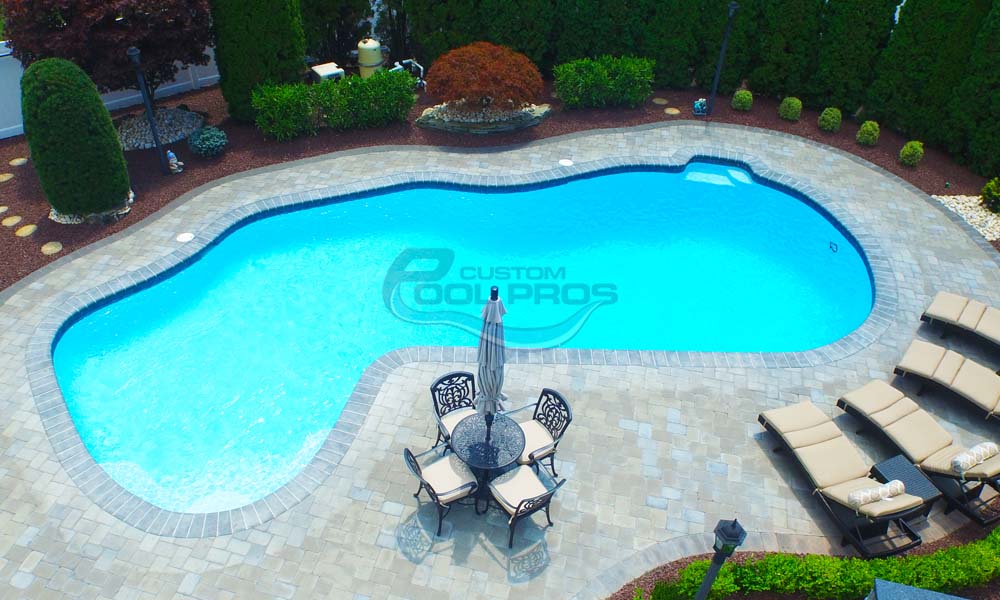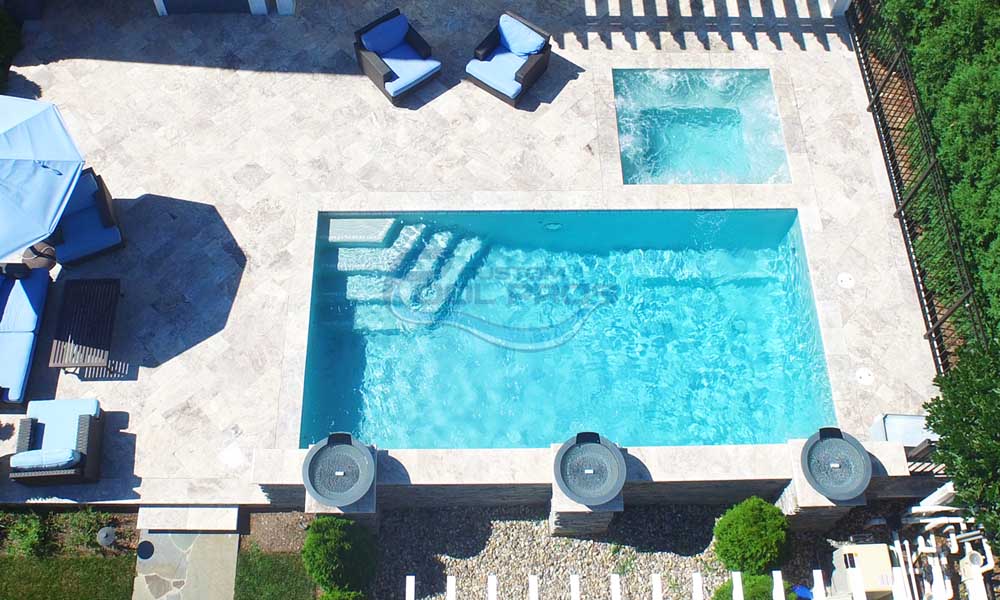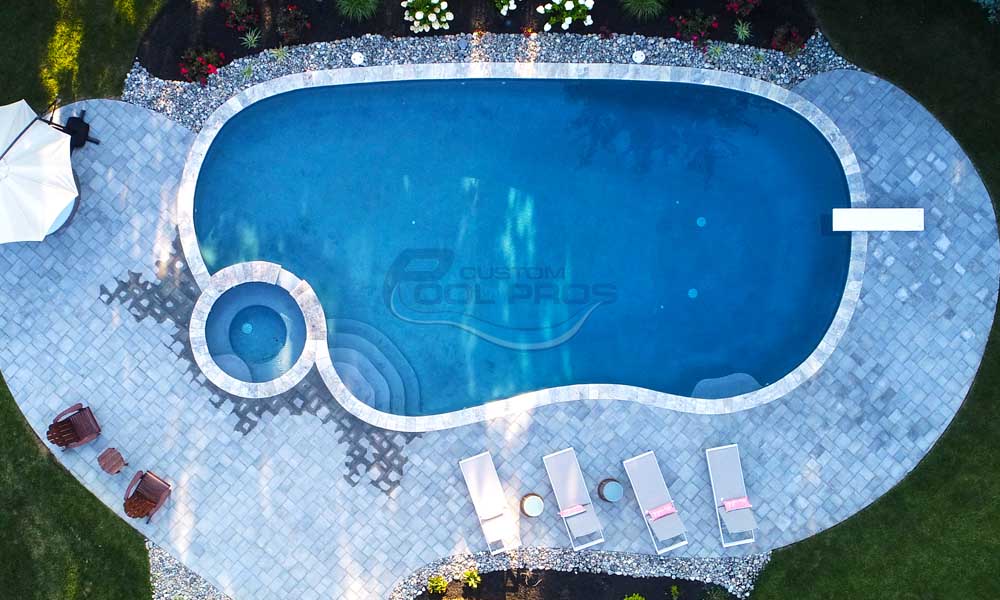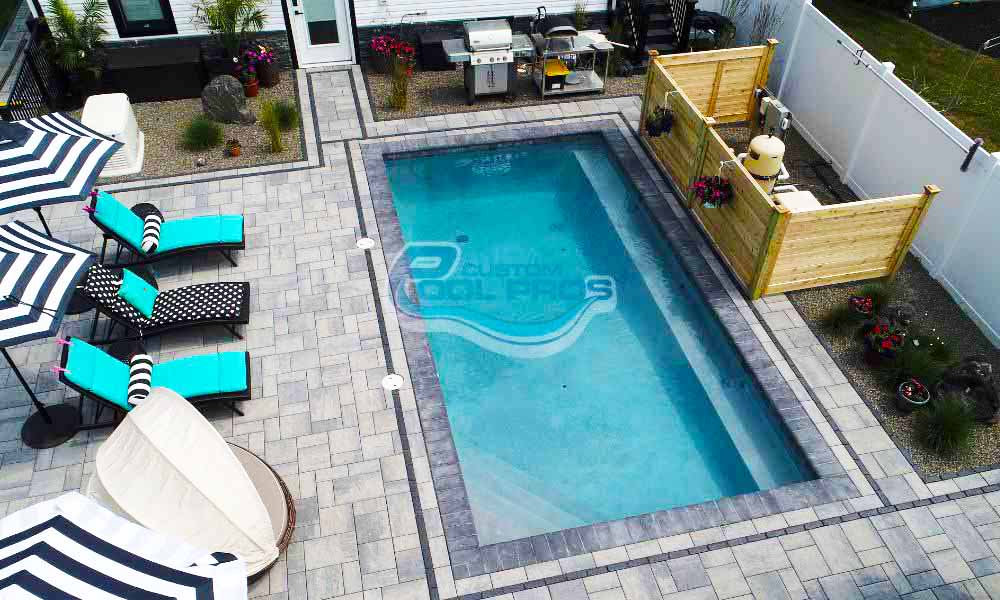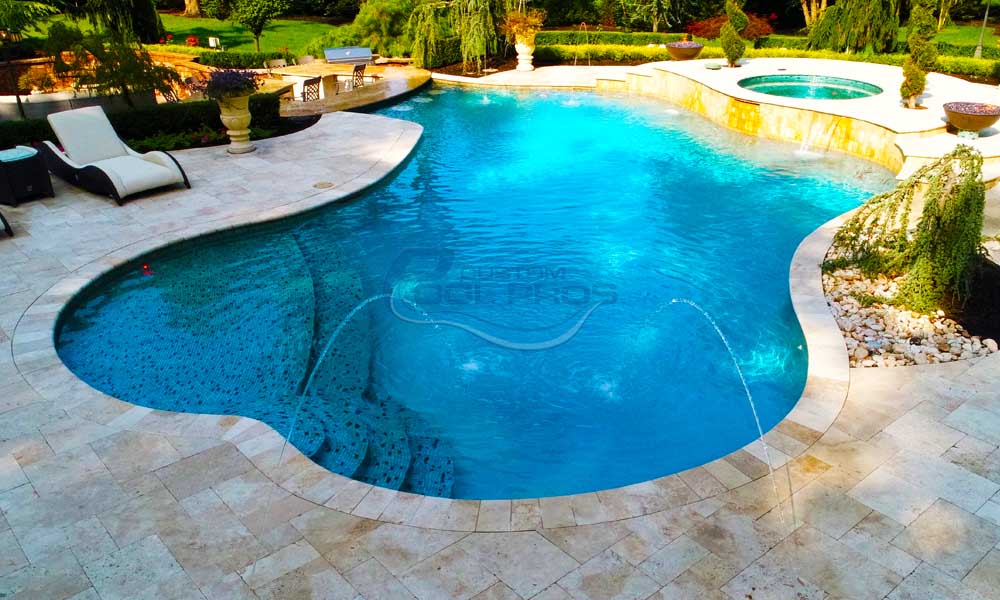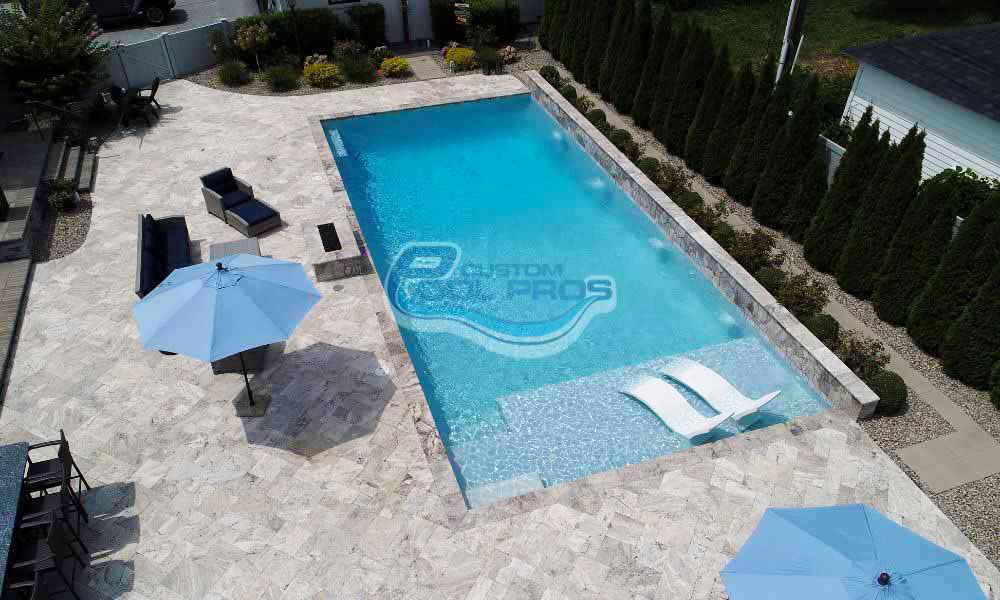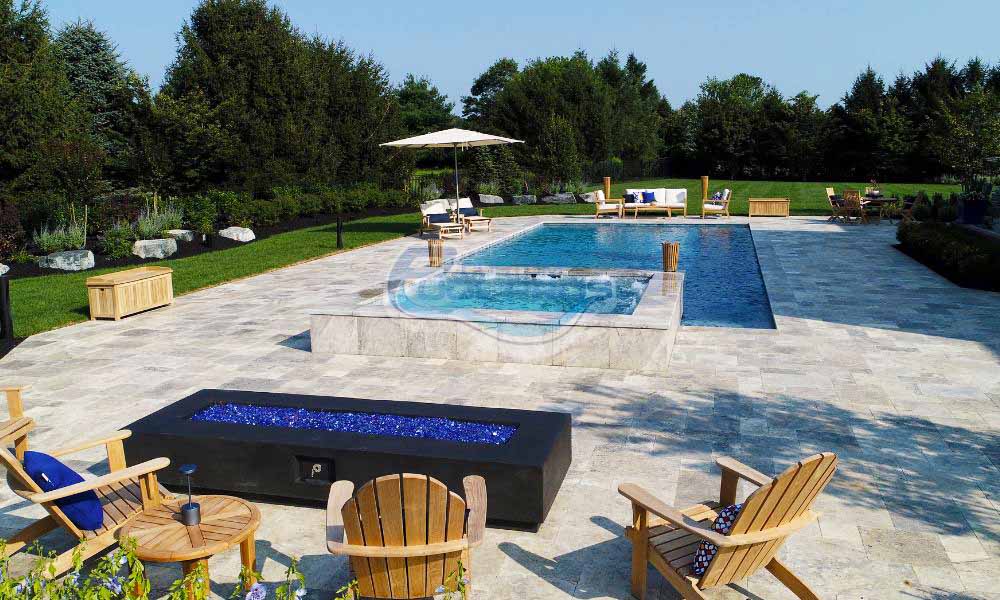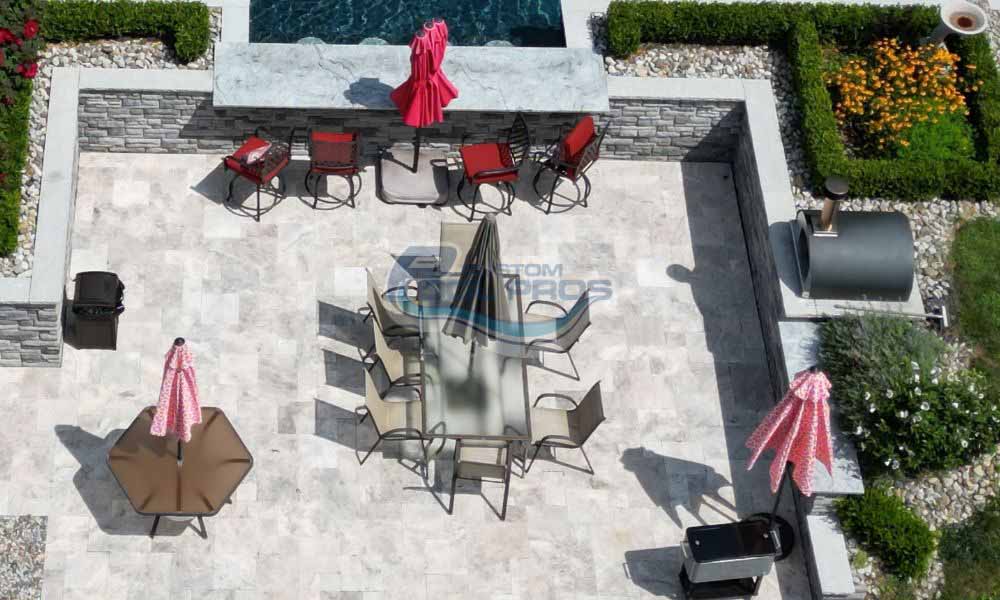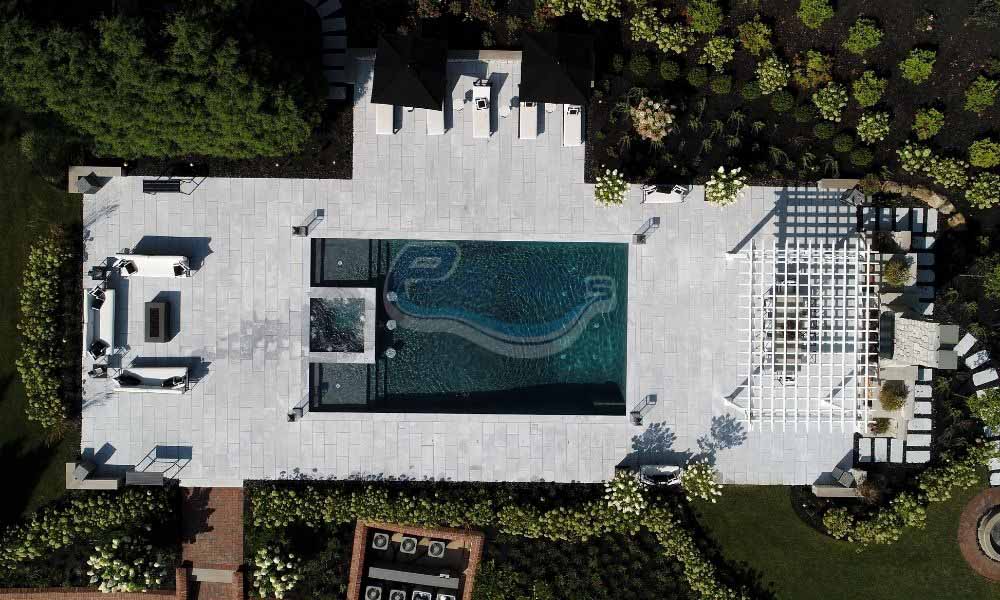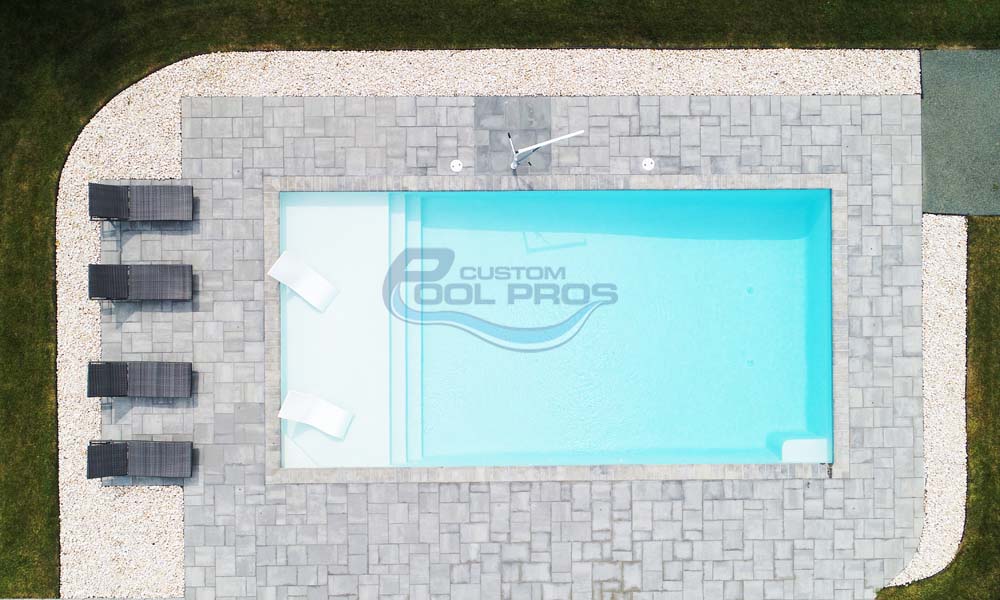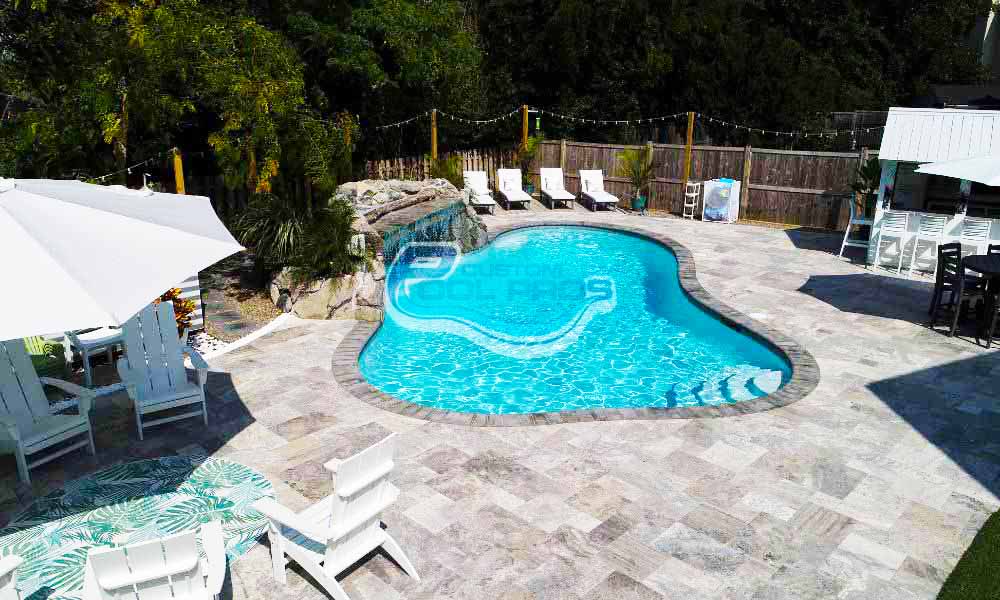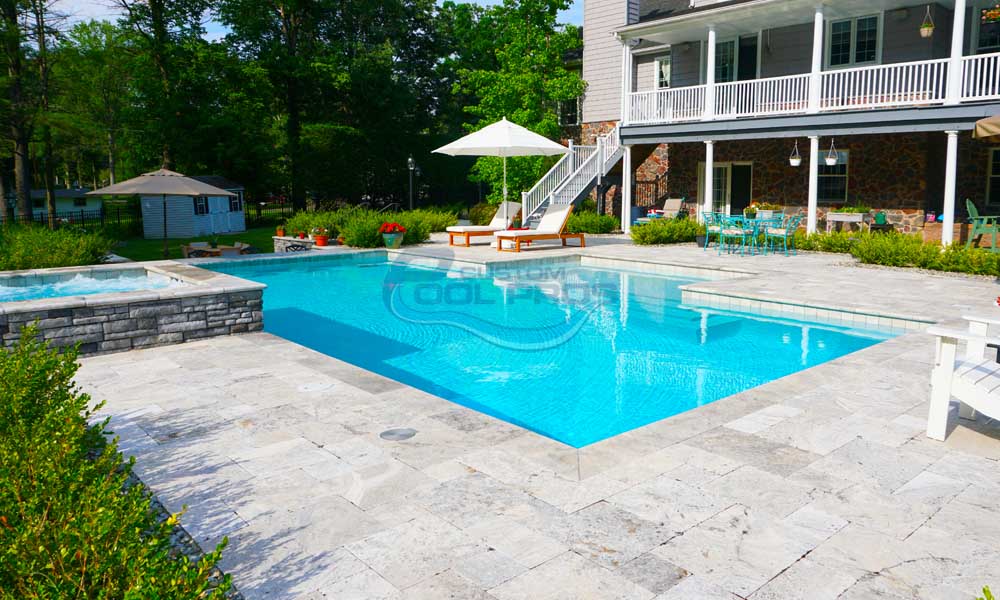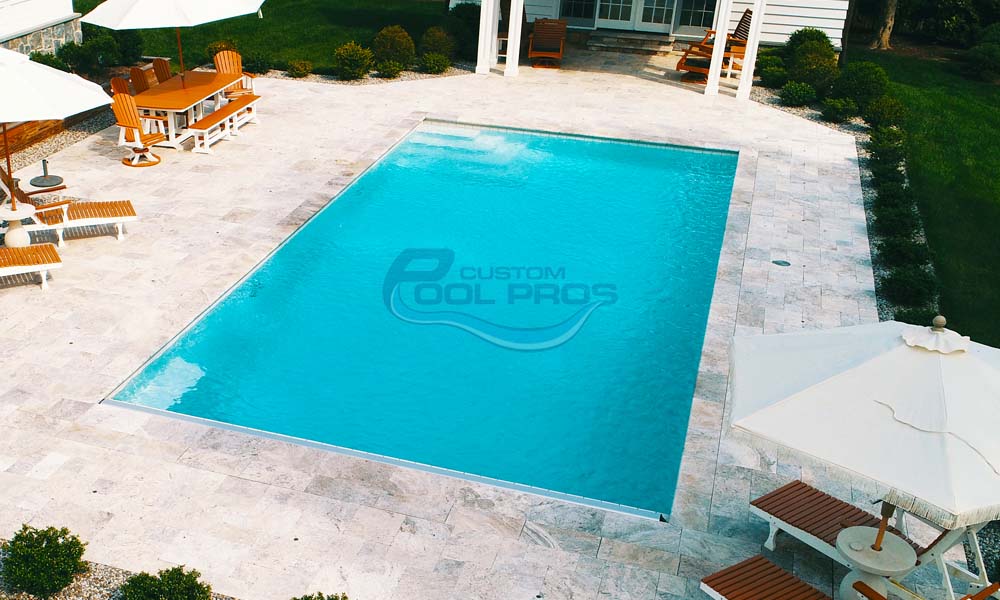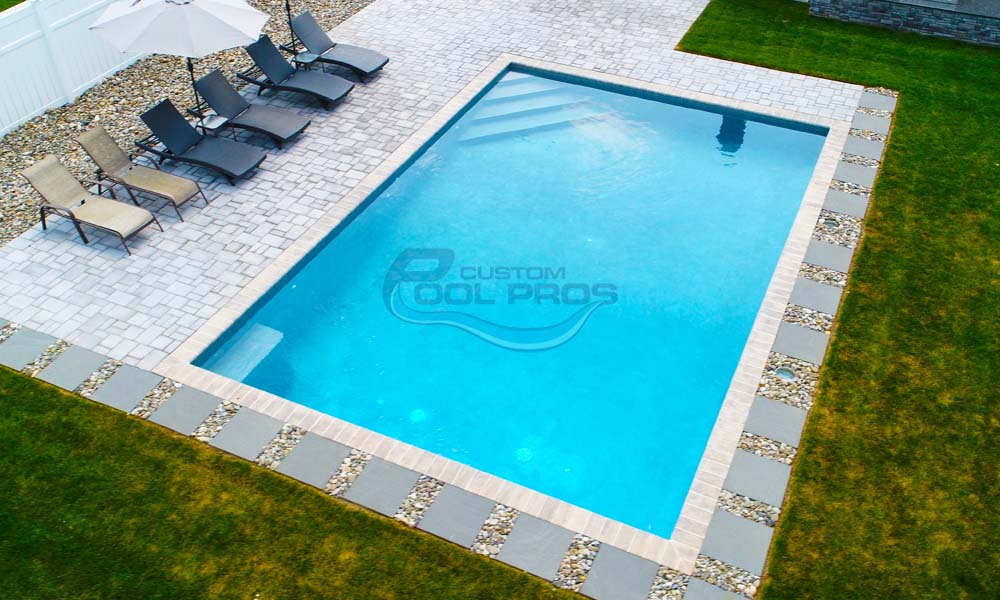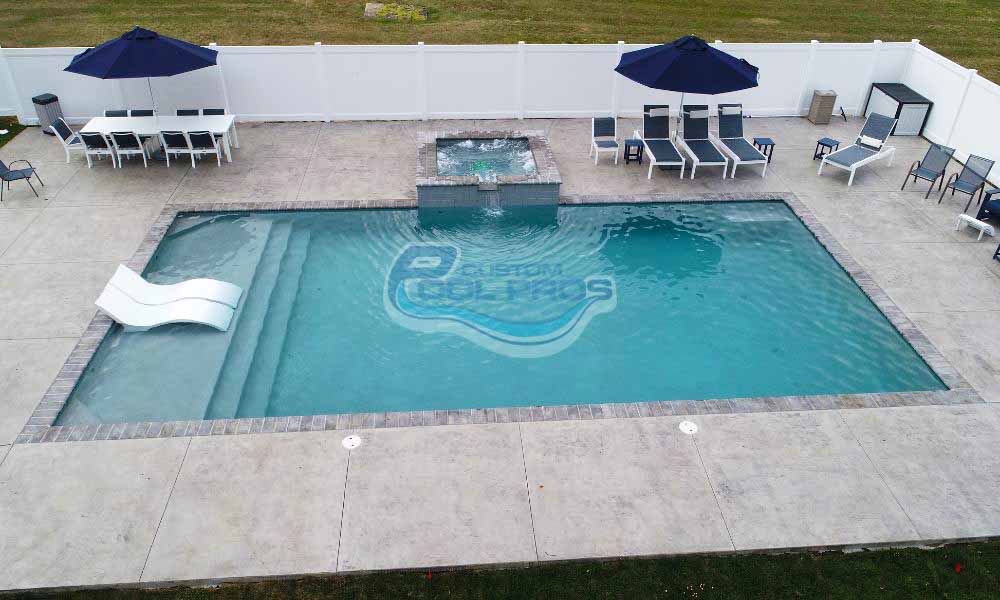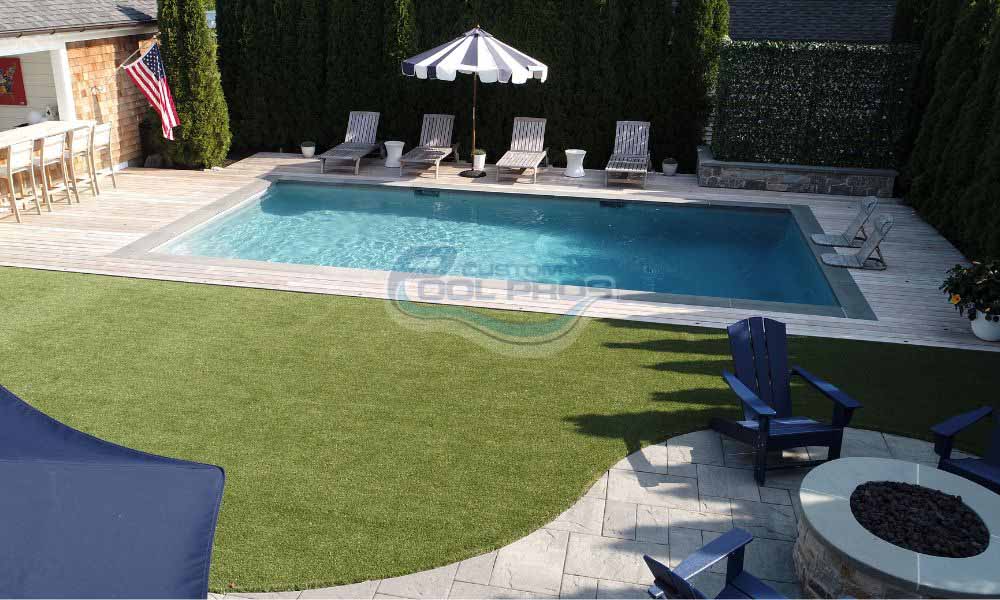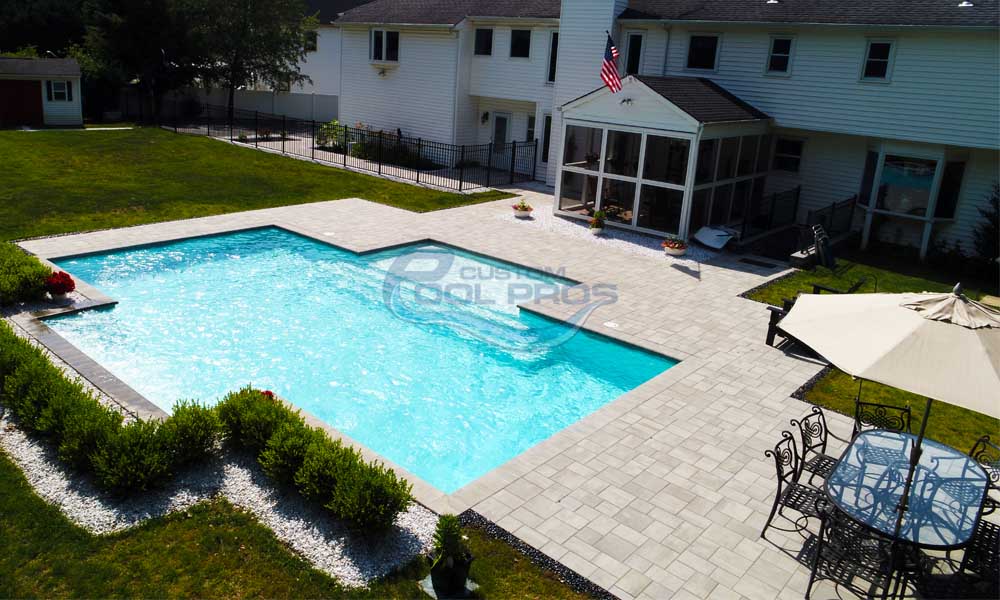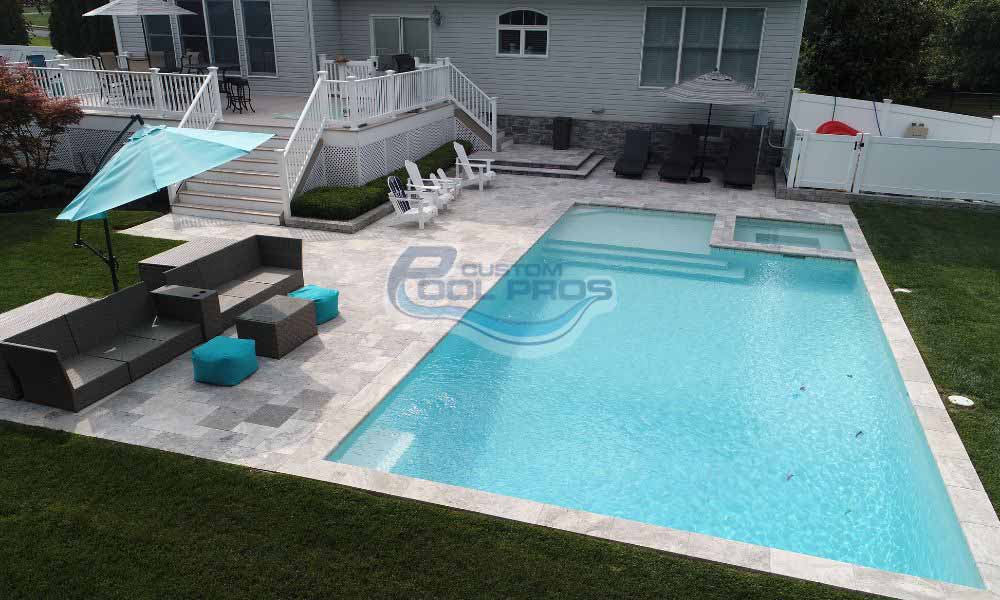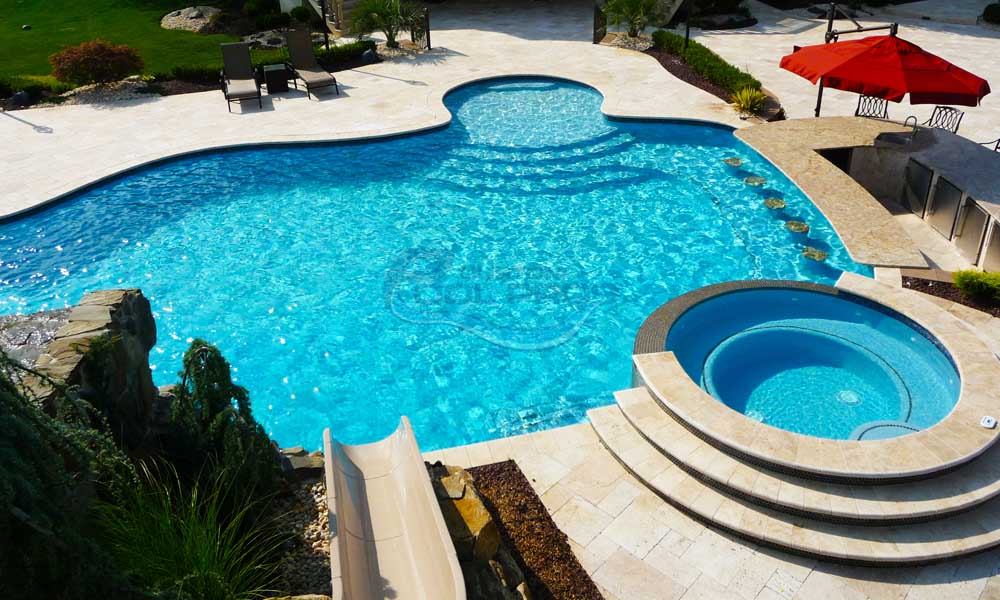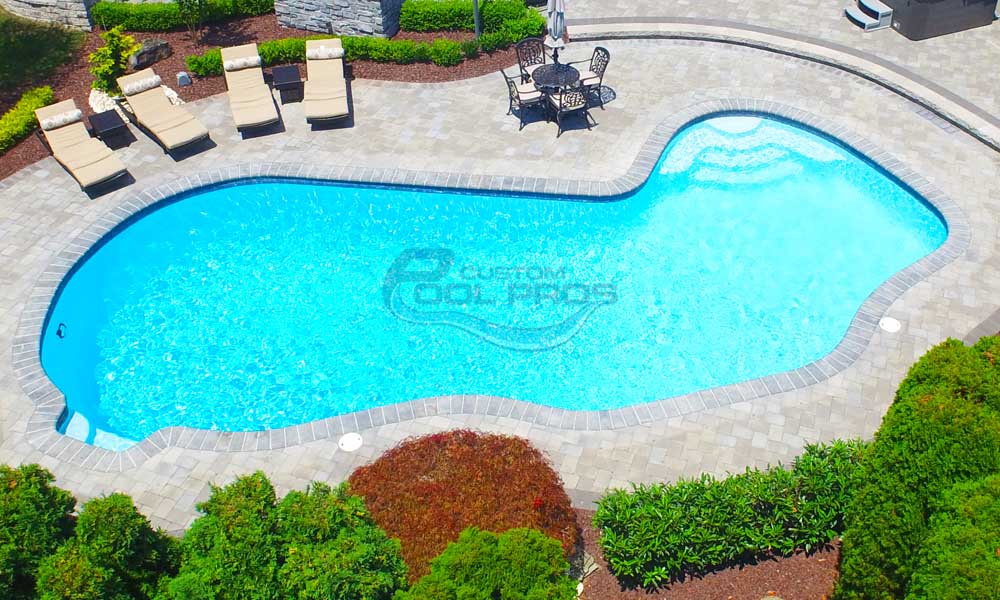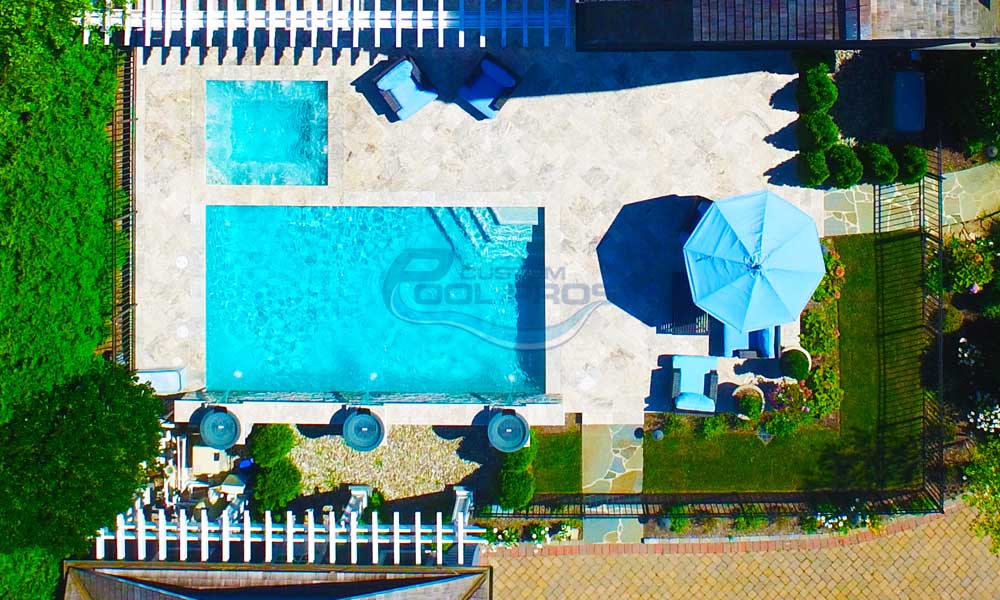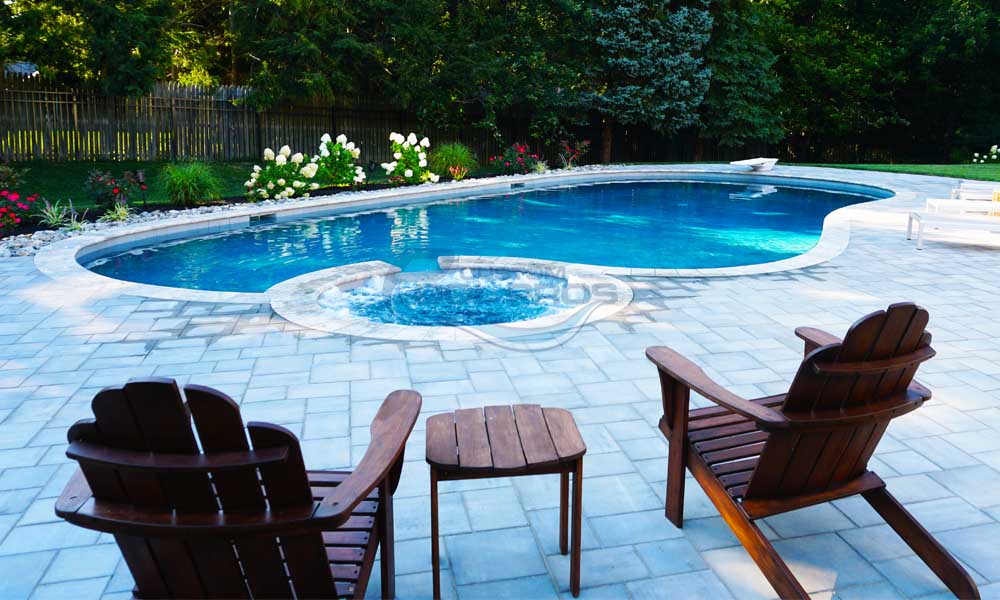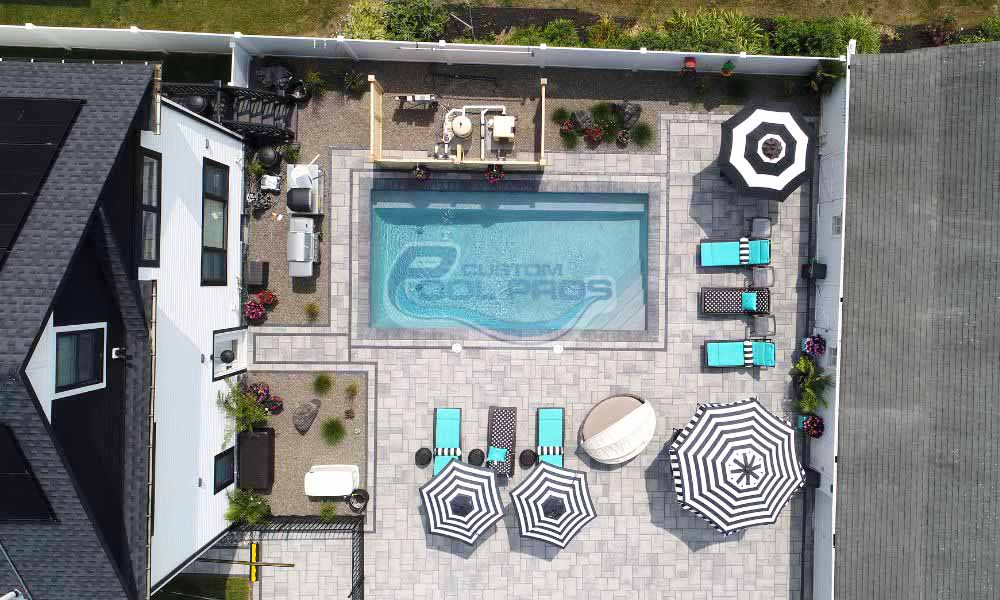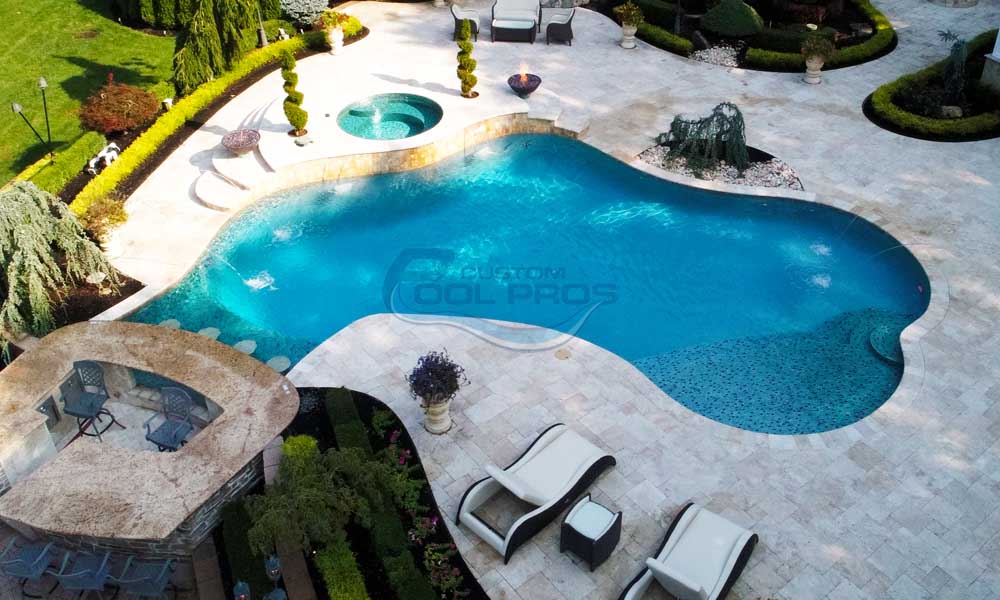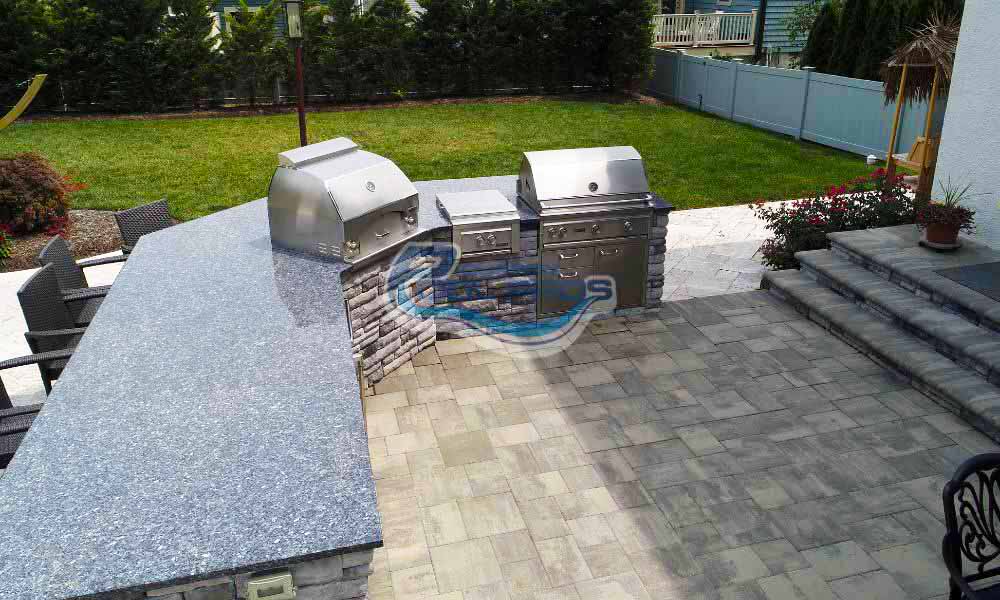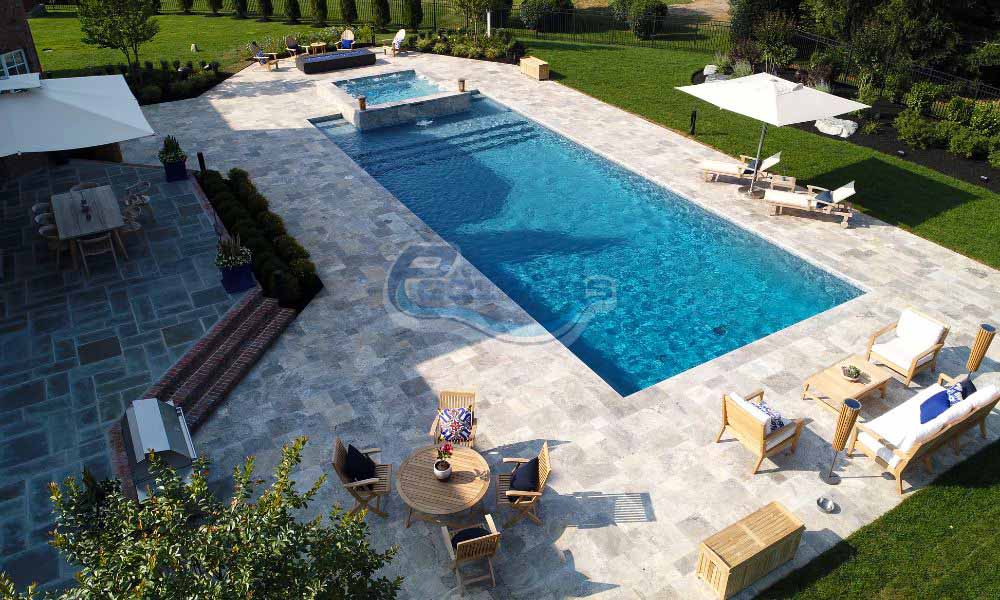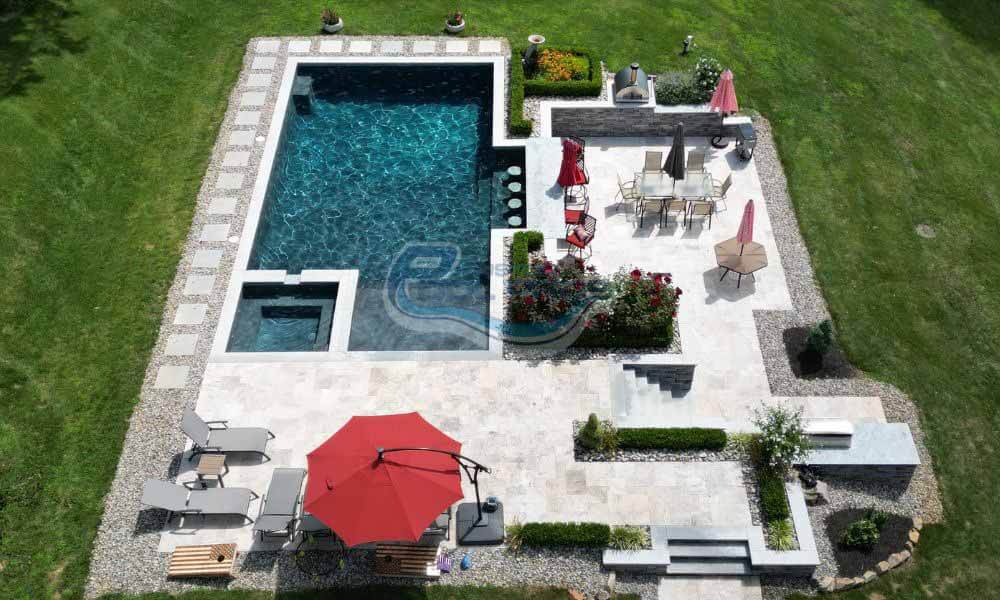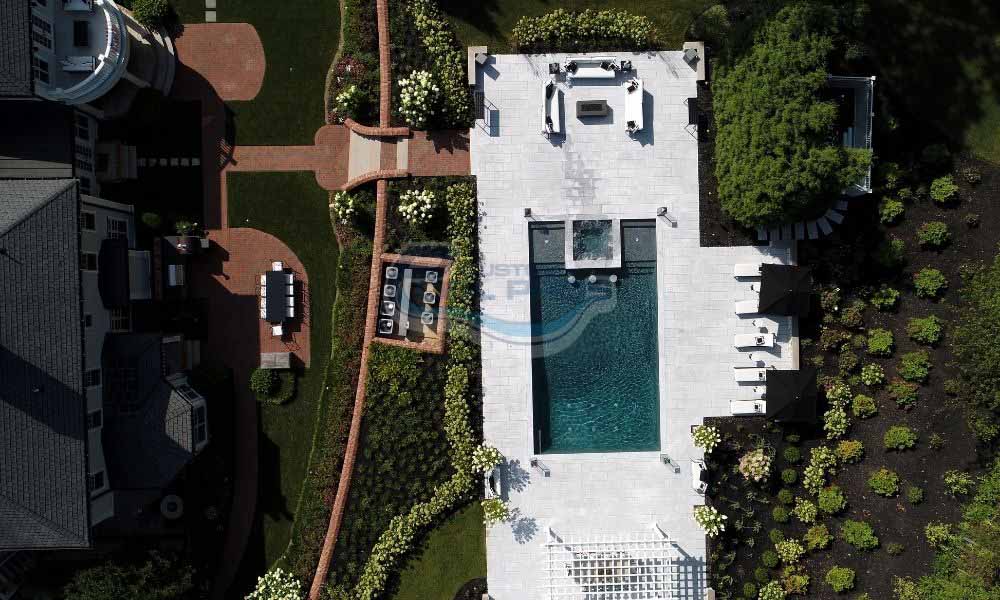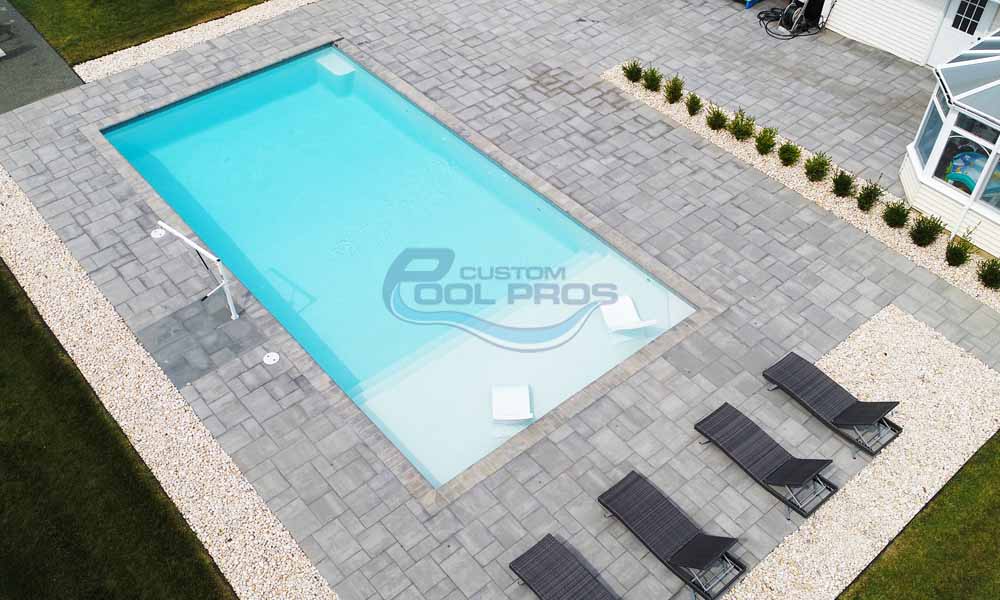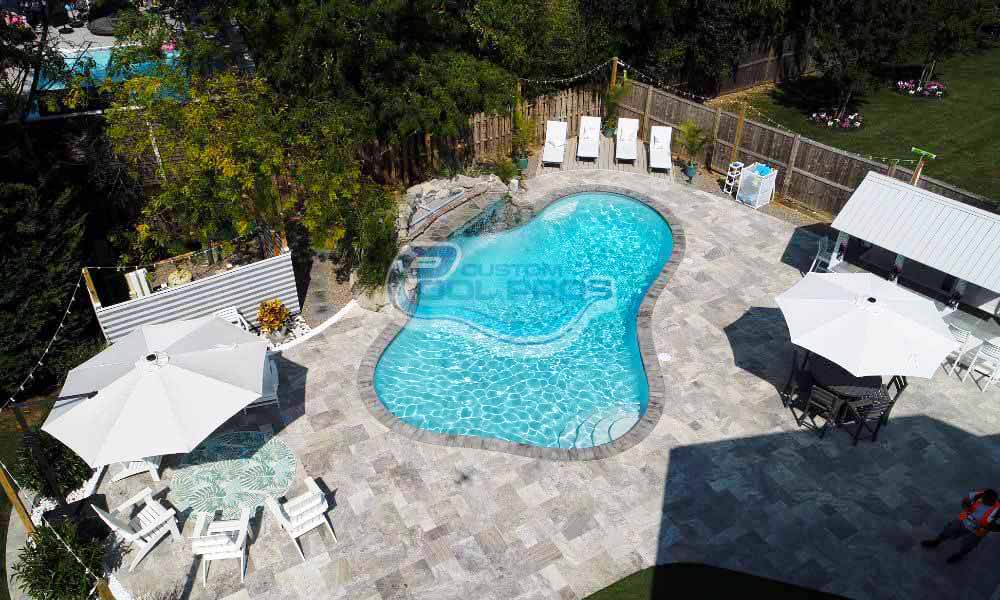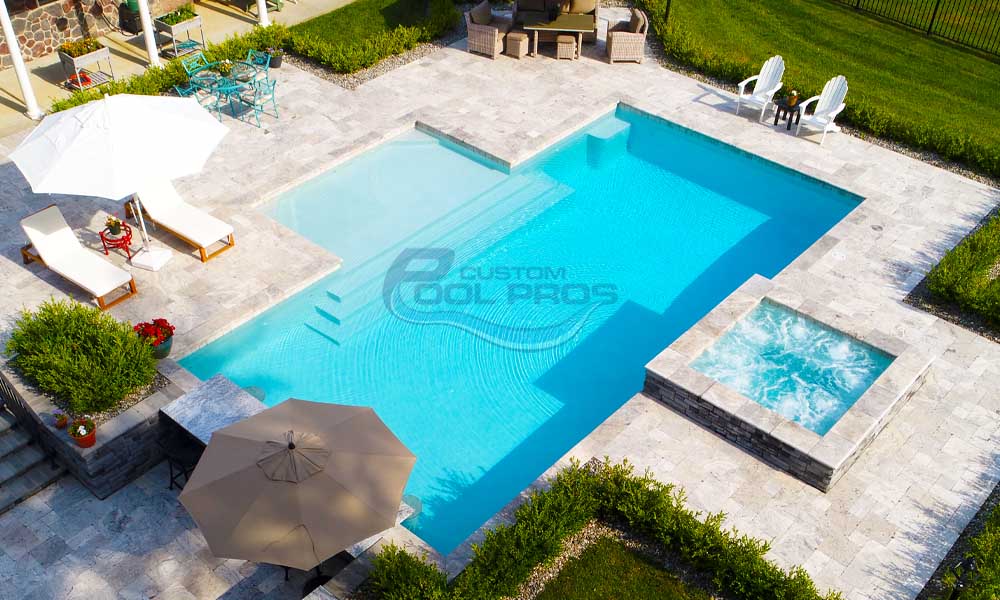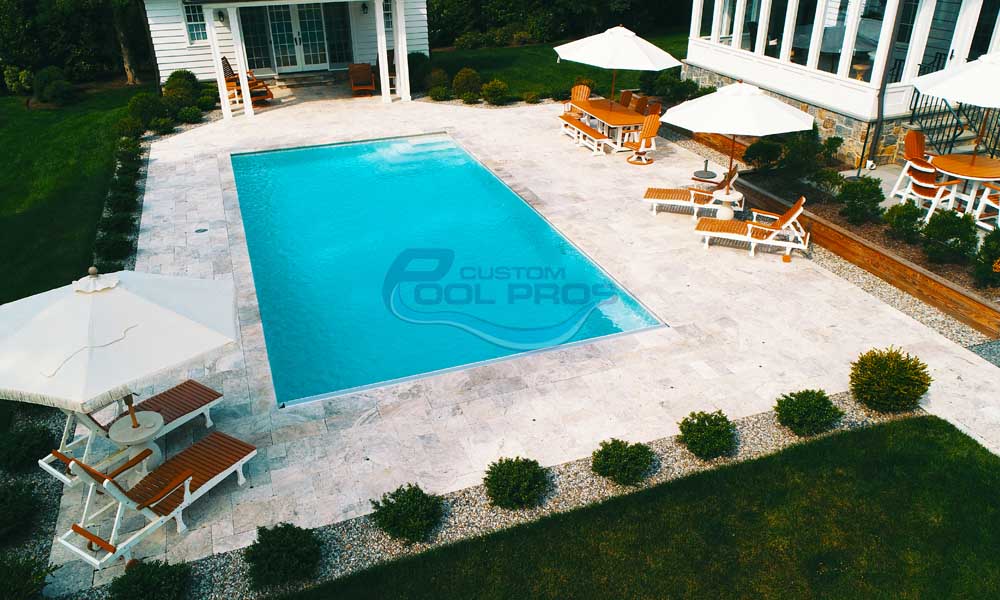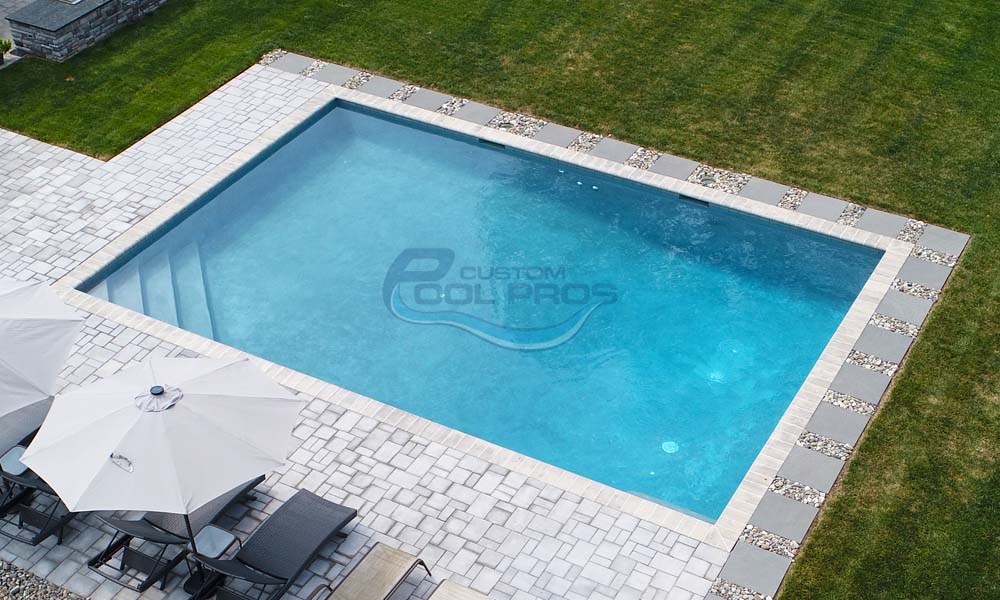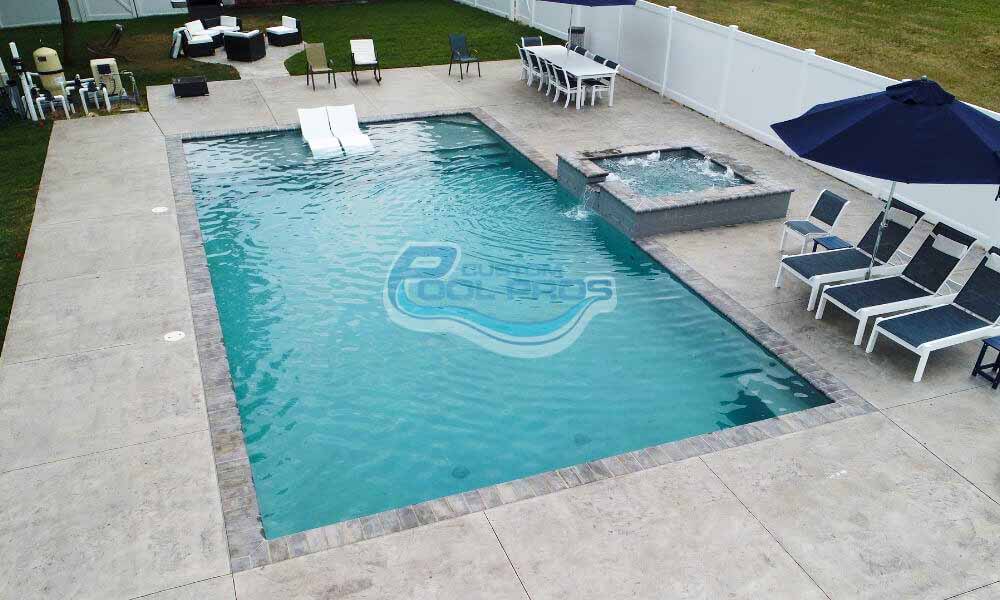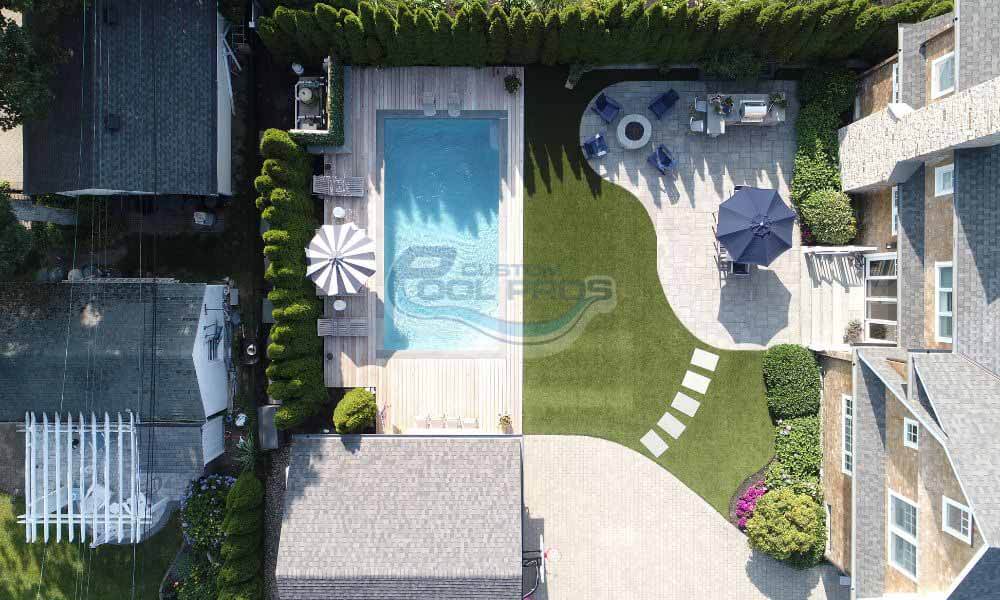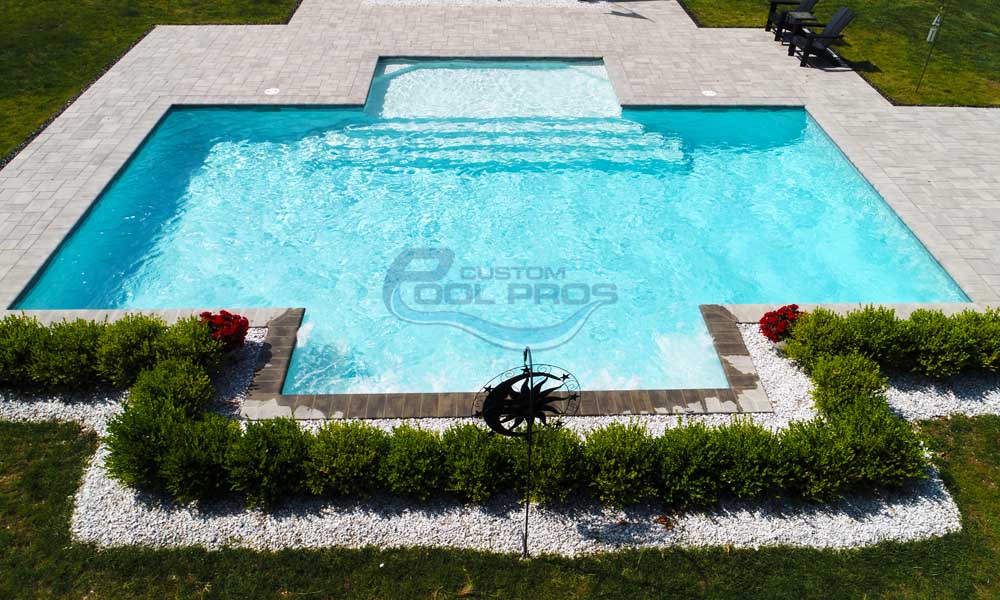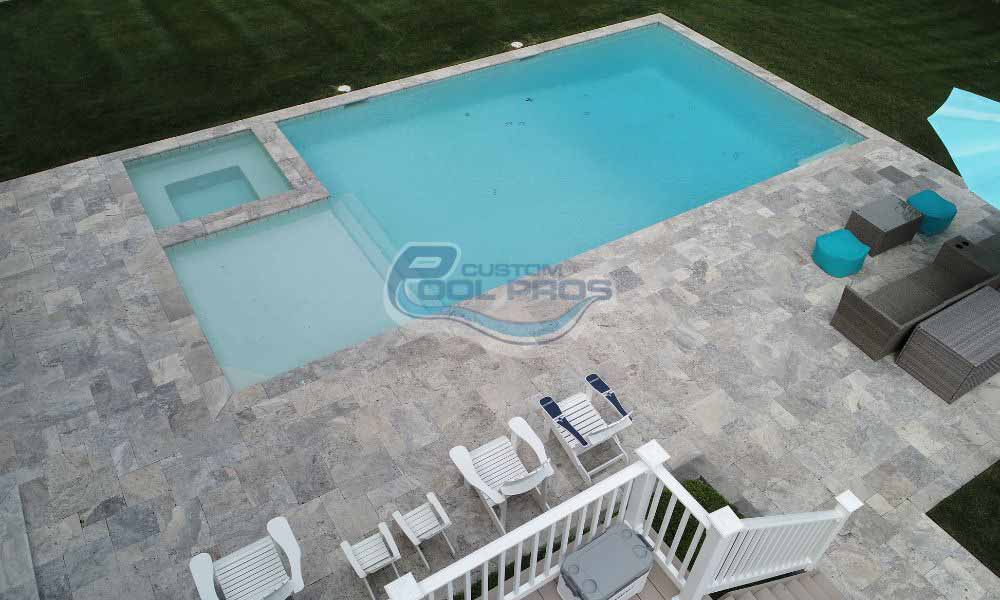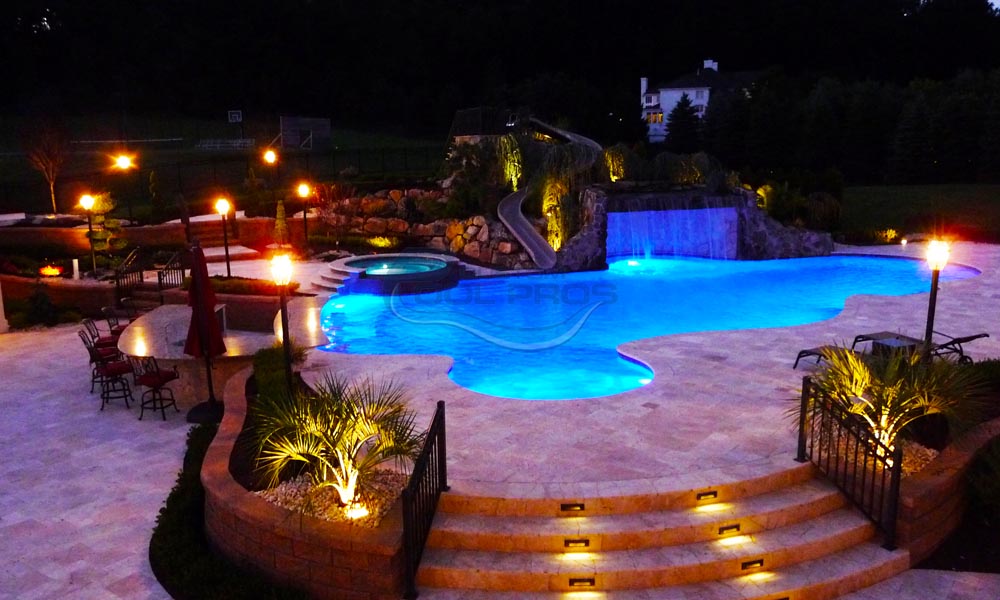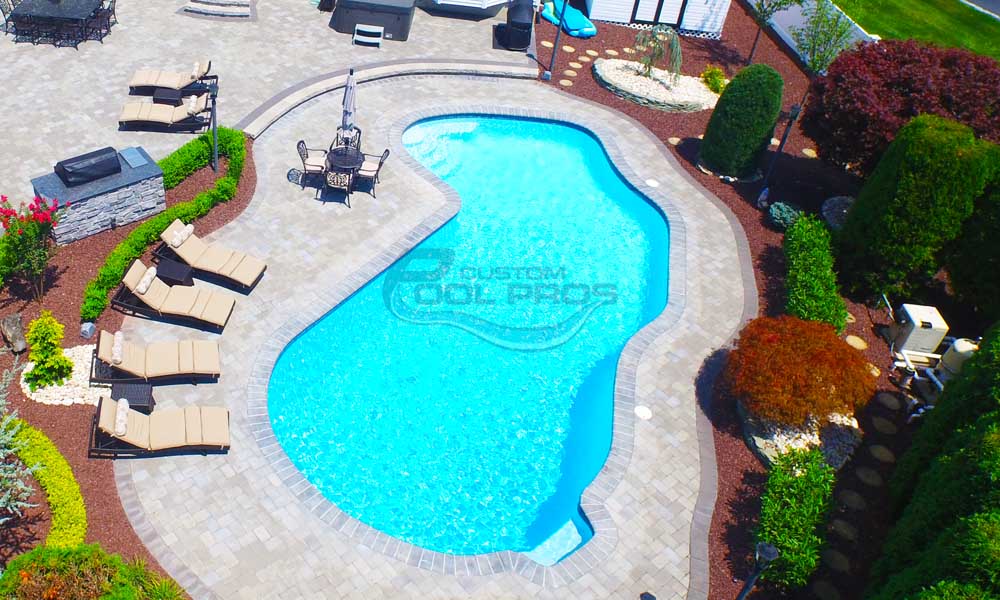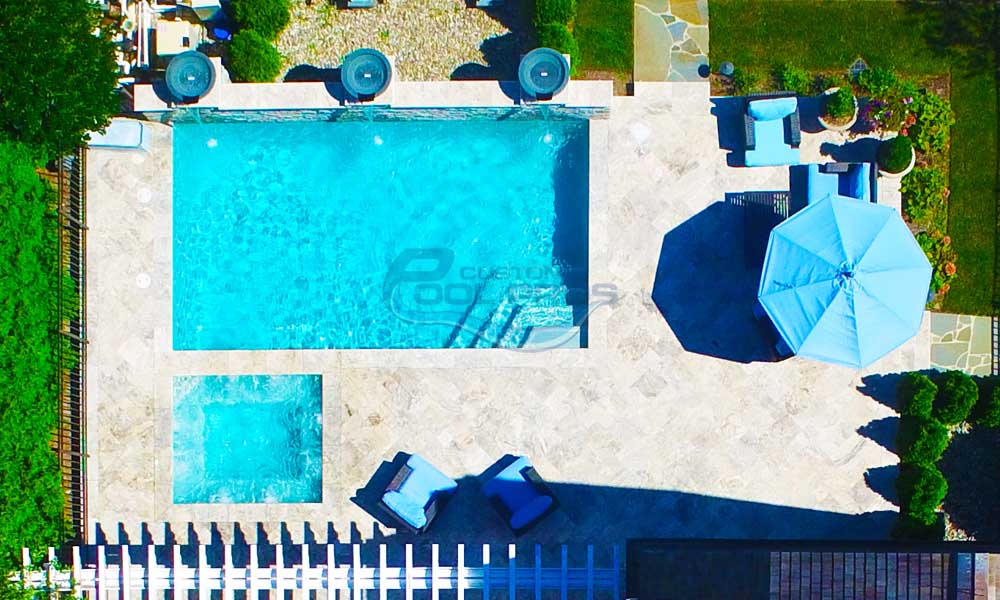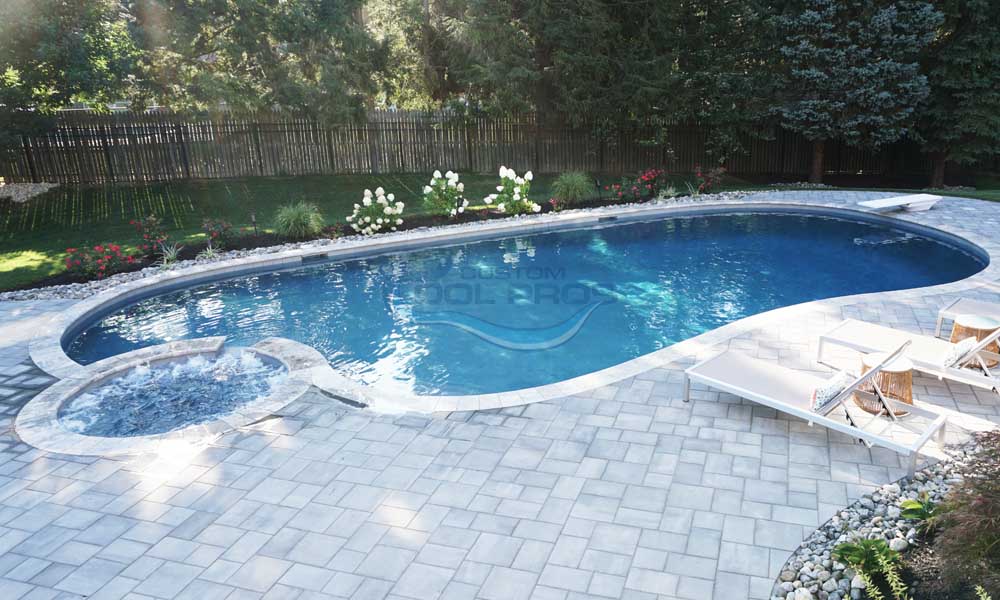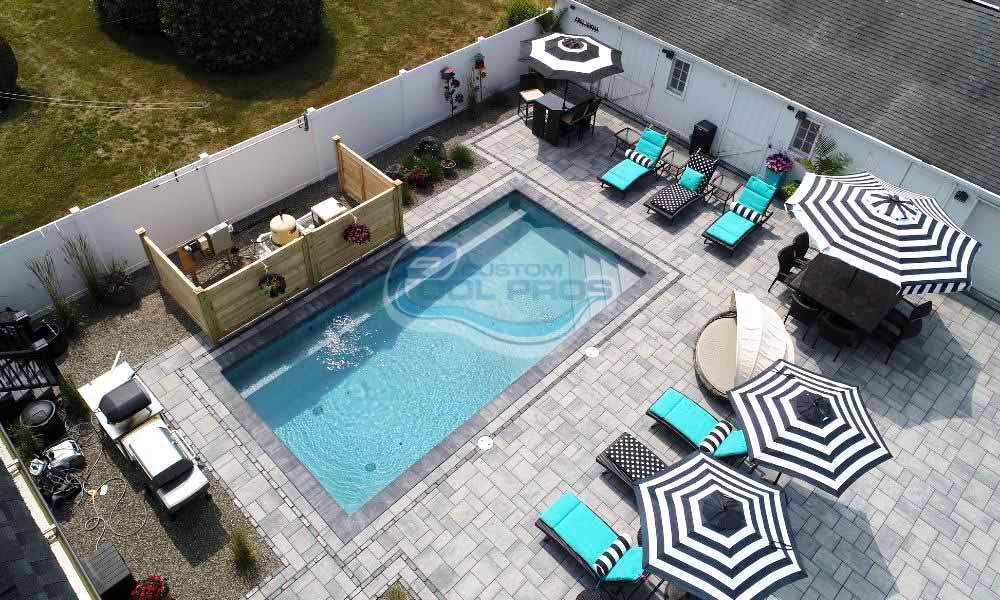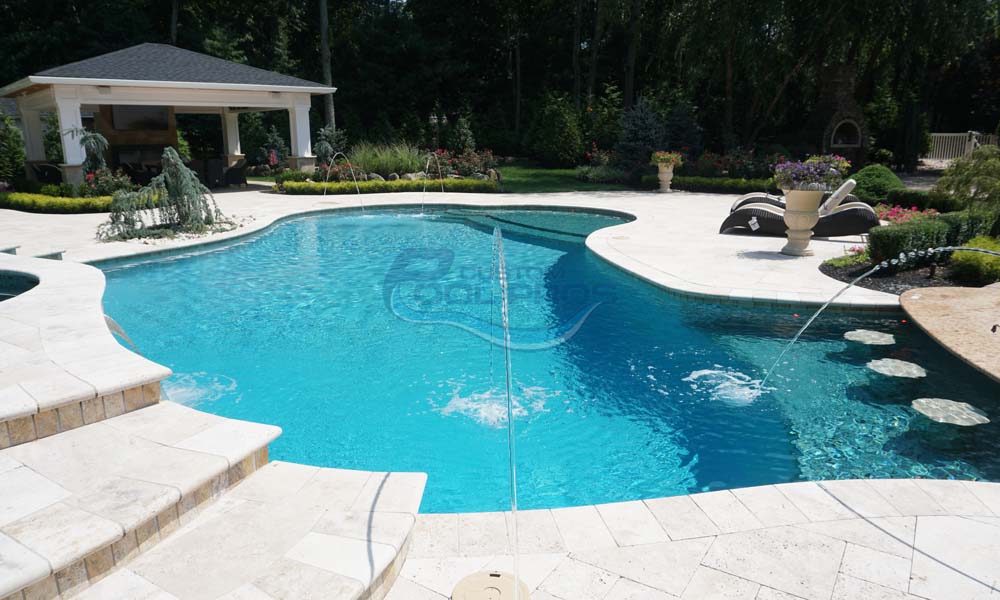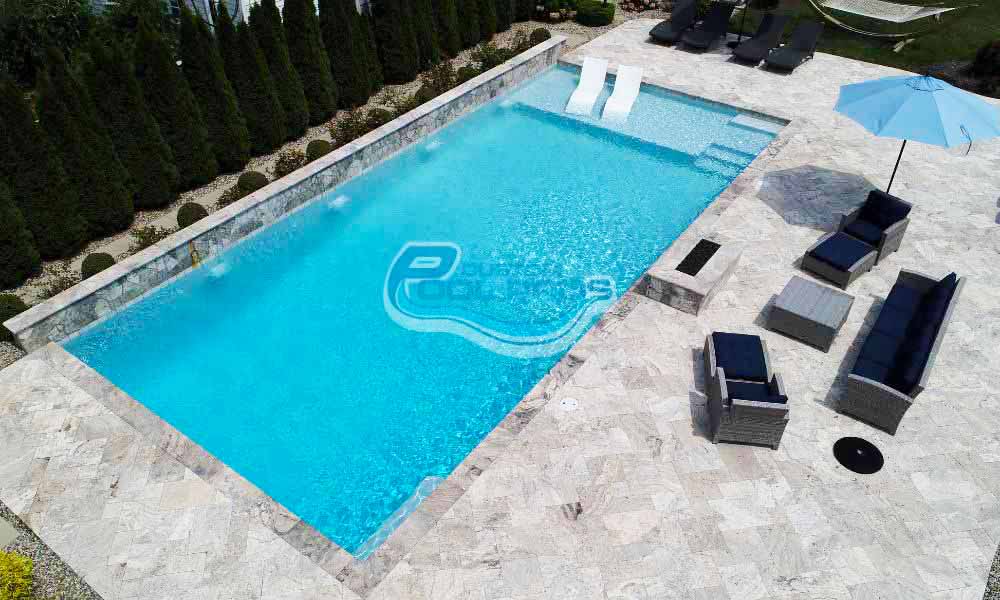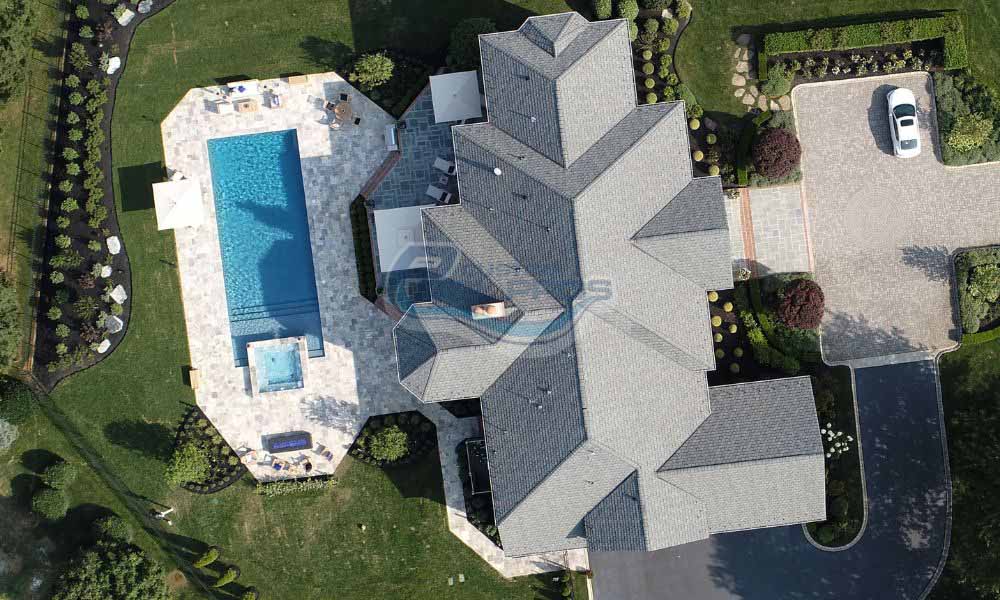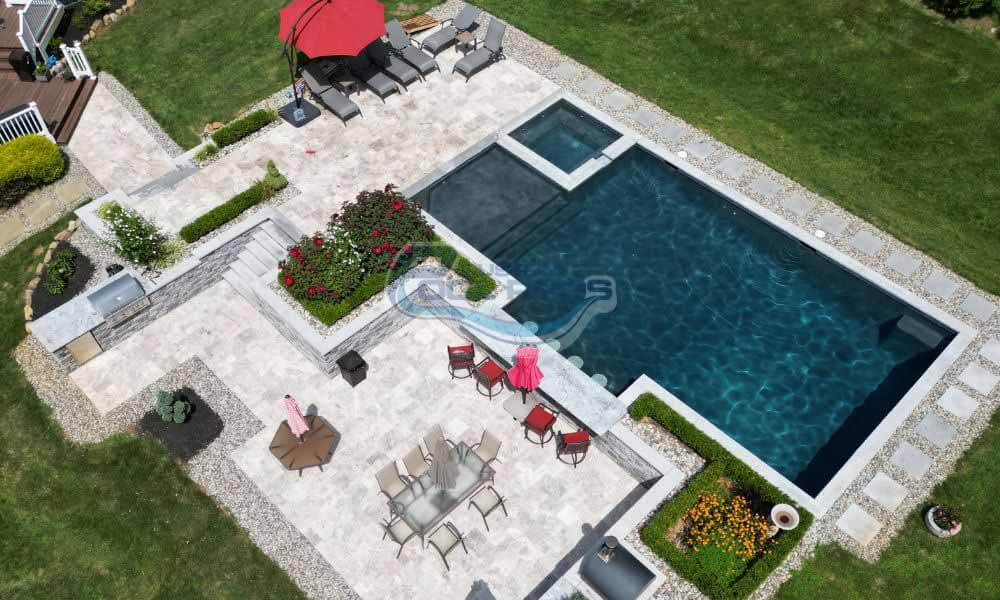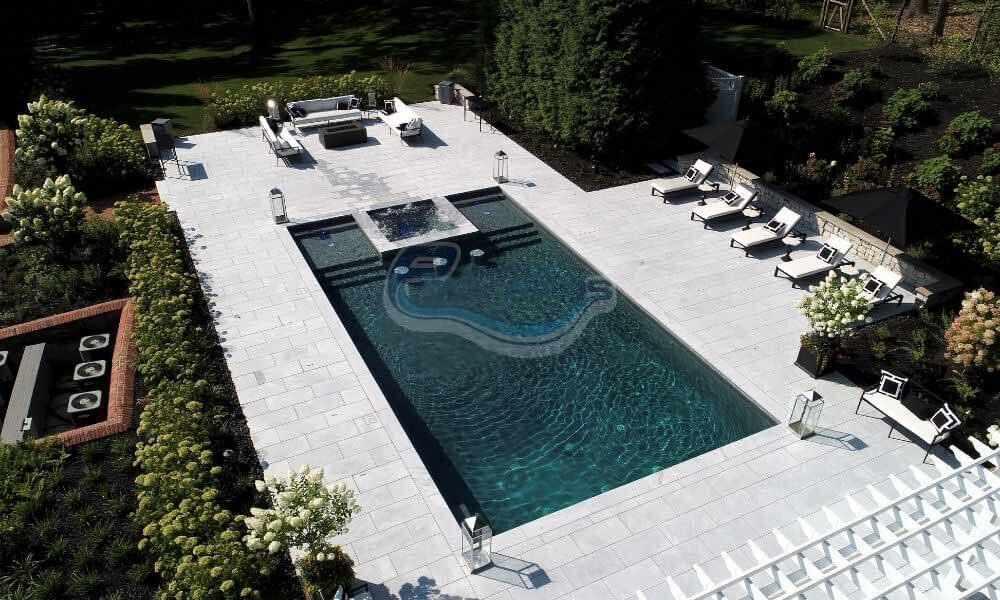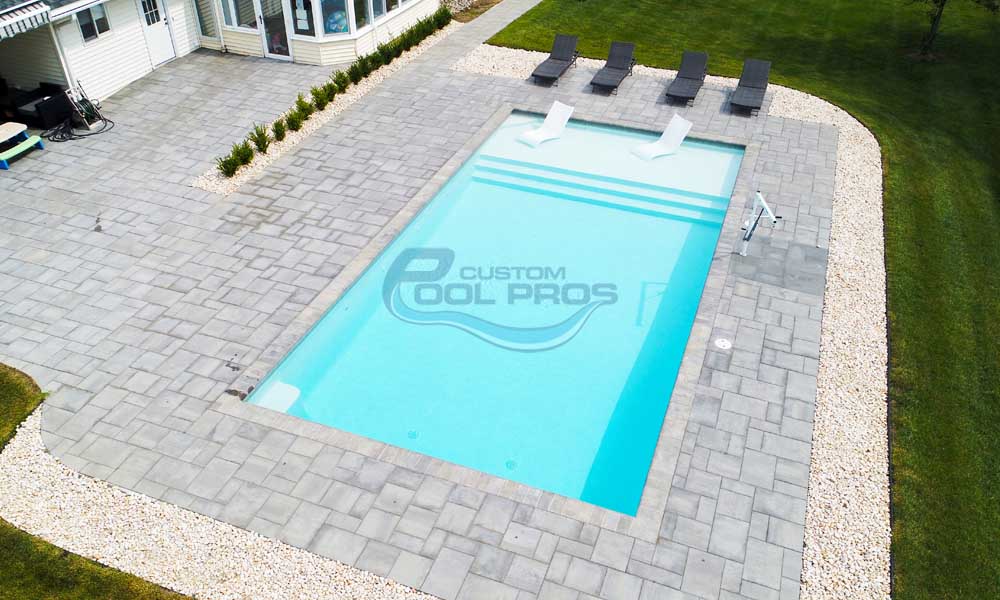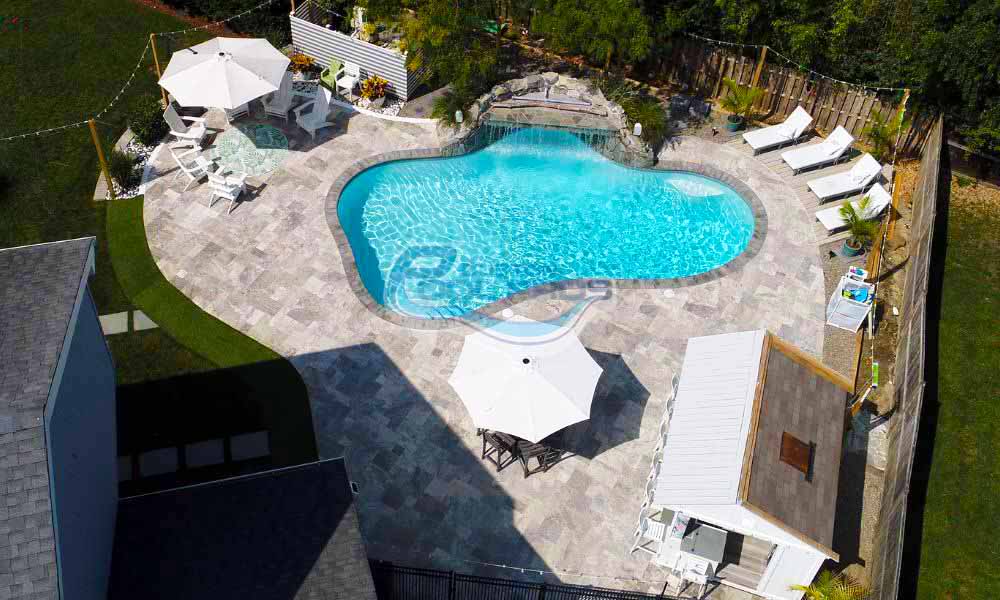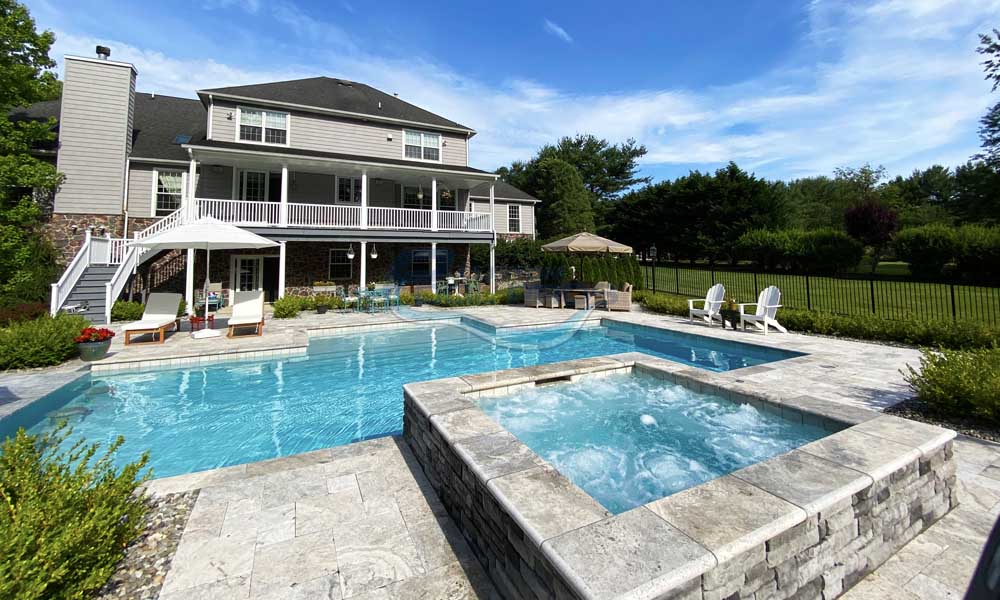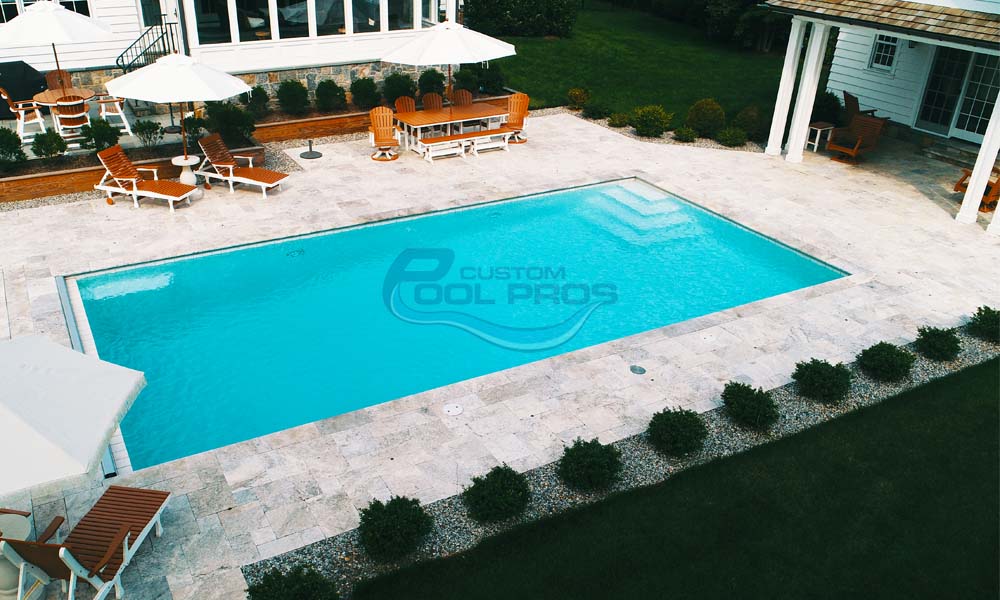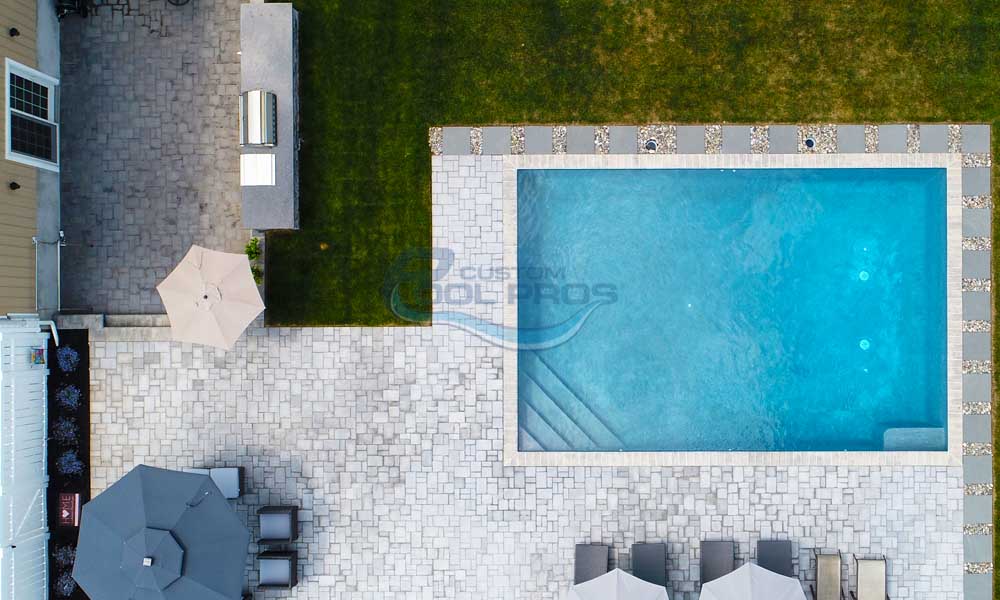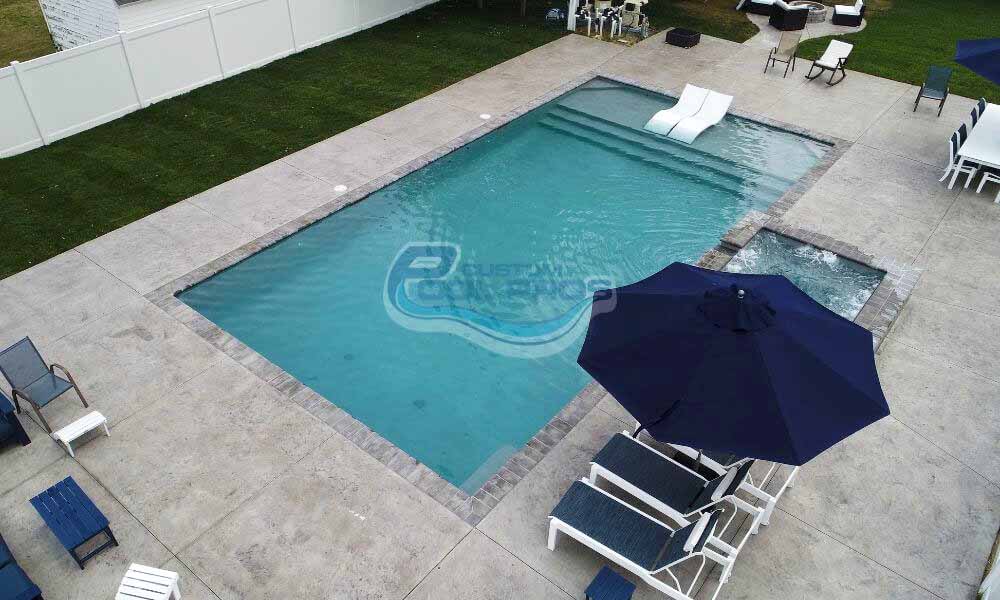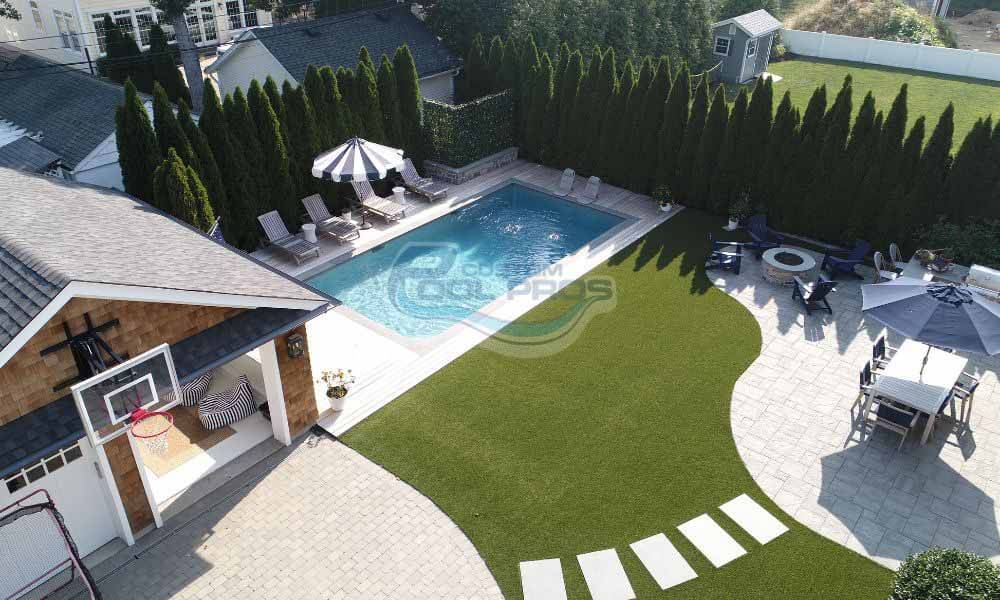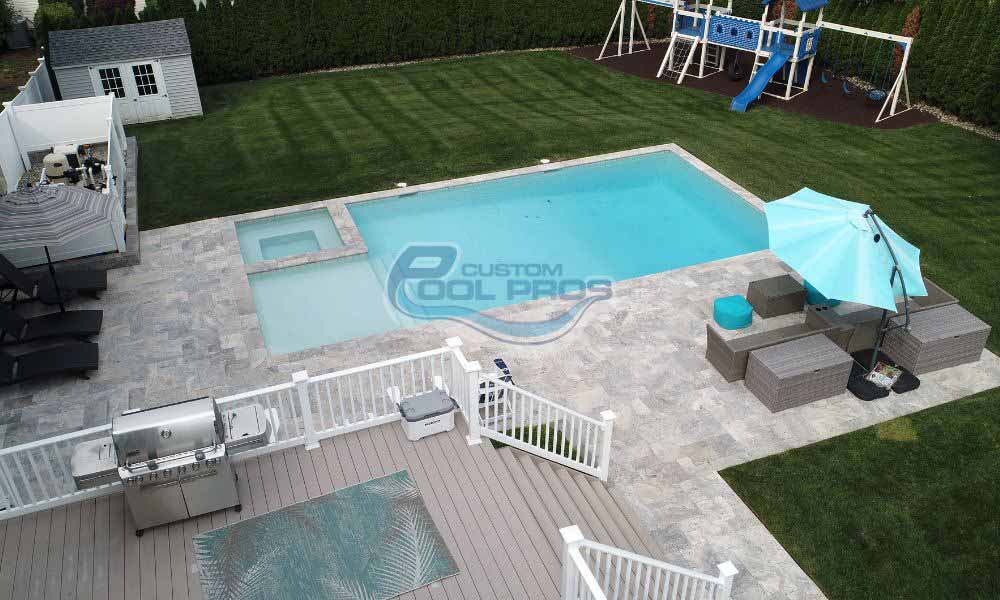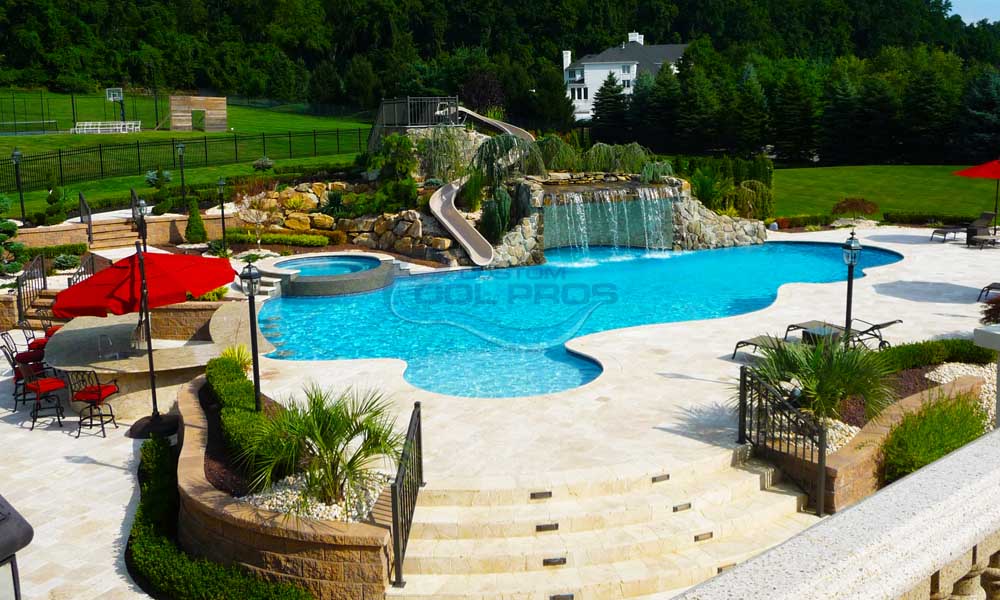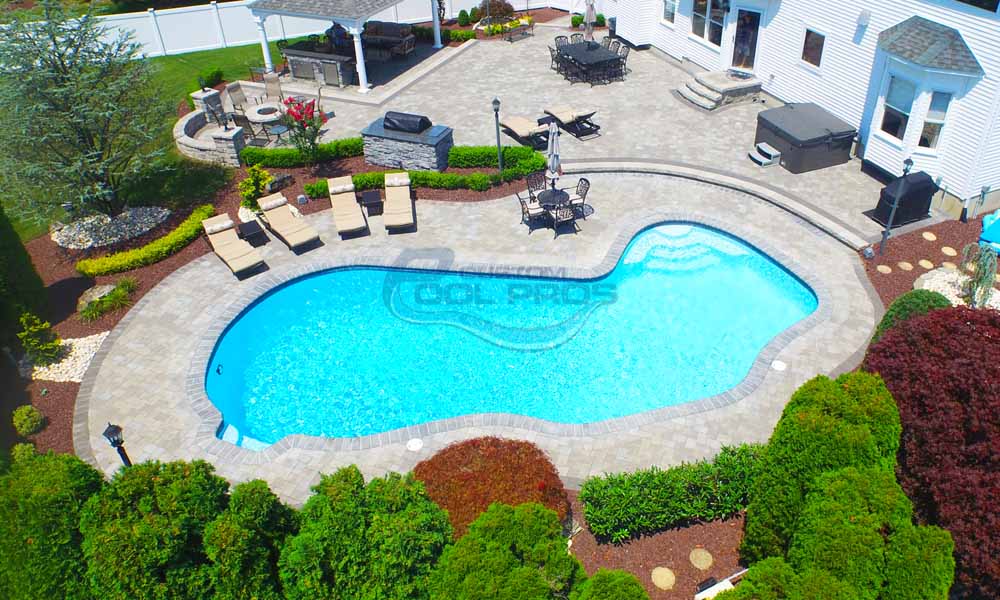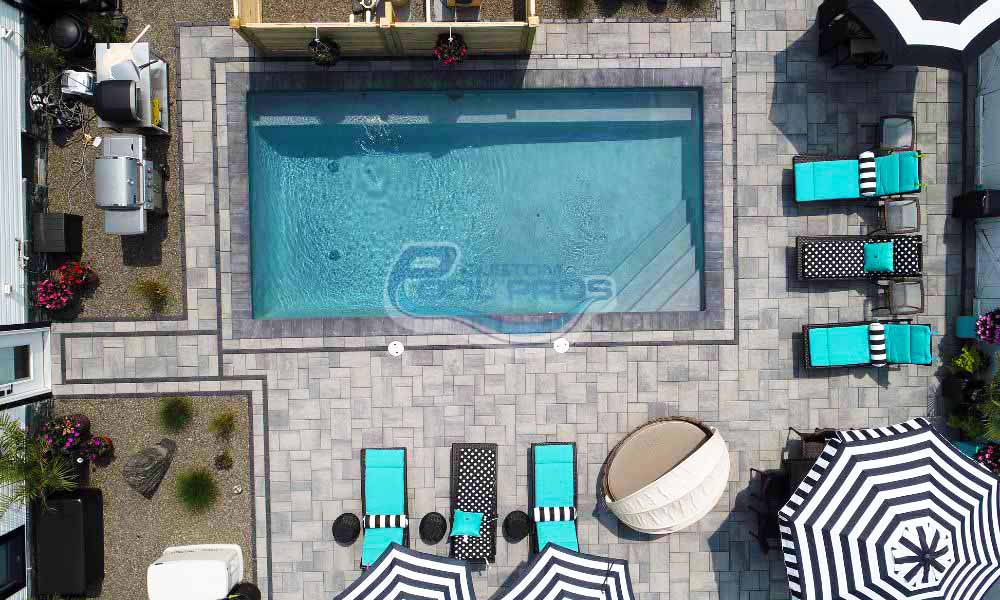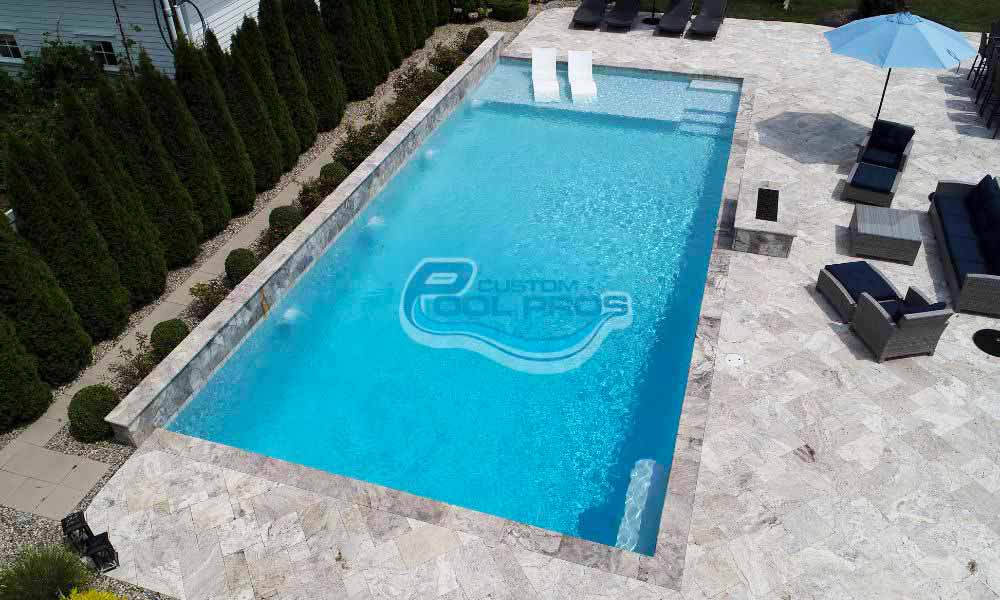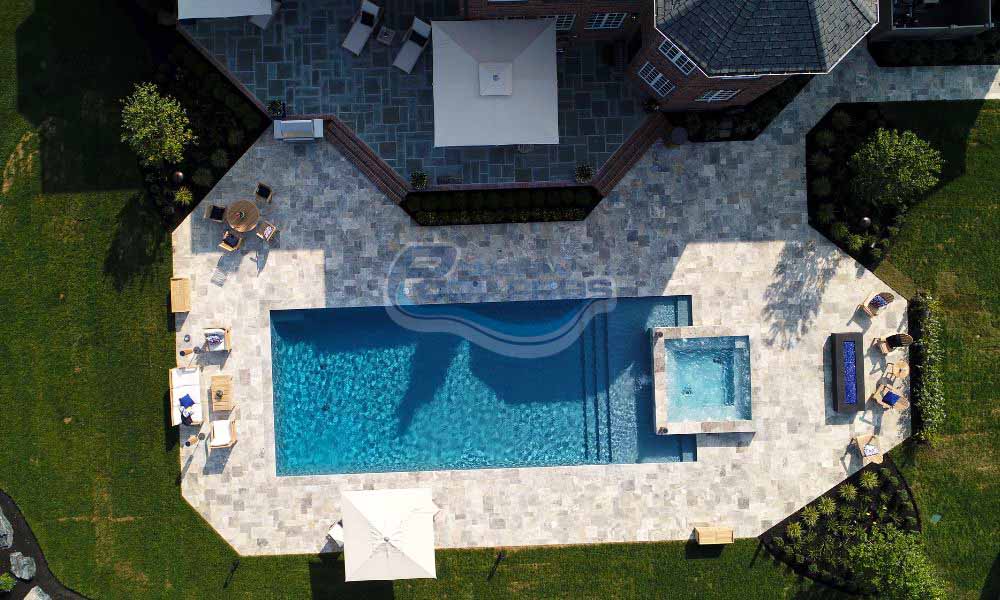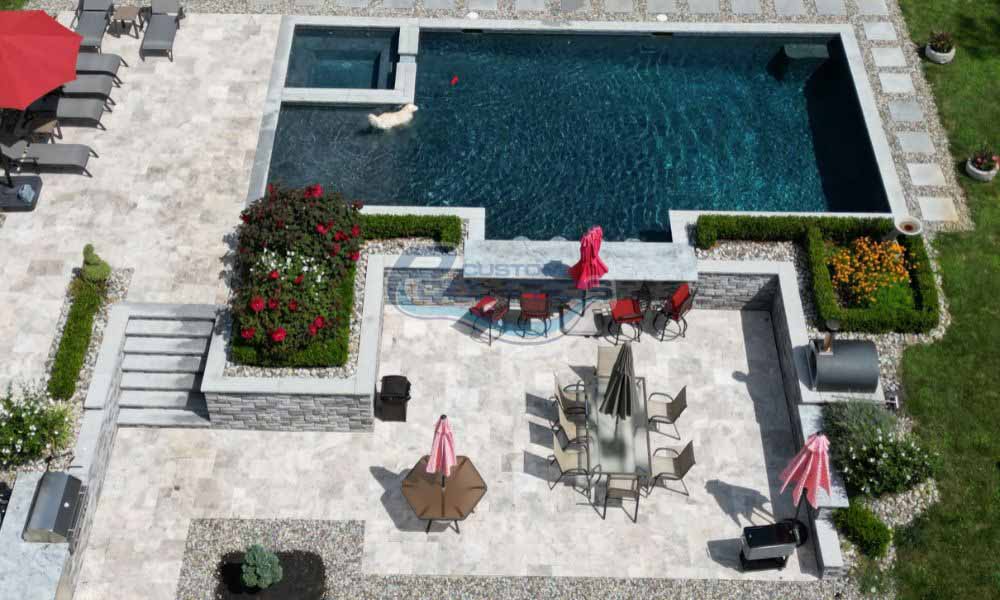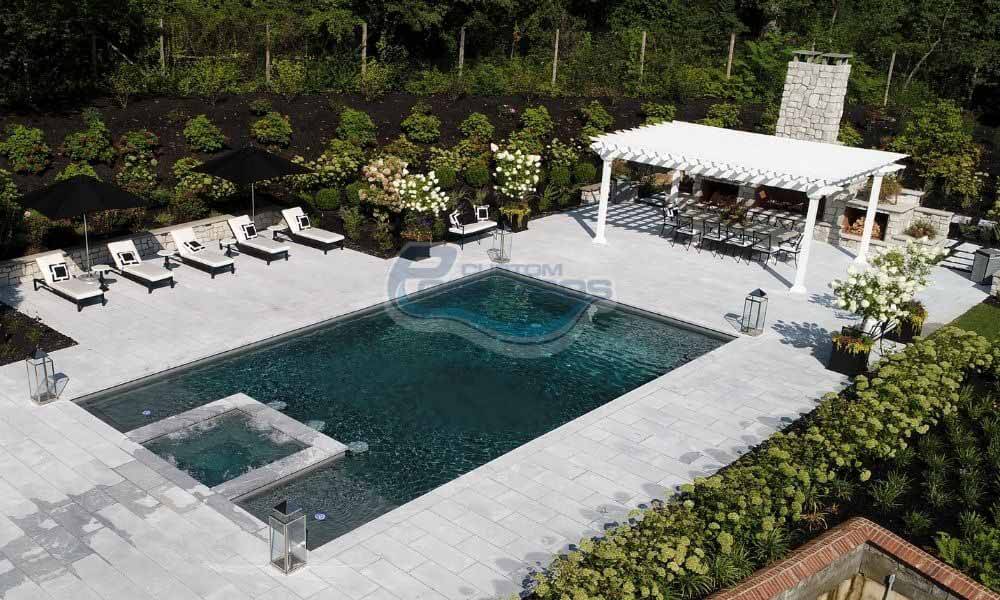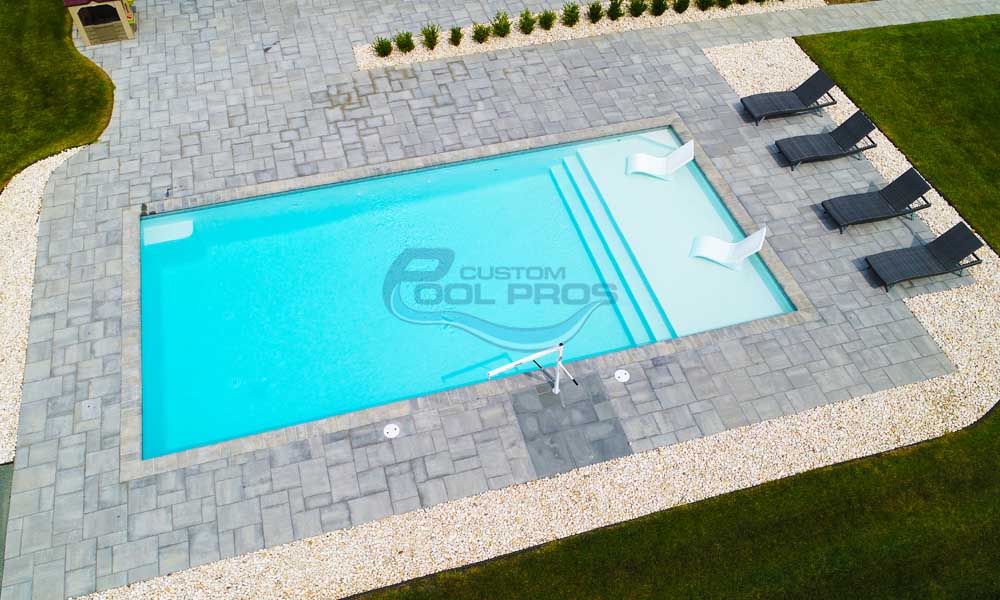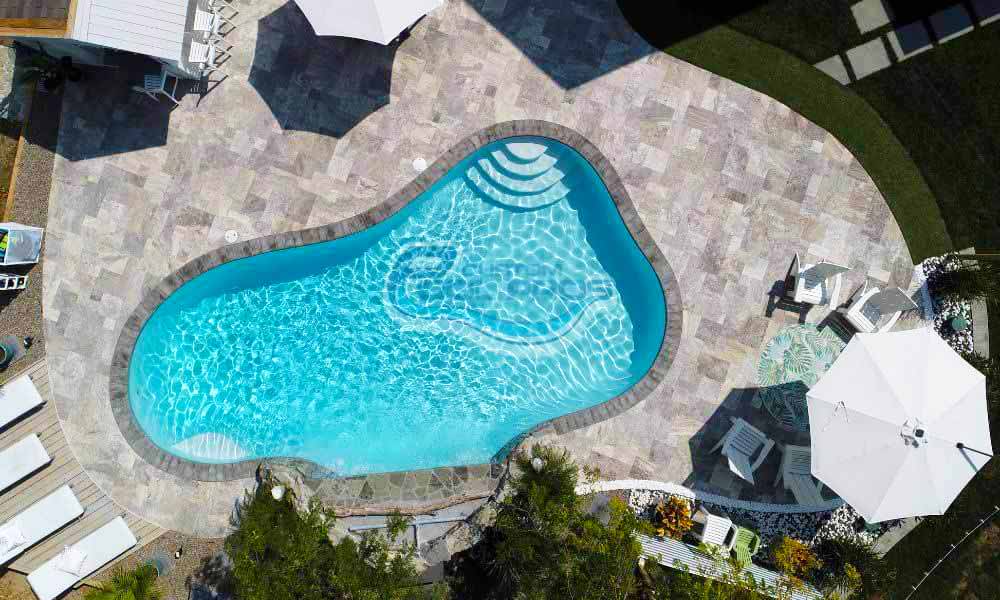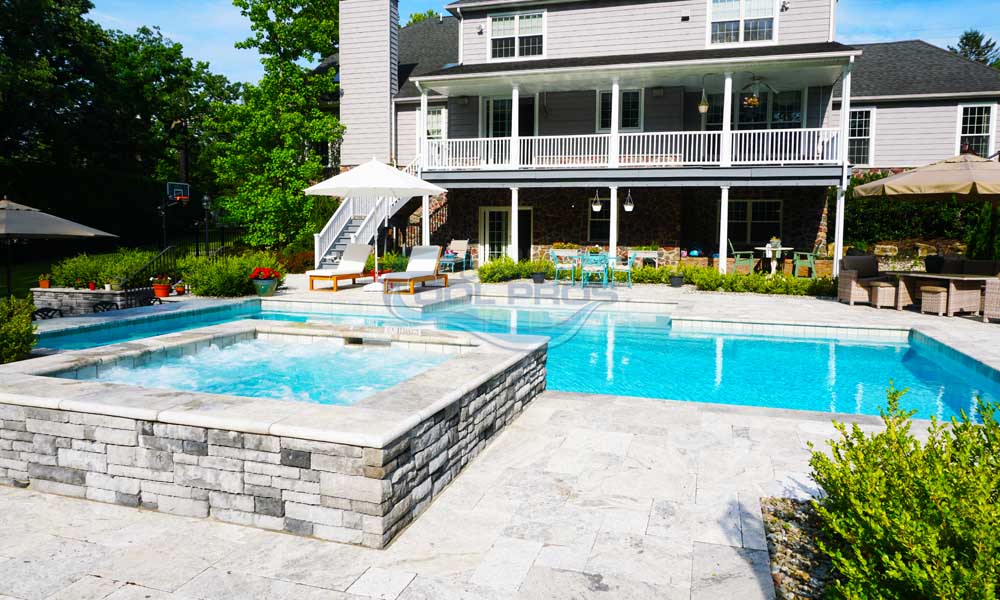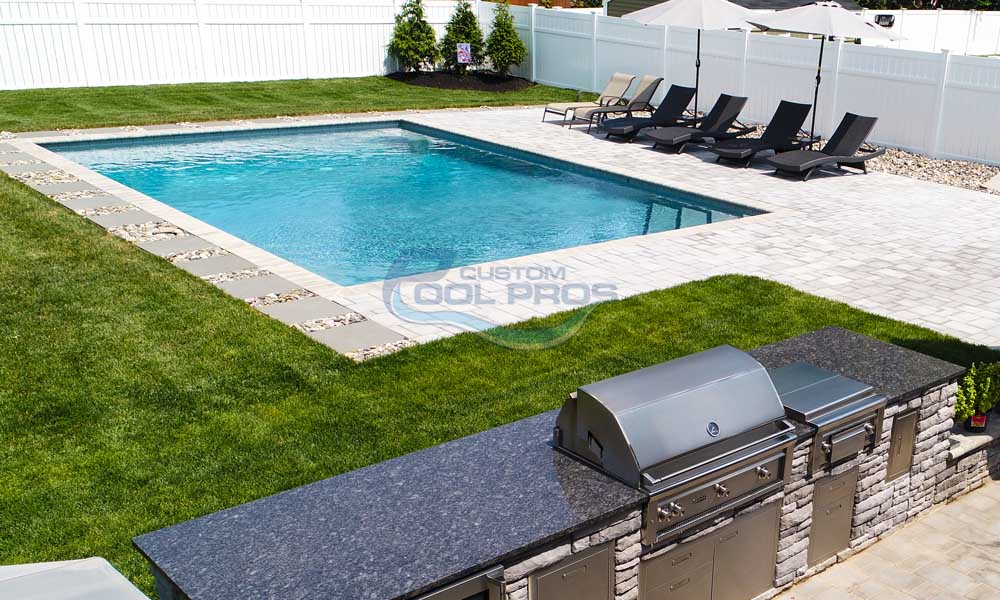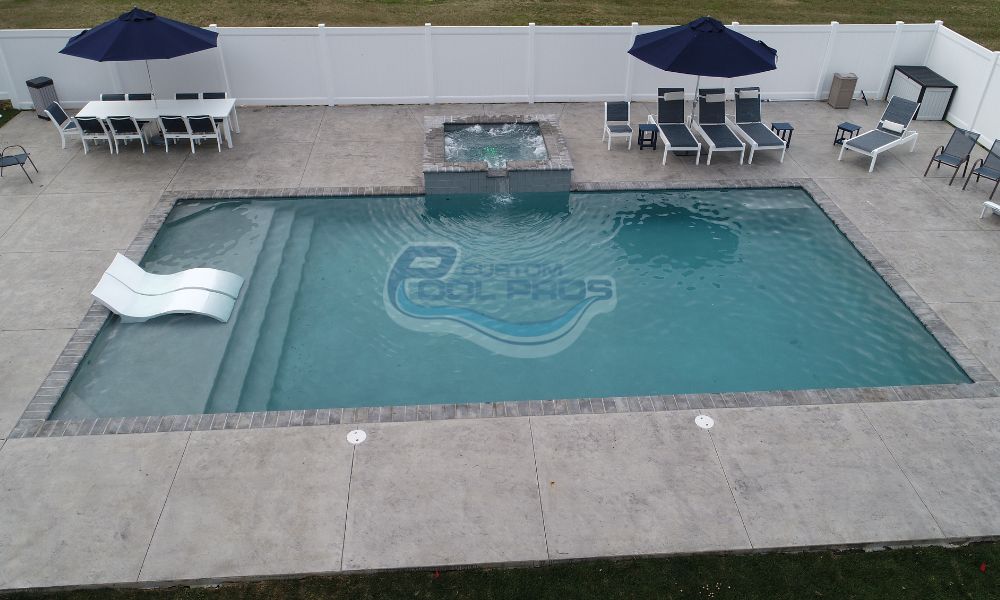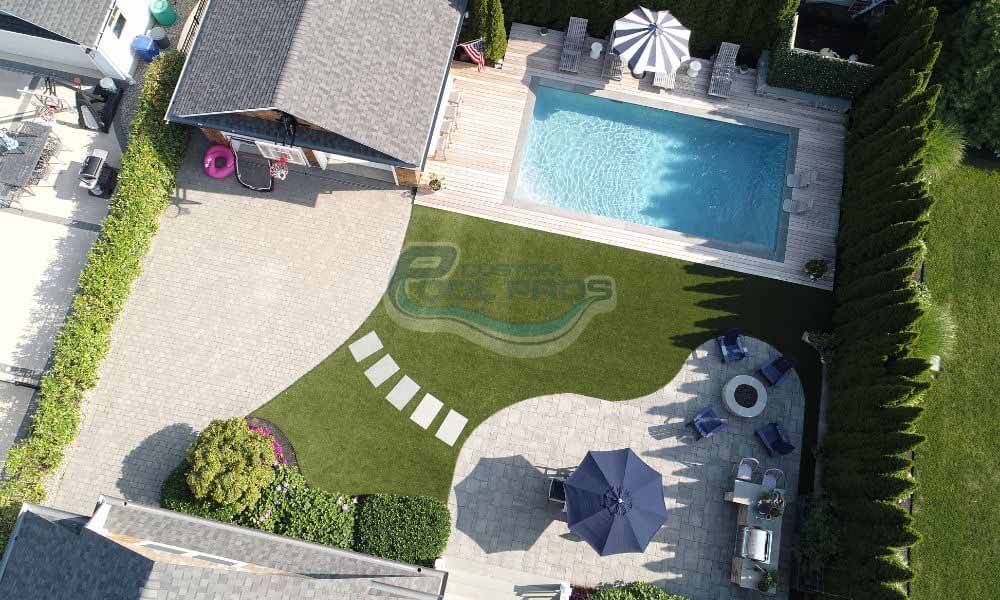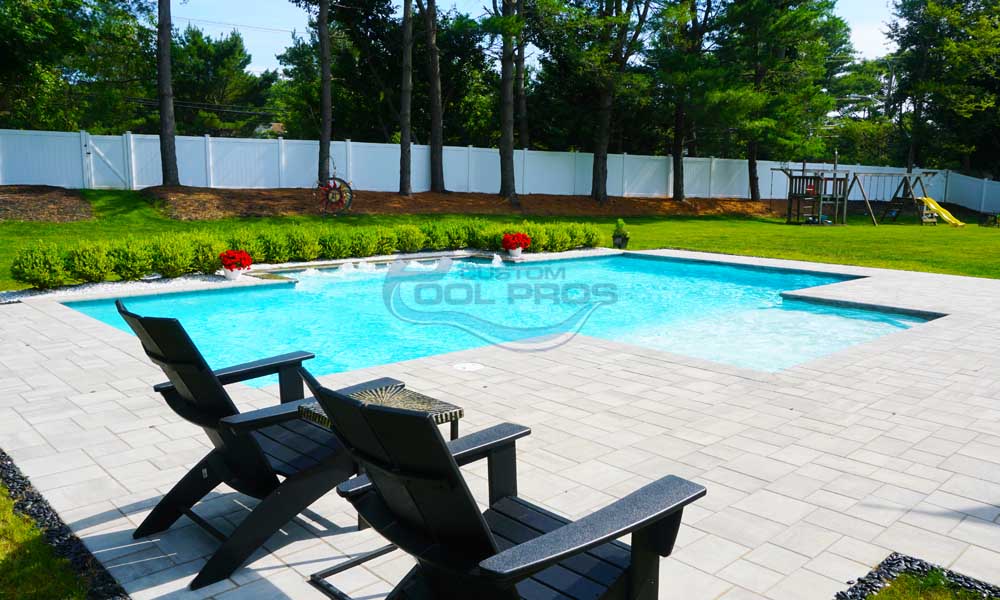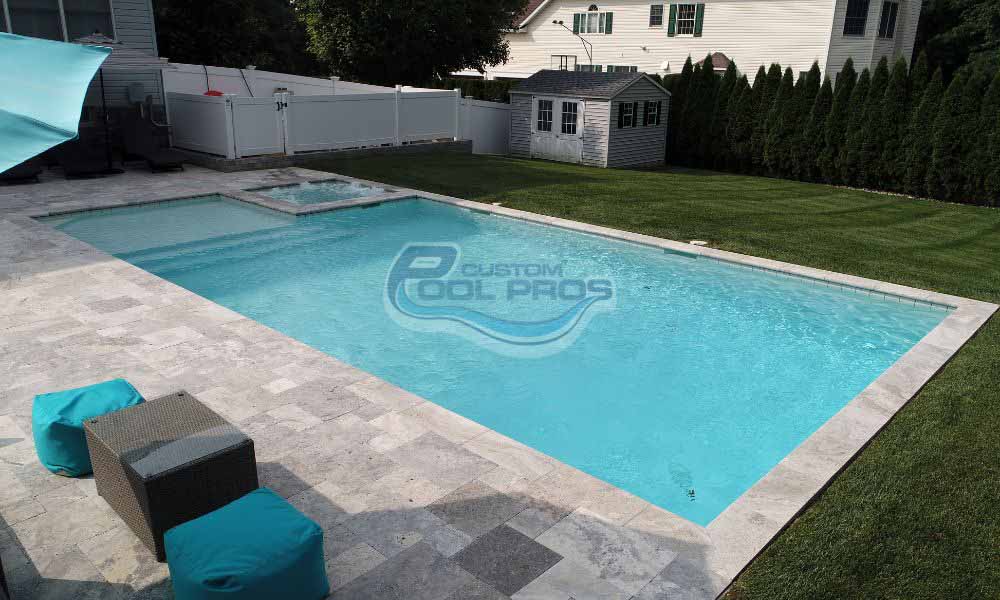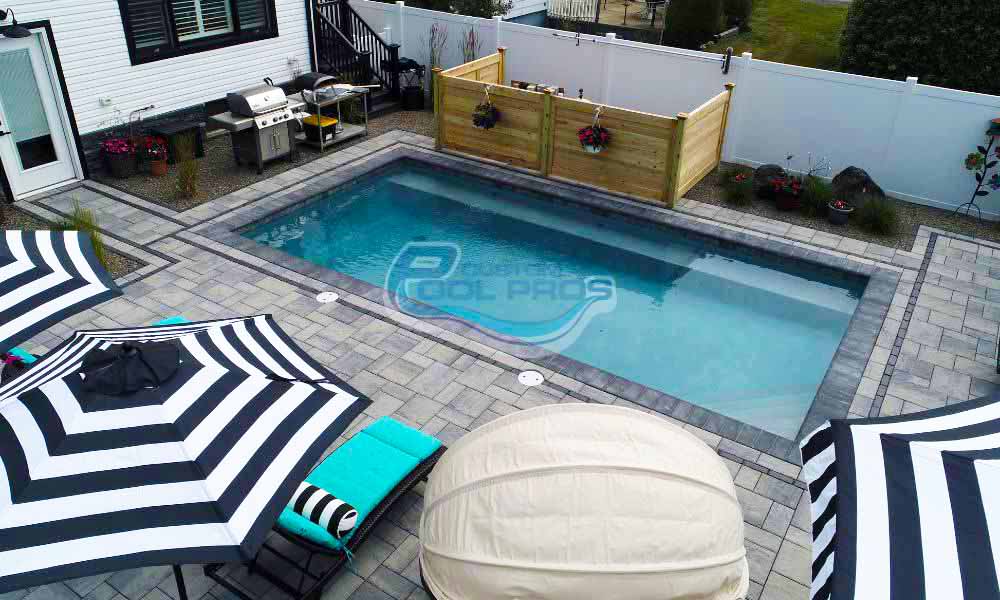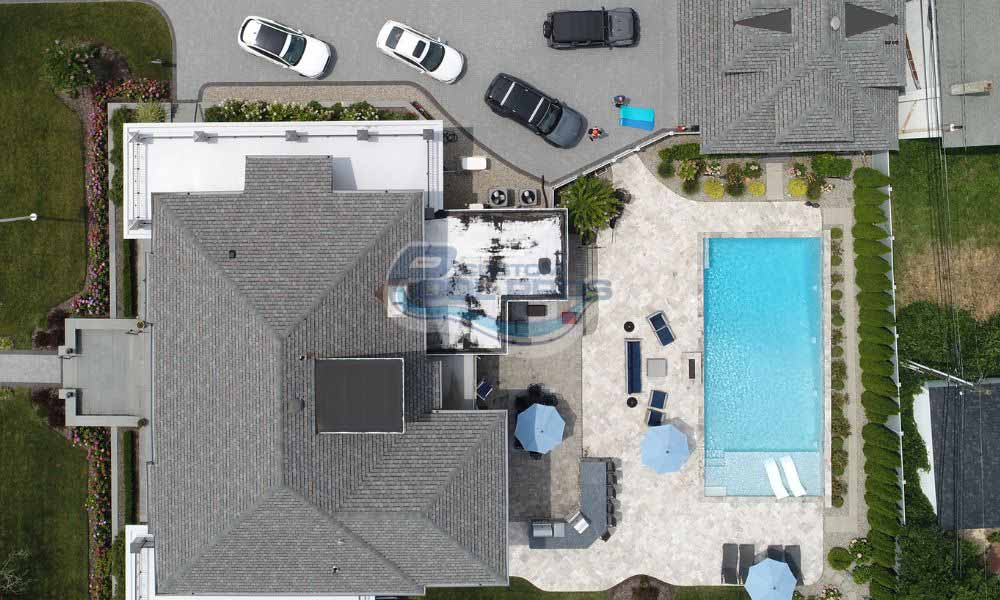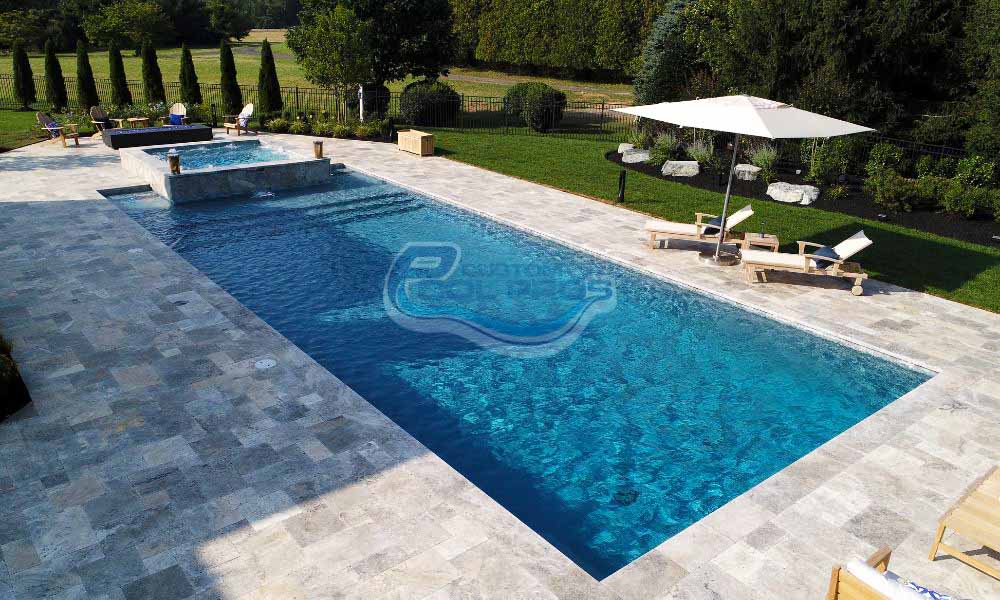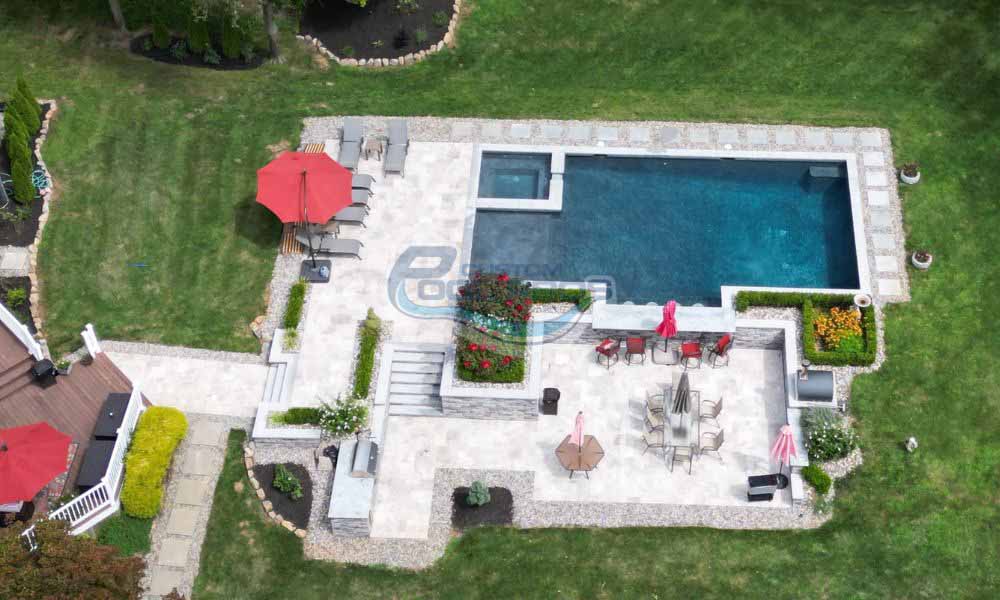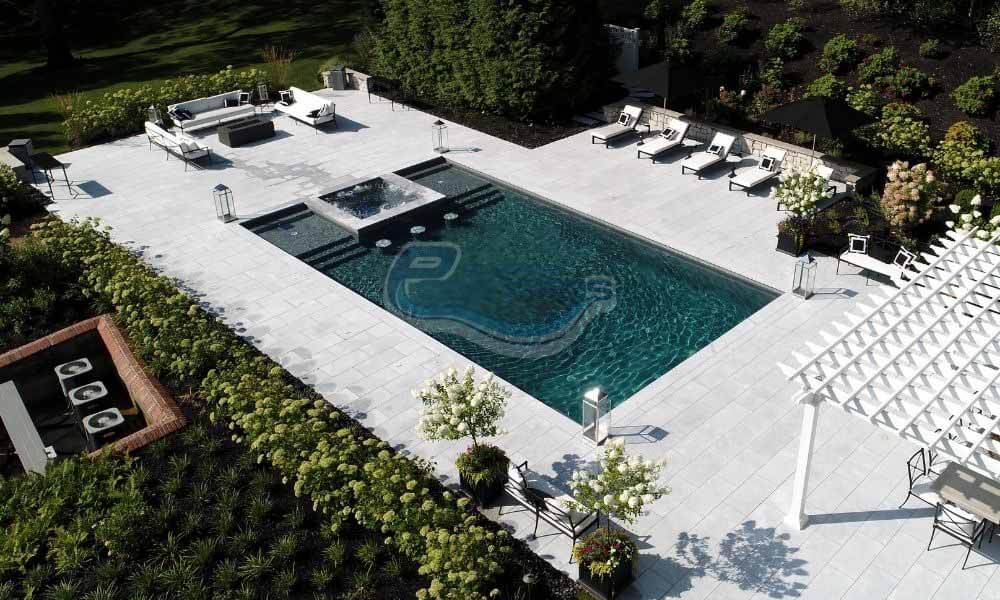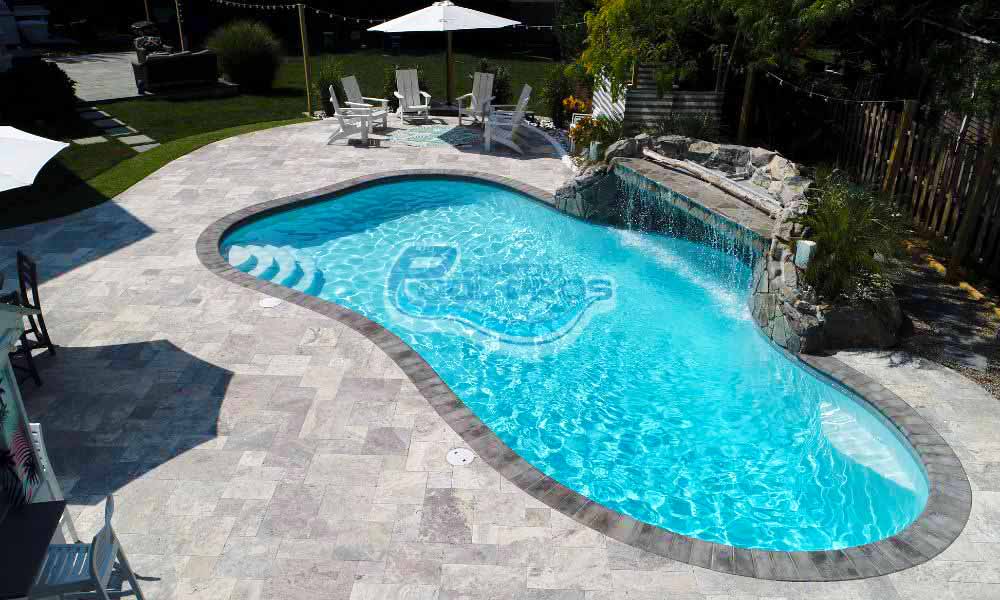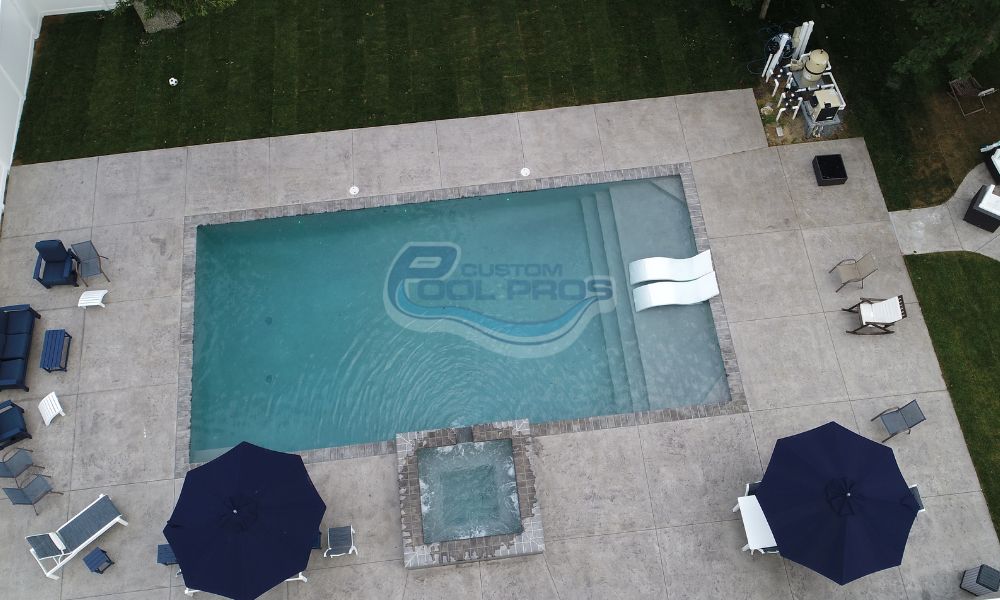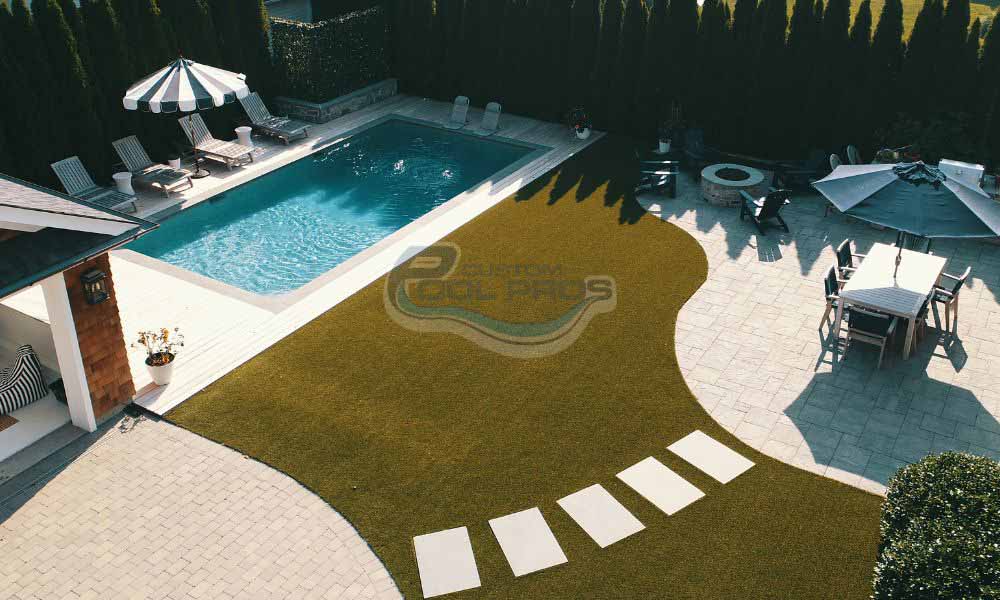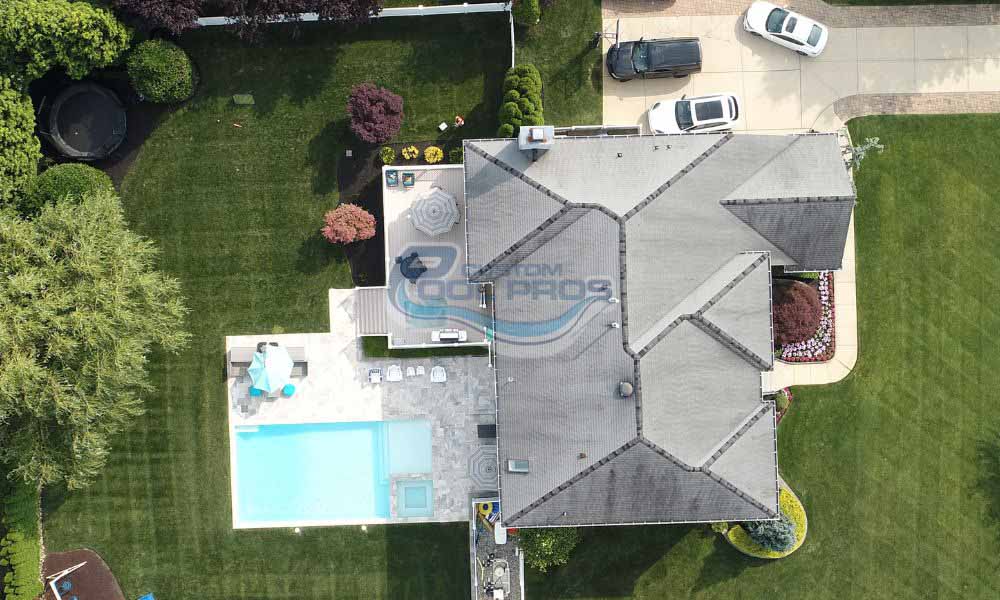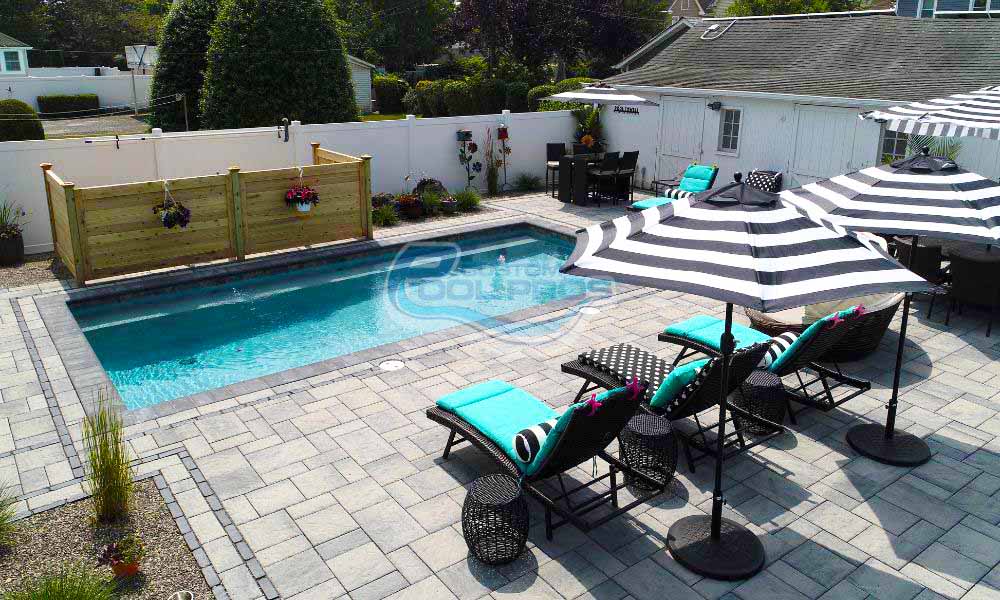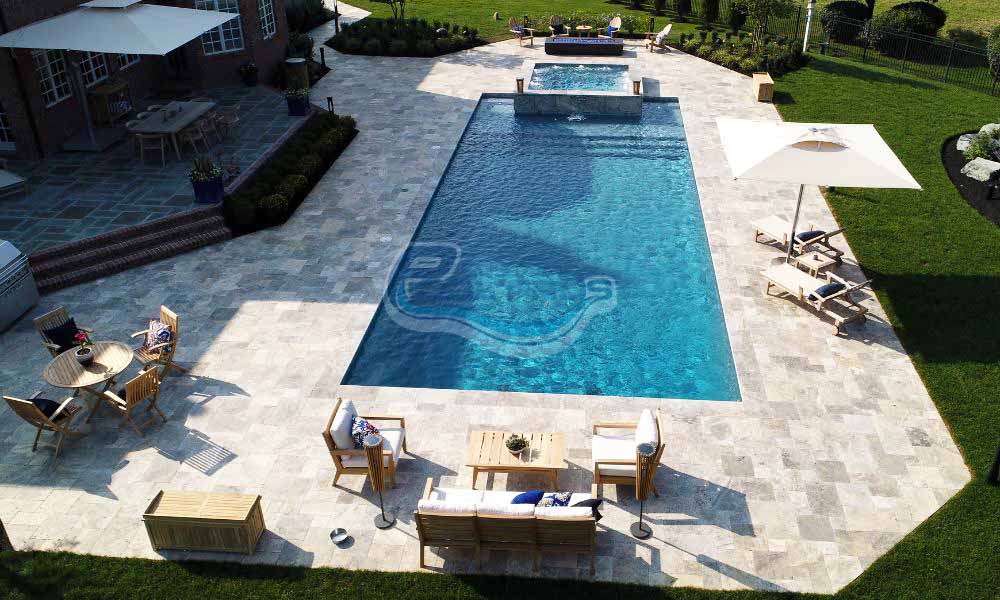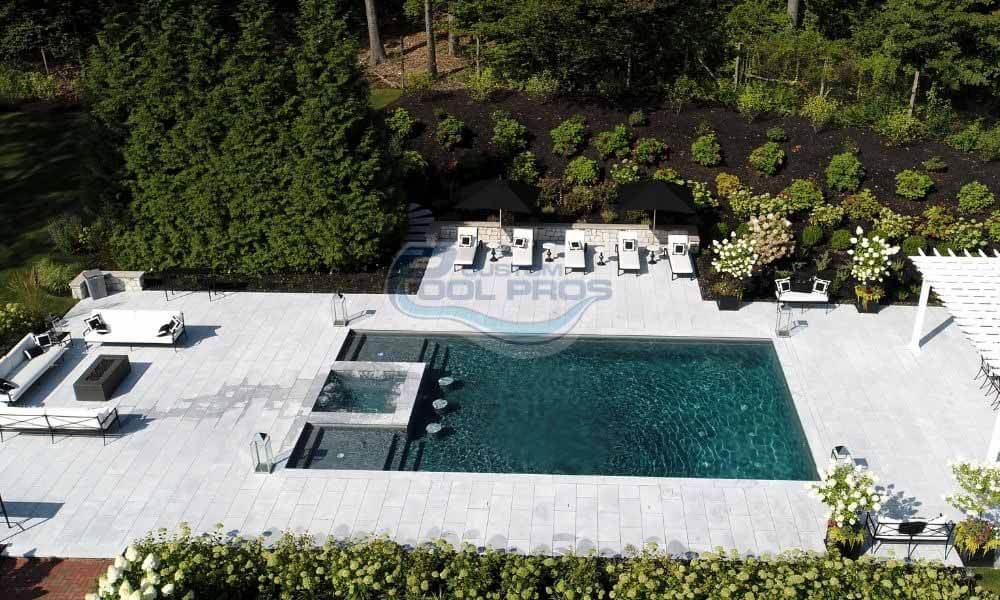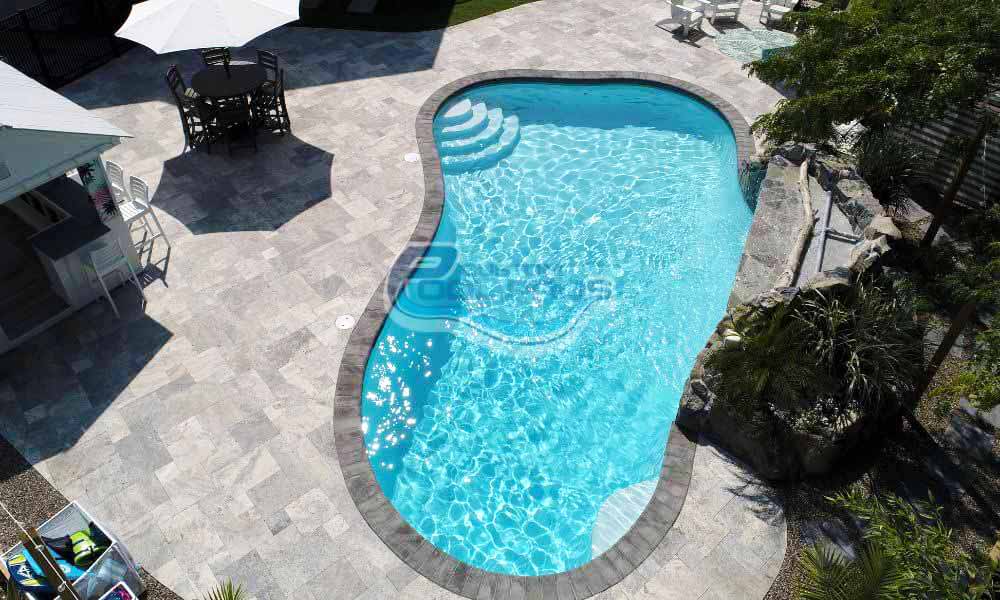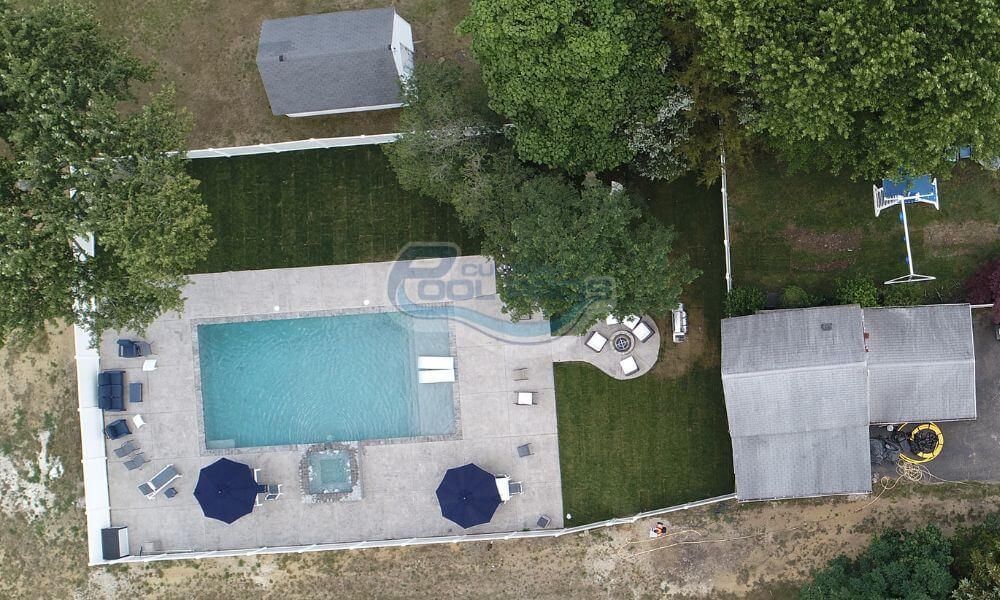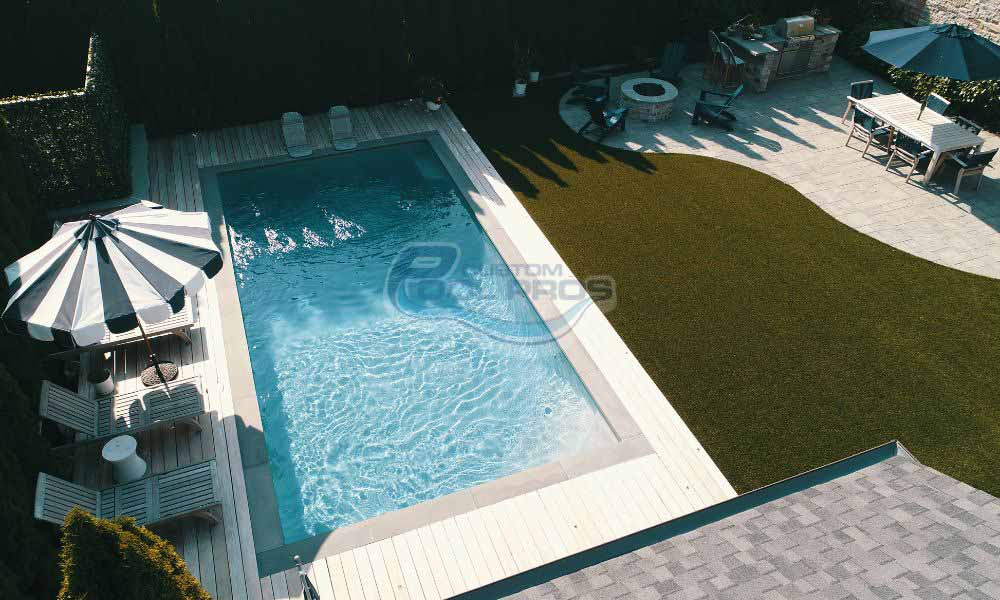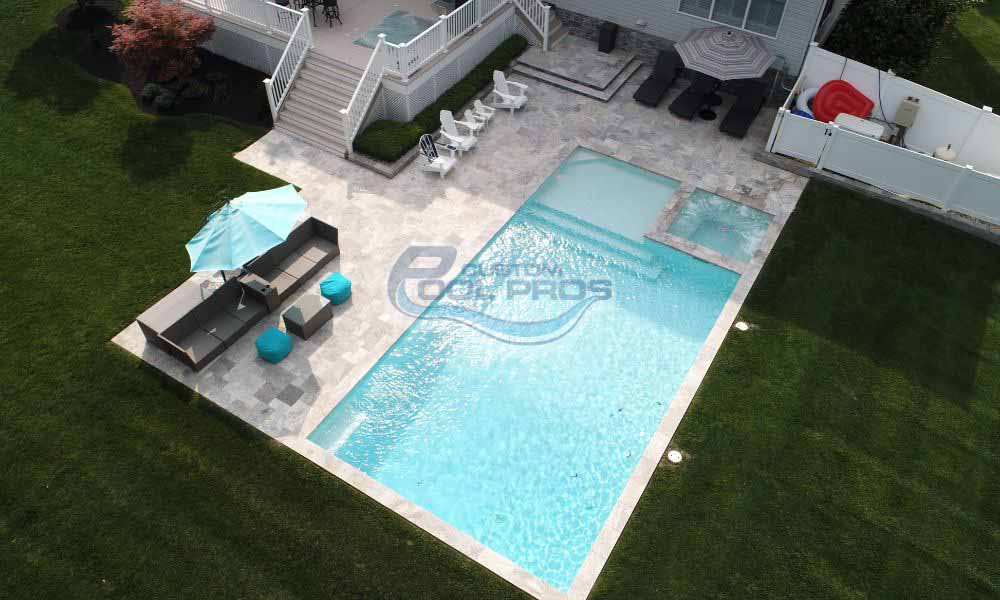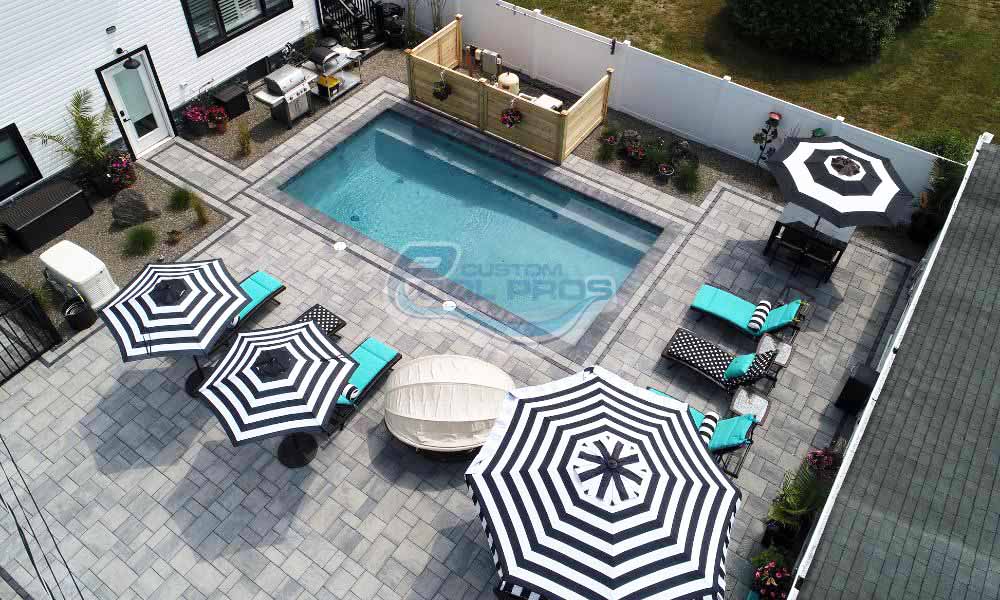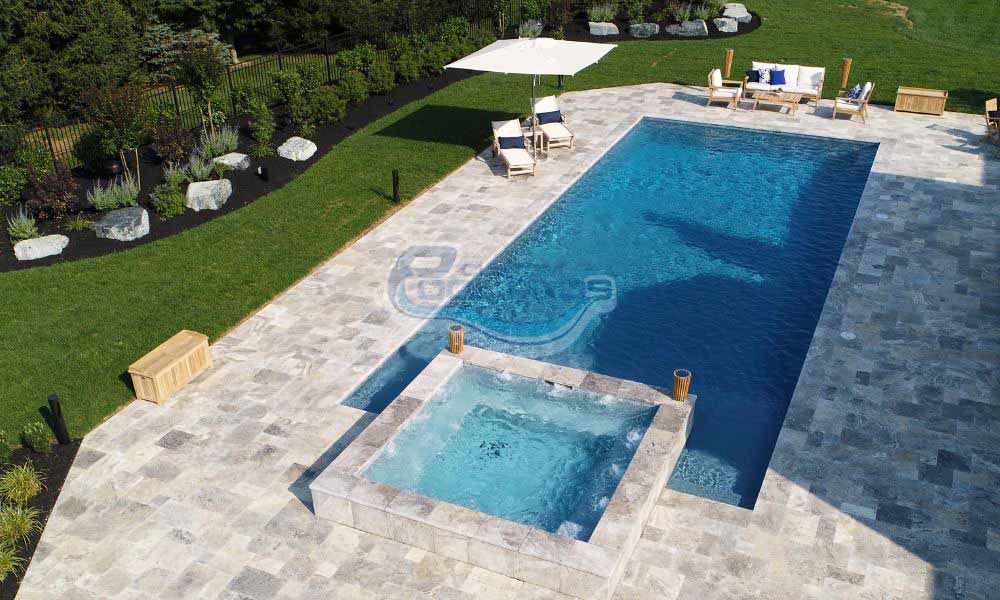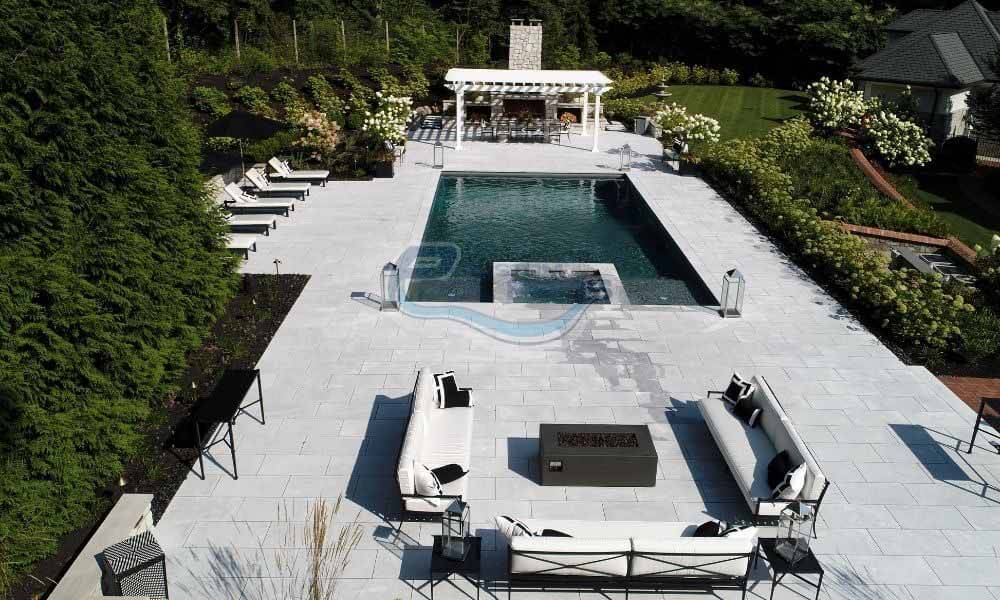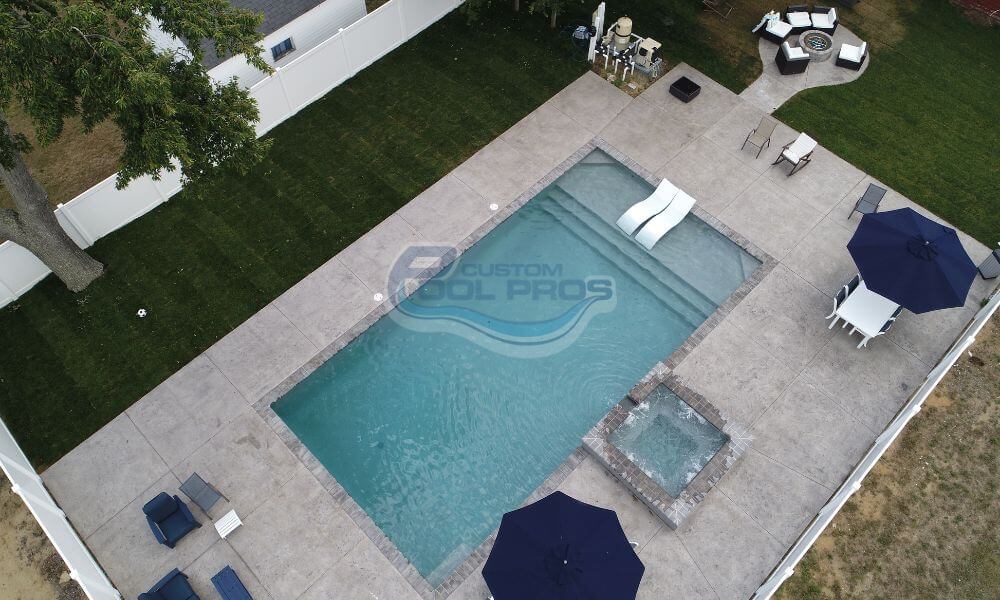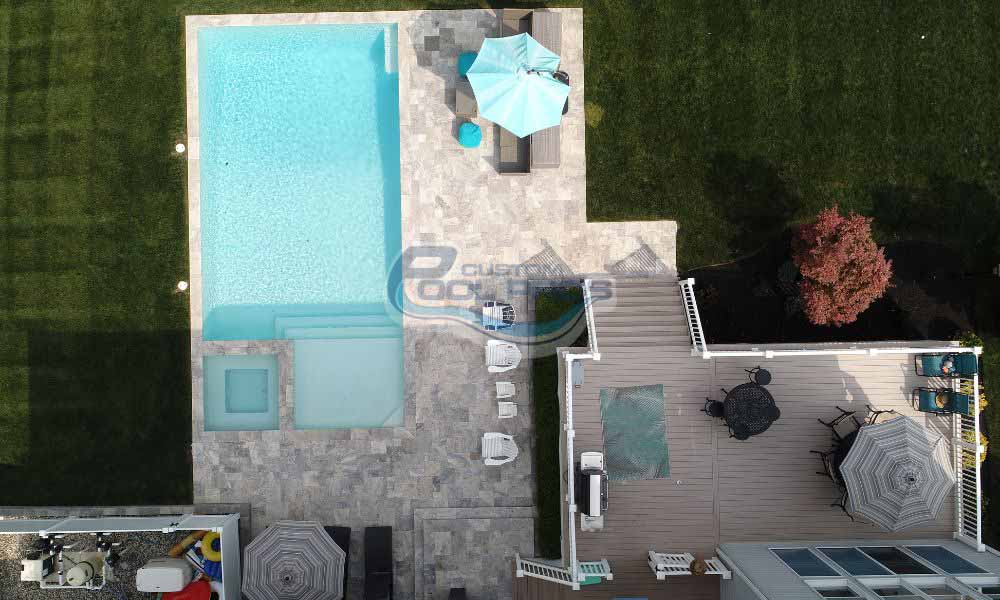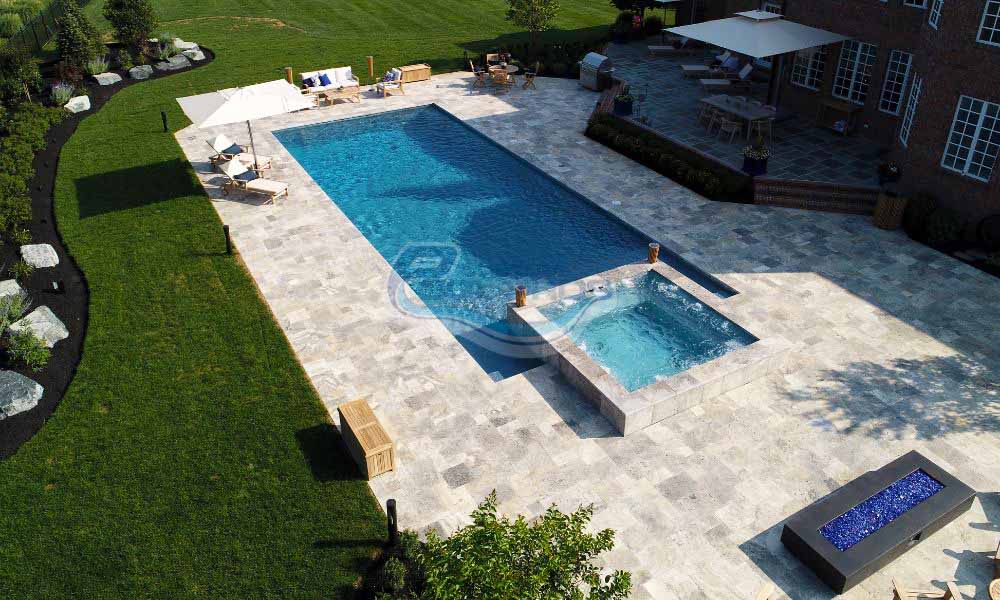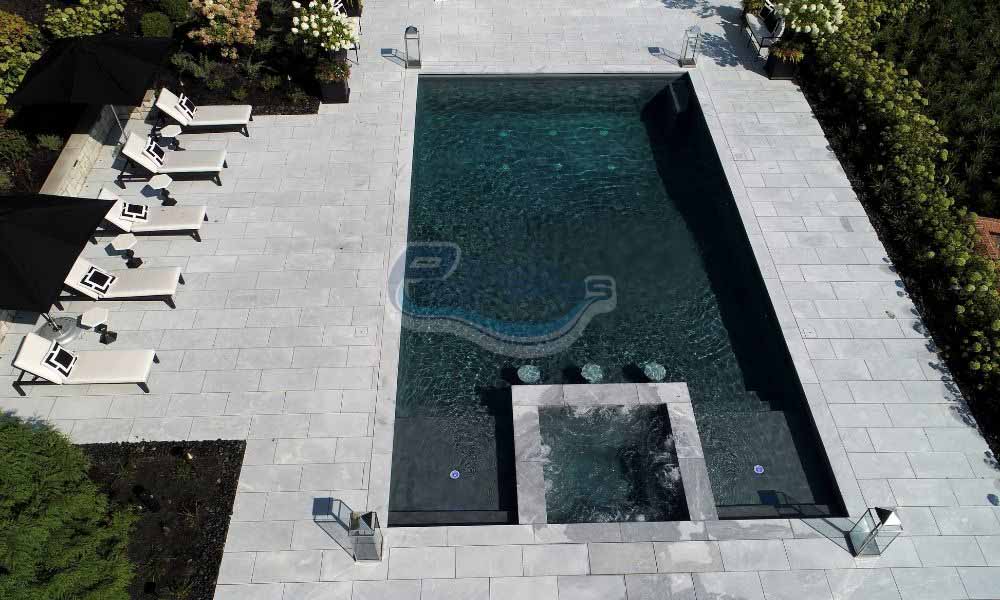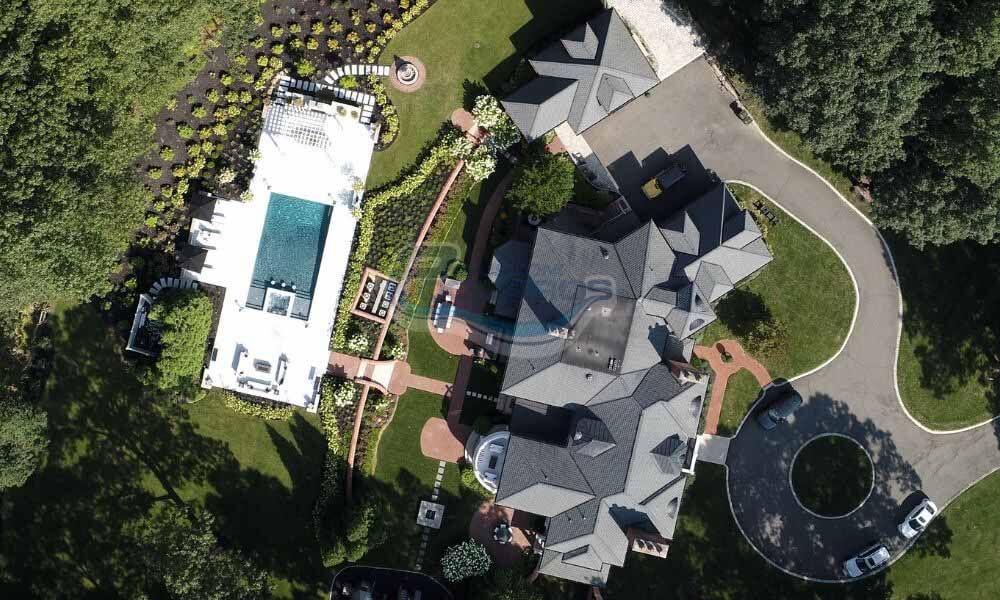Deciding on which type of swimming pool to install in your backyard presents a challenge. There are many designs and materials to choosing, but what if you narrow it down to two? Which option would you consider when considering a fiberglass pool vs a gunite pool? Before diving into this decision (no pun intended), let’s look at the pros and cons of each one.
What is a Fiberglass Pool
A fiberglass pool is a type of pre-manufactured swimming pool made of woven fiberglass with layers of vinyl resin and waterproof polyester. It is installed in a backyard as a single unit and comes in various designs, sizes, and shapes. While lacking customization, it is durable and has a smooth gel-like finish for protection.
Fiberglass Pool Pros and Cons
Your standard fiberglass pool comes pre-molded and consists of millions of glass strands woven together and covered with polyester resin. This type comes with its own set of upsides and downsides.
Pros of Fiberglass Pool
Some notable characteristics of a fiberglass pool include:
- Durable and Flexible
- Quick Installation
- Low Maintenance
- Smooth Surface
Cons of Fiberglass Pool
Likewise, fiberglass pools have some drawbacks which include:
- Limited Design Options
- Limited size option
- Manufactured defects
- Higher Initial Cost
What is a Gunite Pool
A gunite pool is constructed using a mixture of cement, crushed slag, sand, and water that is sprayed over reinforcement to create a lightweight concrete structure. It offers flexibility in shaping and design, as compressed air guns are used to apply the mixture.
Gunite Pool Pros and Cons
The alternative to a fiberglass pool is the gunite option. Gunite pools have a more complex construction. The material itself is comprised of cement, water, and sand. This mixture is spread over a heavy-duty rebar frame. Along with its durability, here are some other considerations.
Pros of Gunite Pool
With the gunite pool, you’re looking at a wealth of advantages such as:
- Durable
- Flexible Design
- Limitless versatility
Cons of Gunite Pool
At the same time, there are other factors to consider if you’re considering having a gunite pool installed. Consider the following:
- High Maintenance cost (as compared to fiberglass pool)
- Longer installation process
- Chemical usage
Gunite vs Fiberglass Pool: The Ultimate Comparison
Fiberglass vs Gunite Pool Installation Time
Fiberglass Pool: Fiberglass pools offer a quick installation process, as they arrive completely manufactured and ready to set up. Including the patio installation, the entire process takes about 1 to 2 weeks, making it a convenient option for those looking to have their pool ready in a shorter time frame.
Gunite Pool: In contrast, gunite pools require a more extended installation period due to their complex construction process. This involves excavation, building a frame, applying the gunite mixture, and allowing the plaster to dry and cure. Typically, the installation of a gunite pool takes around 4 to 6 weeks, depending on the design’s complexity.
Fiberglass vs Gunite Pool Maintenance
Fiberglass Pool: Fiberglass pools are known for their low maintenance needs, as their algae-resistant surfaces rarely require acid washing or resurfacing. This type of pool is easy to maintain, reducing the frequency and cost of upkeep, which is a significant advantage for many homeowners.
Gunite Pool: On the other hand, gunite pools demand more maintenance due to their textured surfaces, which are prone to algae growth and debris accumulation. Regular cleaning, algae treatments, and periodic resurfacing (approximately every 7 to 10 years) are necessary, along with higher chemical usage to maintain optimal water conditions.
Fiberglass vs Gunite Pool Lifespan
Fiberglass Pool: Fiberglass pools are durable and long-lasting, with minimal maintenance requirements contributing to their longevity. While they are generally strong and resilient, potential manufactured defects can occasionally occur, but overall, they remain a robust choice for many homeowners.
Gunite Pool: Gunite pools are among the most durable options available, boasting a long lifespan with proper maintenance. Although they require more frequent upkeep and resurfacing compared to fiberglass pools, their robust construction ensures they can withstand extensive use and harsh conditions over time.
Fiberglass vs Gunite Pool Design Options
Fiberglass Pool: Fiberglass pools come pre-molded, limiting flexibility in terms of design and size, with typical widths not exceeding 16 feet due to transportation regulations. However, they offer various surface colors and can include built-in amenities such as seating, steps, or tanning ledges, providing some customization options.
Gunite Pool: Gunite pools excel in design flexibility, allowing for customizable shapes, sizes, and additional features like built-in seating, wading pools, spas, fountains, and waterfalls. The variety of available finishes and colors further enhances the customization possibilities, making gunite pools an attractive choice for those seeking a unique and tailored backyard pool experience.
Which is better for your backyard?
When thinking about fiberglass pool vs gunite pool, either option would be an excellent choice, thus offering years of enjoyment for your family. However, you’re probably also considering the dimensions that would fit well in your outdoor space along with a patio area close to the pool. If you’re searching for more insight about which type of pool to select and a free consultation, call Custom Pool Pros. After examining your backyard and discussing your wish list for a pool area, our team will provide an accurate estimate and outline for the project.

